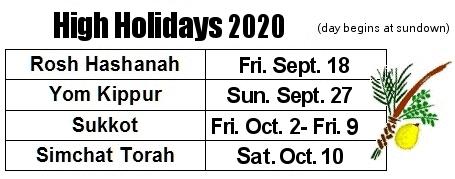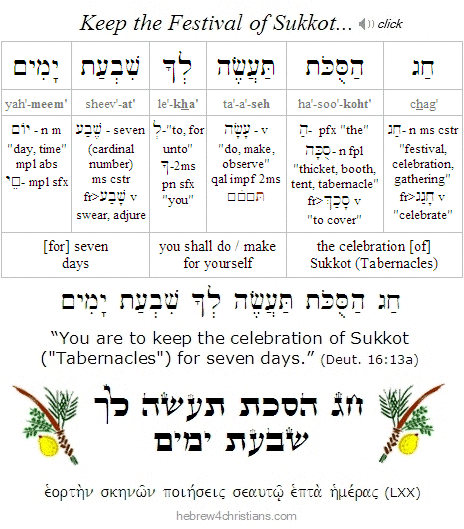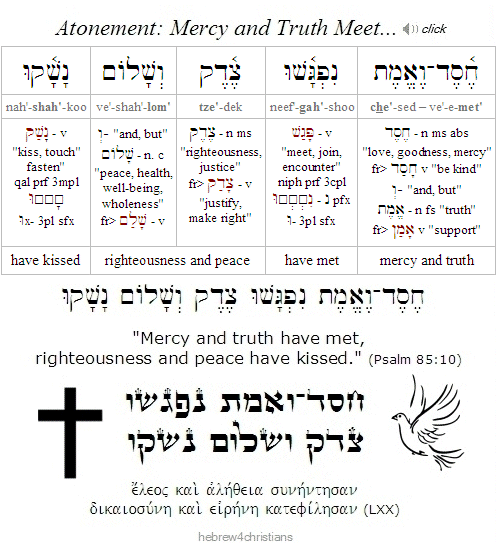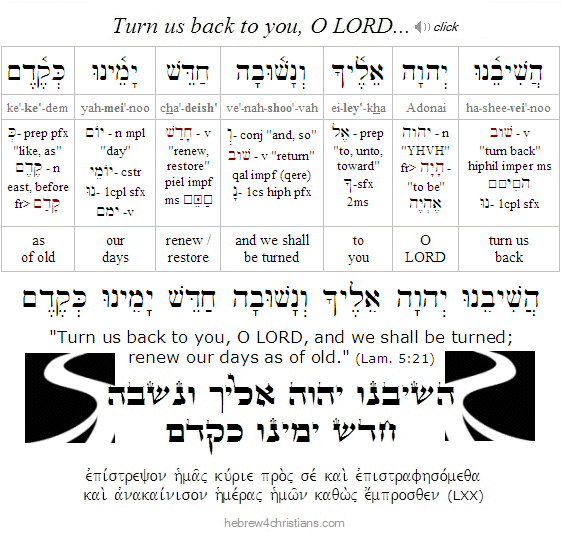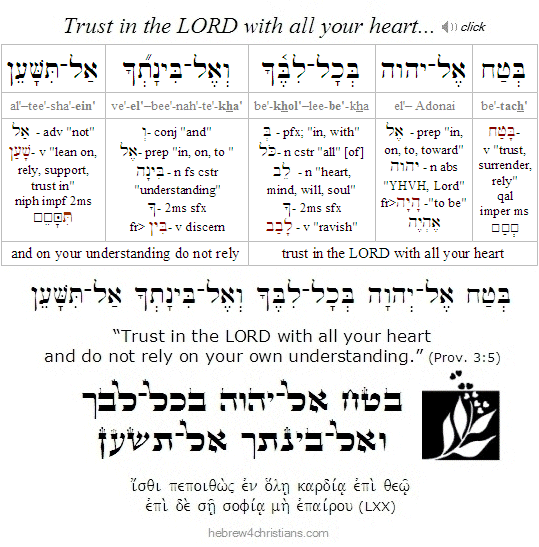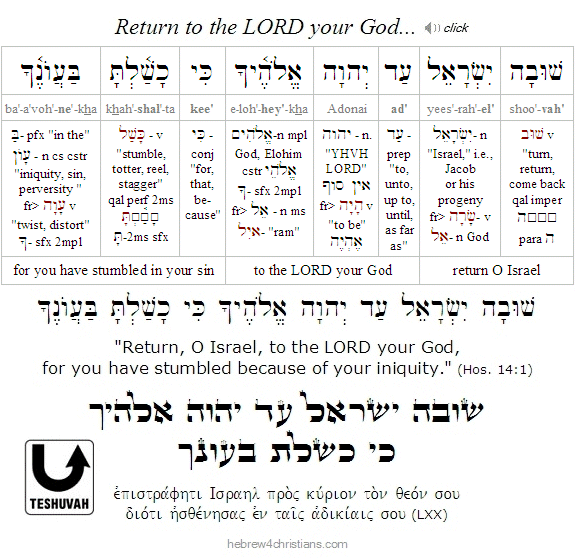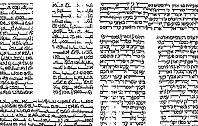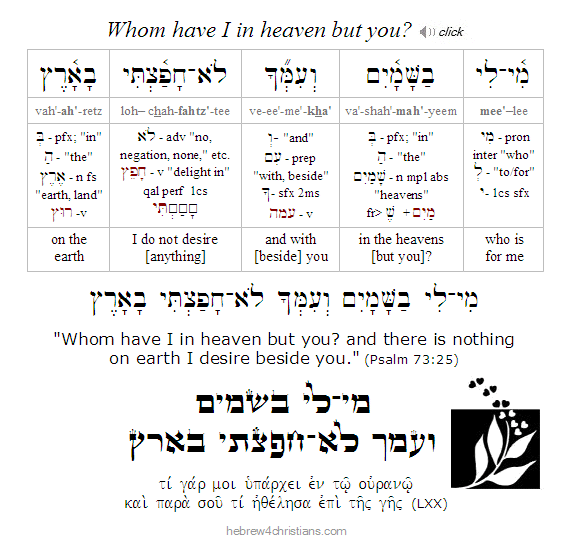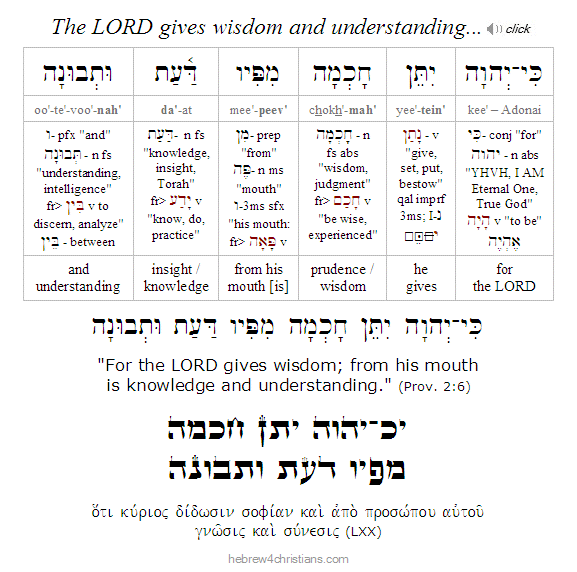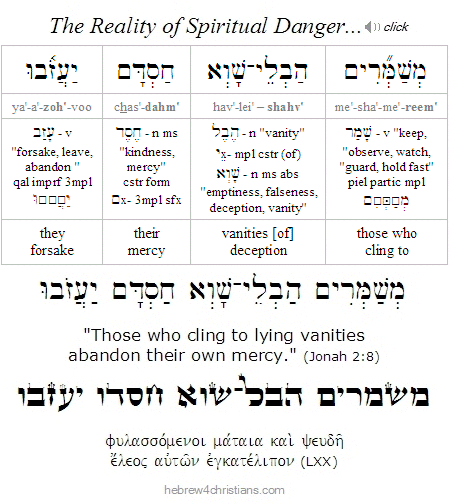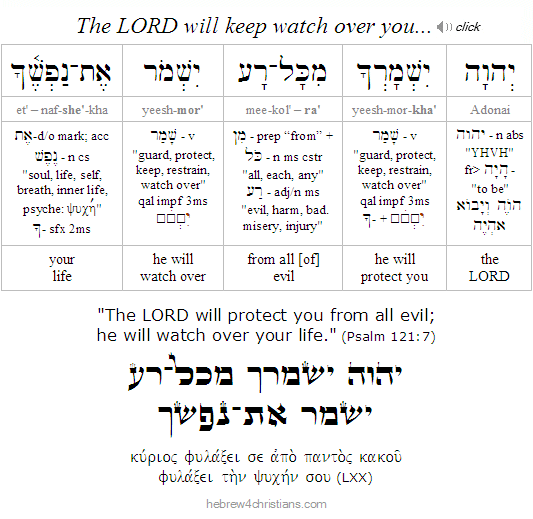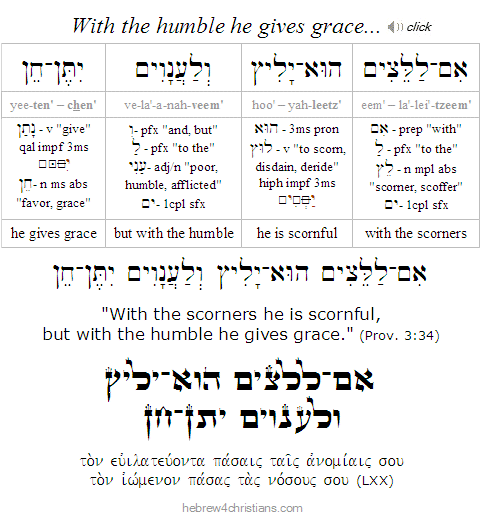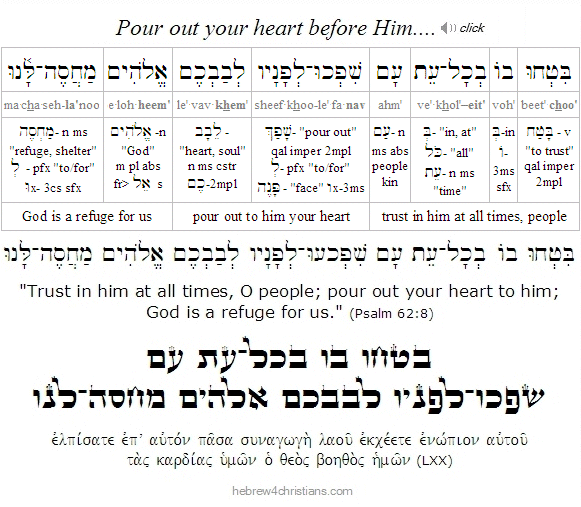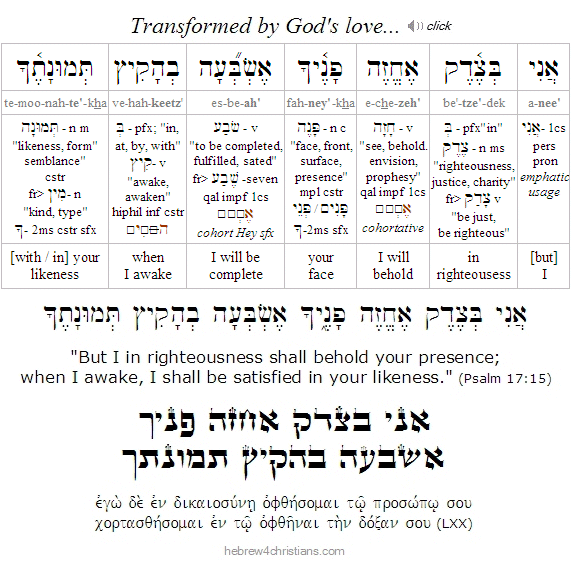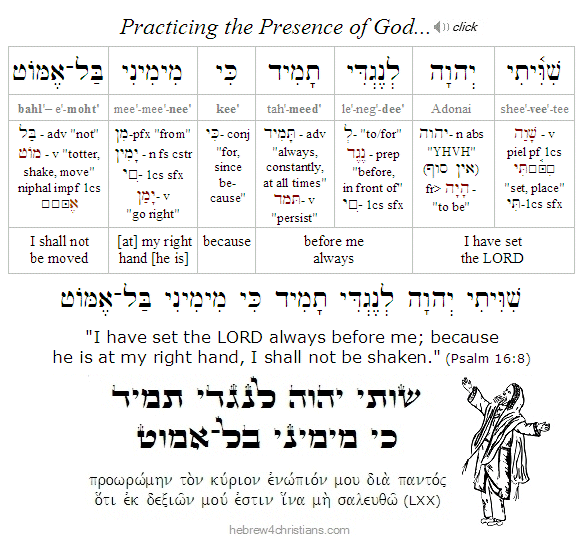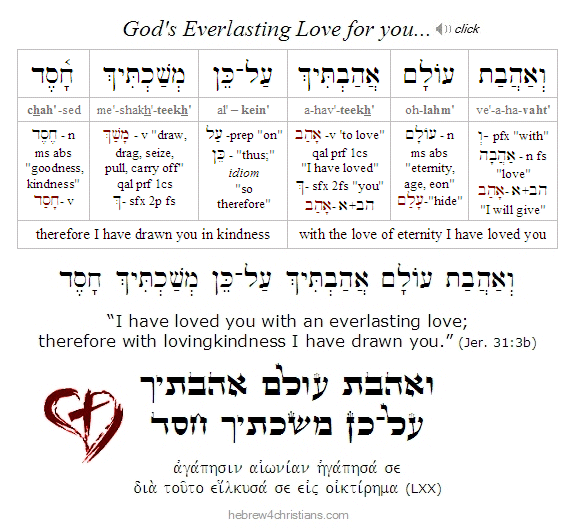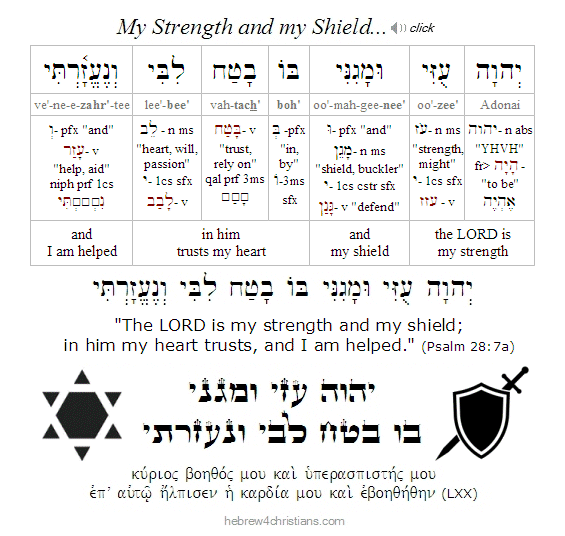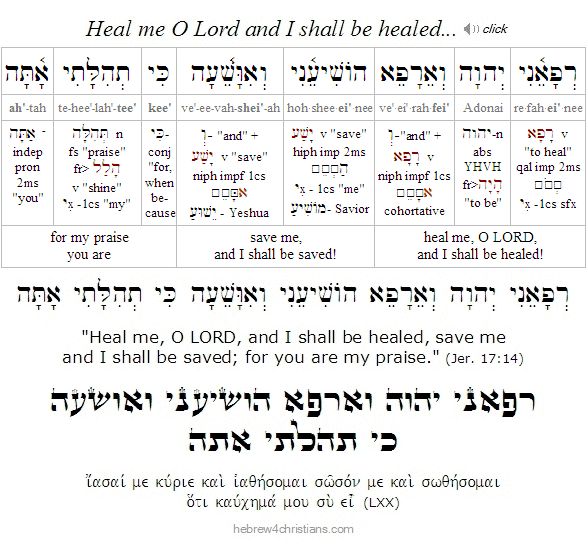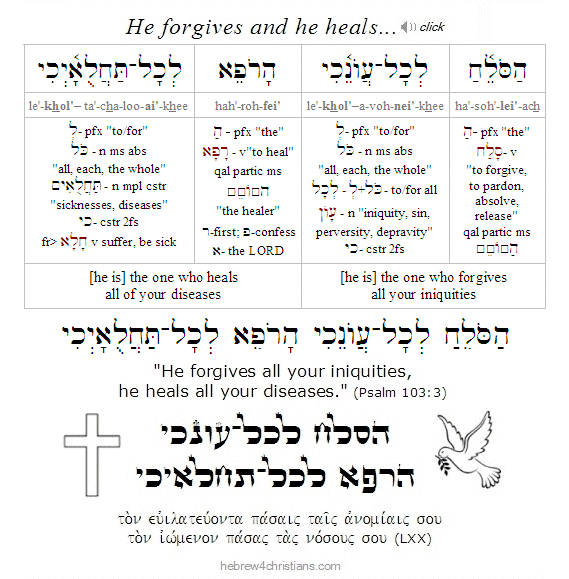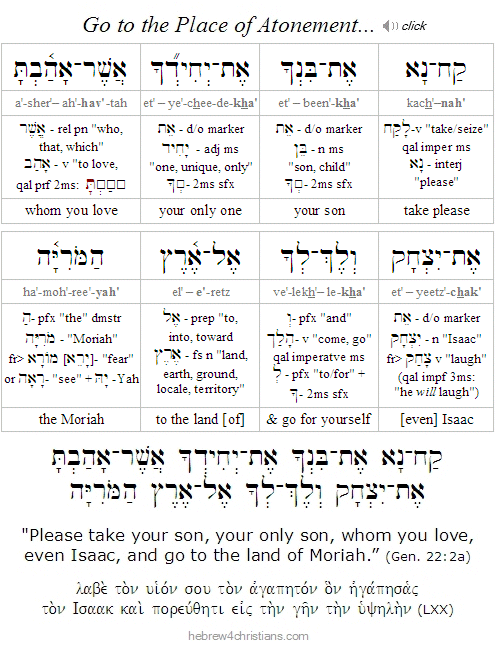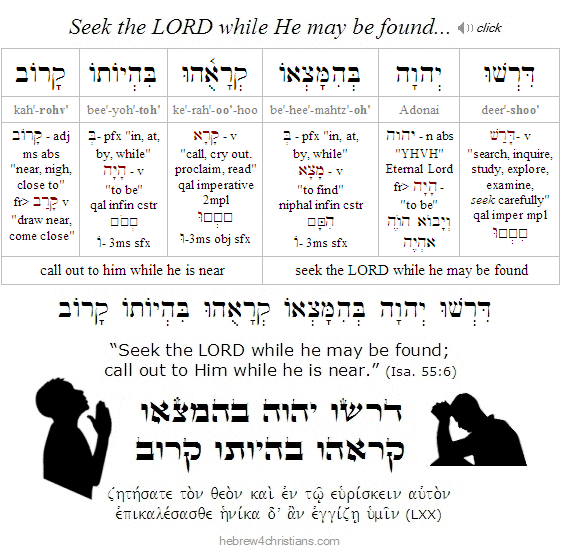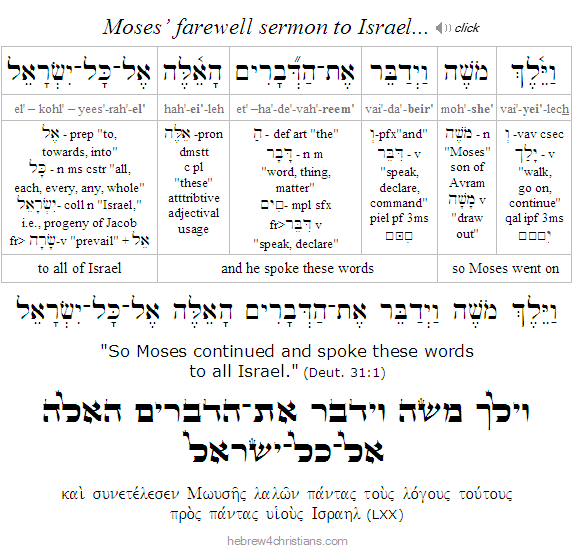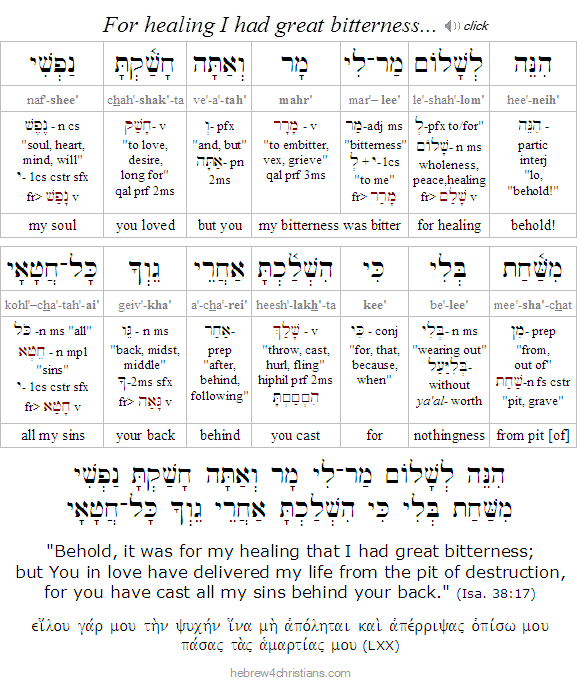|
Jewish Holiday Calendar
For September 2020 site updates, please scroll past this entry....
The Torah divides the calendar into two symmetrical halves: the Spring and the Fall, indicating the two advents of Messiah. The Biblical year officially begins during the month of the Passover from Egypt (called Rosh Chodashim, see Exod. 12:2), and the spring holidays of Passover, Unleavened Bread, and Firstfruits both recall our deliverance from Egypt and also our greater deliverance given by means of the death, burial, and resurrection of the Messiah, the great Passover Lamb of God. Yeshua was crucified on erev Pesach, buried during Unleavened Bread, and was resurrected on Yom Habikkurim (Firstfruits). The holiday of Shavuot (i.e., "Pentecost") both commemorates the revelation of the Torah at Sinai as well as the revelation of the Ruach HaKodesh (Holy Spirit) at Zion, in fulfillment of the promise given by our Lord....
The intermediate months of summer end with the advent of the sixth month of the calendar, called the month of Elul, which recalls the time Moses interceded on behalf of Israel after the sin of the Golden Calf. To commemorate this time of our history, we likewise focus on teshuvah (repentance) in anticipation of Rosh Hashanah and especially in anticipation of Yom Kippur, the great "Day of Atonement." In Jewish tradition the 30 days of Elul are combined with the first ten days of the seventh month (called the "Days of Awe") to set apart "Forty Days of Teshuvah" leading up to the Day of Forgiveness for Israel. Immediately following Yom Kippur, the mood changes as we begin preparing for a joyous week-long celebration called Sukkot (i.e., "Tabernacles") that concludes with the holiday of Simchat Torah.
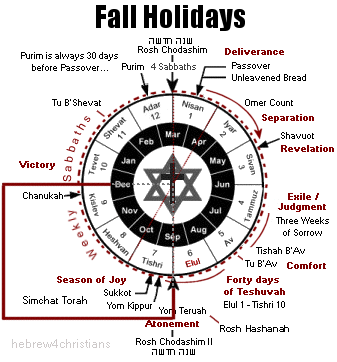 |
The Fall Holidays:

The fall festivals prophetically indicate the Day of the LORD, the second coming of Yeshua, the great national turning of the Jewish people, and the establishment of the reign of the Messiah upon the earth during the Millennial Kingdom in the world to come.
Note that in accordance with tradition, holiday dates begin at sundown. Moreover, some holidays may be postponed one day if they happen to fall on the weekly Sabbath:
1. Month of Elul (Wed. Aug. 19th [eve] - Fri. Sept. 18th [day])
2. Month of Tishri (Fri. Sept. 18th [eve] - Sat. Oct. 17th [day]) - Fall holidays begin!
3. Month of Cheshvan (Sat. Oct. 17th [eve] - Mon. Nov. 6th [day])
- Four Sabbaths: Noach, Lekh-Lekha, Vayera, Chayei Sarah
- Yom Ha'Aliyah - Honoring Israel's immigrants (Sat. Oct. 24th; Cheshvan 7)
- Sigd - 50th day after Yom Kippur; Ethiopian Jewish holiday Sun Nov. 15th)
4. Month of Kislev (Mon. Nov. 17th [eve] - Tues. Dec. 15th [day])
- Four Sabbaths: Toldot, Vayetzei, Vayishlach, Vayeshev
- Winter Solstice: Mon. Dec. 21st, Tevet 5)

- Dates for Chanukah 2020 (5781):
- 1st Chanukah candle - Thurs. Dec. 10th [i.e., Kislev 25]
- 2nd Chanukah candle - Fri. Dec. 11th [Kislev 26]
- 3rd Chanukah candle: Sat. Dec. 12th [Kislev 27]
- 4th Chanukah candle: Sun. Dec. 13th [Kislev 28]
- 5th Chanukah candle: Mon. Dec. 14th [Kislev 29]
- 6th Chanukah candle: Tues. Dec. 15th [Kislev 20]
5. Month of Tevet (Fri., Dec. 15th [eve] - Sun. Jan. 26th [day])
- Four Sabbaths: Miketz, Vayigash, Vayechi, Shemot
- Dates for Chanukah (continued):
- 7th Chanukah candle: Wed. Dec. 16th [Tevet 1] (Chodesh Chanukah)
- 8th Chanukah candle: Thur. Dec. 17th [Tevet 2] Zot Chanukah
- Asarah B'Tevet - Fri. Dec. 25th (dawn); fast over the seige of Jerusalem
- Christmas: Fri. Dec. 25th (Tevet 9, 5781)
- Secular New Year: Fri. Jan. 1st, 2021 (Tevet 17, 5781)
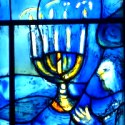 |
Note: For more about the dates of these holidays see the Calendar pages....
September 2020 Updates
Note: If any page content appears to be missing, please refresh the page...
The Gift of Willingness...
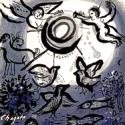
09.30.20 (Tishri 12, 5781) People confuse morality with religion, saying things like, "if I do good, the rest will take care of itself," but Yeshua did not come to simply teach (or reinforce) moral truth, but to die for our sins and to transform our nature. The message of the cross is not that we should reform ourselves with renewed hope, but rather that our old nature must die and be replaced with something far greater... When King David cried out to the Lord, "Create in me a clean heart, O God," he did not use the Hebrew word yatzar (יָצַר), which means to "fashion" or "form" something from pre-existing material (Gen. 2:7), but he instead used the word bara (בָּרָא), a verb exclusively used in the Torah to refer to God's direct creation of the cosmos (Gen. 1:1). In other words, King David understood that no amount of reformation of his character would be enough, and therefore he appealed to that very power of God that alone could create yesh me'ayin, or "out of nothing." Such was the nature of the remedy required that was fulfilled in the cross of Messiah...
לֵב טָהוֹר בְּרָא־לִי אֱלהִים
וְרוּחַ נָכוֹן חַדֵּשׁ בְּקִרְבִּי
lev · tah·hor · be·rah-lee · e·loh·heem,
ve·roo'·ach · nah·khon · cha·deish · be·keer·bee

"Create for me a pure heart, O God,
and renew a willing spirit within me" (Psalm 51:10)
Hebrew Study Card

Click for a Hebrew reading lesson:
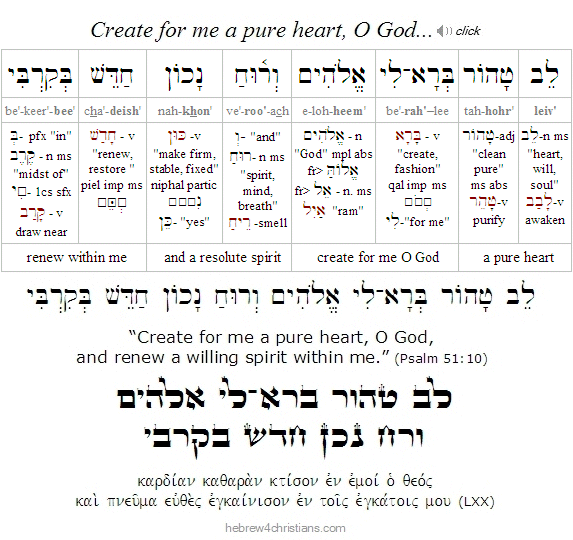 |
Yeshua taught, "Blessed are the pure in heart, for they shall see God" (Matt. 5:8). The Greek word translated "pure" is katharos (καθαρός), sometimes used describe the cleansing of a wound (catharsis), or to describe the unalloyed quality of a substance revealed through refining fire. Metaphorically, then, purity of heart refers to separation from the profane - singleness of vision, wholeheartedness, passion, and focused desire for the sacred. Faith is a great trembling of love: "With this ring I do worship thee..." As we center our affections on Yeshua, we become pure in heart -- i.e., unified, made whole, and healed of our inner fragmentation. We see the Lord both in this world, through his effects, and then panim el-panim (פָּנִים אֶל־פָּנִים), "face to face," in the world to come. Our hope purifies us for that coming great day of full disclosure (1 John 3:2-3; Heb. 12:14).
Note: It is an ongoing temptation to be appalled over this evil world and its insanity... Dear Lord God, give us strength! Help us focus on what is most important and to believe that you work all things together for good. Amen.
 |
Struggles of Faith...

09.30.20 (Tishri 12, 5781) Do you sometimes have trouble trusting God? Do you wrestle with fear, anxiety, or worry? Does an inexplicable dread or sense of hopelessness sometimes oppress you? Do you secretly wonder what's wrong with you - and whether you are truly saved, after all? Please hang on. Doubting and questioning are often a part of the journey of faith, and we don't have to be afraid of our questions, concerns, and difficulties... Being full of "certainty" is not the same as being full of faith, after all, since many sincere people are sincerely self-deceived, while many others experience fear, loneliness, and trouble as a result of their faith. There is so much we simply do not know, and it is dishonest to pretend otherwise. God knows your heart and its struggles; he knows all your secret fears. Thankfully, there is a special prayer included in the holy Scriptures for those times when we feel especially unsteady or insecure: "Lord, I believe, help thou my unbelief..." (Mark 9:24) Here we may bring our (lack of) faith to God for healing....
We should not be scandalized that we sometimes struggle with our faith. After all, Yeshua constantly questioned his disciples: "Do you now believe?" (John 16:31). And that's why we are commanded to "put off" the old nature and to "put on" the new nature -- because God knows we are fickle admixtures, contradictions, carnal-yet-spiritual, inwardly divided souls that need to learn to trust in the miracle of God with all our hearts....
Of course it's easy to believe when things are going well, when faith "makes sense" or provides you with a sense of community, etc., but when things are difficult, when there are disappointments, pain, grief, losses, etc., then you need to trust in the unseen good, the "hidden hand" of God's love, despite the trouble of your present circumstances. This is part of faith's journey: leaning on God's care, despite the "valley of the shadow of death," despite the tests... The way may sometimes be difficult, but "the tested genuineness of your faith -- more precious than gold that perishes though it is tested by fire -- will be found to result in praise and glory and honor at the revelation of Yeshua the Messiah" (1 Pet. 1:7).
Click for a Hebrew reading lesson:
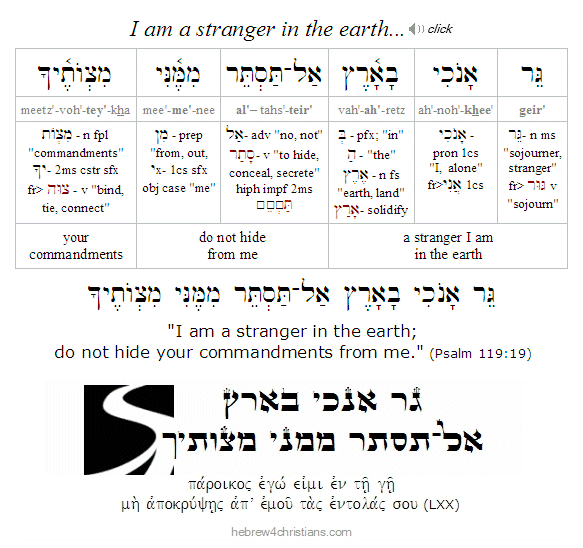 |
 |
Choosing to Believe...
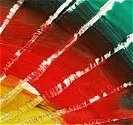
[ The week-long holiday of Sukkot begins Friday, Oct. 2nd at sundown this year... ]
09.30.20 (Tishri 12, 5781) The Torah describes Sukkot ("Tabernacles") as a holiday of joy and gladness: "You are to rejoice in your festival.... for seven days you shall keep the festival... so that you will be altogether joyful" (Deut. 16:14-15). Nevertheless we may wonder how we can celebrate in a world filled with suffering, death, tyranny, and misery? Since God nevertheless commands us to be joyful, however, we must therefore understand joy to be something more than temporal elation or fleeting pleasure, but rather as the result of the decision to believe in healing despite the appearances of this realm. "The world to come, the perfect world, we at least believe in; but this material world, this one here and now, how can anyone believe in it? The only thing to do is to run to the refuge of God" (Nachman). The joy of Sukkot, then, is the joy of hope, the conviction that "all shall be well, and all manner of thing shall be well." Darkness will be overcome by the light; evil will become undone; all that is untrue shall be made true; and every tear shall be wiped away... The sukkah symbolizes the "Clouds of Glory" that surround our way in the desert – the "Divine Presence" beheld in faith. We find joy as we choose to believe in the deeper reality of God's sheltering love...
Click for a Hebrew reading lesson:
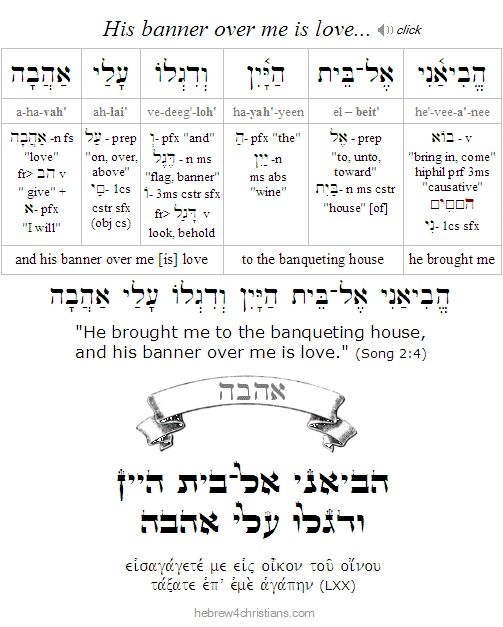 |
Torah states: "You shall dwell in sukkot (booths) for seven days. All native Israelites shall dwell in booths, that your generations may know that I made the people of Israel dwell in booths when I brought them out of the land of Egypt: I am the LORD your God" (Lev. 23:42-43). The sages say that the booths commemorate the Clouds of Glory (עַנְנֵי תְּהִילָה), seven clouds that encompassed and protected the people during their sojourn in the desert (Sukka 11b). We recall the Clouds of God's glory as the gift of his sustaining love and care during our journey to freedom. Indeed the clouds represent the holy Shekhinah (שְׁכִינָה), the ruach Hakodesh and indwelling presence of God that protects us and gives us comfort. Just as the ruach fell on the generation of Moses' advent, so with the generation of Messiah: the Spirit brings strength to heart, protection from evil, and guidance for our way (John 14:26).
Click for a Hebrew reading lesson:
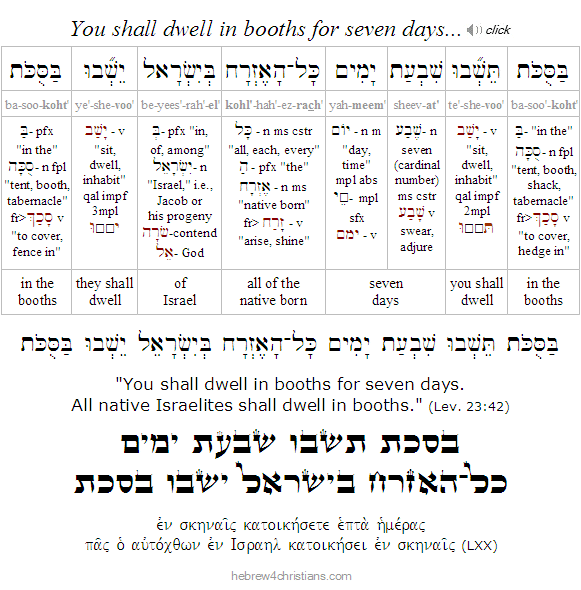 |
All of Torah is grounded in emunah (faith), as the very First Commandment of Torah is to trust that the LORD is God for you (אָנכִי יְהוָה אֱלהֶיךָ). Moreover Scripture also says: "All your commandments are emunah" (כָּל־מִצְוֹתֶיךָ אֱמוּנָה); and, "you are near, O LORD, and all your commandments are faithul" (Psalm 119:86; 151). Indeed faith is the "substance" (i.e., ὑπόστασις, reality, essence) of hope, the conviction of the unseen good (Heb. 11:1); without emunah it is impossible to please God (Heb. 11:6). We celebrate Sukkot because God calls us to know our heritage and to believe in the light of His surrounding Presence.
Shrine of the Heart...

09.29.20 (Tishri 11, 5781) The sages have said that salvation may be likened to rebirth that delivers us from the "narrow places of Egypt" (i.e., from mitzrayim: -מ, "from," and צַר, "narrow") into newness of life... The first step of lasting deliverance (יְשׁוּעָה) is to receive the great revelation: "I AM the Lord your God" (אָנכִי יְהוָה אֱלהֶיךָ) which begins our healing process (Exod. 20:2). We are set free from our bonds to surface appearances when we are made fully conscious of God's Presence, since we then understand everything in holy relationship with Ultimate Reality, the Ground and Source of all life (Acts 17:28). As it says in our Scriptures: "We look not to the things that are seen but to the things that are unseen: For the things that are seen are transient, but the things that are unseen are eternal" (2 Cor. 4:18). Therefore God says in our Torah, "Make for me a sacred place (מִקְדָּשׁ) so I can dwell within you" (Exod. 25:8). Each of us is created to be a "mishkan," that is, a dwelling place for God. Making a sanctuary of the heart means choosing to stay connected with reality, attuning the heart to hear the Voice of the Spirit, and consciously walking before the Divine Presence.
Click for a Hebrew reading lesson:
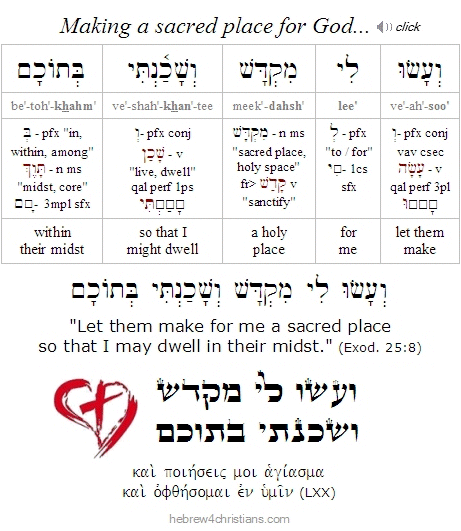 |
King David wrote, עוֹלָם חֶסֶד יִבָּנֶה / olam chesed yibaneh: "The world is built with love" (Psalm 89:2), and so indeed is God's place within our hearts... We esteem God as lovely and beautiful and wonderful and precious to us; we enshrine him and lift up our souls unto him in adoration and thanks. That's the essence of Sukkot. When we are willing to take part in the building of the sanctuary, God reveals to us "the pattern," that is, the inspiration that evidences His presence in our lives. As Yeshua said, "Let your light so shine" (Matt. 5:16).
"Knowing God is the condition for the sanctification of a human being by God's assistance and according to His intention. Wherever God is, there He is always creating... He wants to create a new human being. To need God is to become new. And to know God is the crucial thing." - Kierkegaard
Getting Ready for Sukkot...
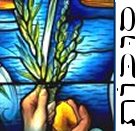
[ The week-long holiday of Sukkot begins Friday, Oct. 2nd at sundown this year... ]
09.29.20 (Tishri 11, 5781) On the Torah's calendar, there is a quick transition from the somber time of the Jewish High Holidays (Rosh Hashanah through Yom Kippur) to the week-long celebration of Sukkot (called "Tabernacles" in the Christian tradition). If the High Holidays focus on the LORD as our Creator, our Judge, and the One who atones for our sins, then Sukkot is the time when we joyously celebrate all that He has done for us. Prophetically understood, the seven days of Sukkot picture olam haba, the world to come, and the Millennial Kingdom reign of Mashiach ben David. If Yeshua was born during Sukkot (i.e., conceived during Chanukah, the festival of lights), then another meaning of the "word became flesh and 'tabernacled with us" (John 1:14) extends to the coming kingdom age, when He will again "sukkah" with his people during the time of his reign from Zion.
Since it represents the time of ingathering of the harvest, Sukkot prophetically prefigures the joyous redemption and gathering of the Jewish people during the days of the Messiah's reign on earth (Isa. 27:12-13; Jer. 23:7-8). Indeed all of the nations that survived the Great Tribulation will come together to worship the LORD in Jerusalem during the Feast of Sukkot (Zech. 14:16-17). The holiday season therefore provides a vision of the coming Kingdom of God upon the earth, when the Word will again "tabernacle with us."
 |
This year Sukkot begins just after sundown on Friday, Oct. 2nd (i.e., Tishri 15 on the Jewish calendar). The festival is celebrated for seven days (i.e., from Tishri 15-21) during which we "dwell" in a sukkah -- a tent or "booth" of temporary construction, with a roof covering (schach) of raw vegetable matter (i.e., branches, bamboo, etc.). The sukkah represents our dependence upon God's shelter for our protection and divine providence. We eat our meals in the sukkah and recite a special blessing (leshev Ba-Sukkah) at this time.
The Lulav Bouquet...
In addition to the Sukkah (tent), the most prominent symbol of Sukkot is the Arba'at Ha-minim (אַרְבַּעַת הַמִּינִים) - "the Four Species," or four kinds of plants explicitly mentioned in the Torah regarding the festival of Sukkot: "On the first day you shall take: 1) the product of goodly trees (etrog), 2) branches of palm trees (lulav), 3) boughs of leafy trees (hadas), and 4) willows of the brook (aravot), and you shall rejoice before the LORD your God for seven days" (Lev. 23:40). We wave the "four species" (held together as a bouquet with the etrog) and recite a blessing (netilat lulav) to ask God for a fruitful and blessed year.
 |
Sukkot marks the conclusion of the Jewish Fall Holidays and is the last of the three Shelosh Regalim (שלוש רגלים, i.e., the three annual pilgrimage festivals: Pesach (Passover), Shavuot (Pentecost), and Sukkot (Tabernacles) (Deut. 16:16). It can be argued that Sukkot is the climax of all the festivals in Scripture: Everything leads to it as a culmination in God's prophetic plan. It is interesting to compare the use of words relating to simchah [joy] in the description of these three festivals. Regarding Pesach, the word simchah does not appear at all (Deut. 17:1-8); regarding Shavuot, it appears only once (Deut. 17:11); but, regarding Sukkot, simchah appears several times. For instance:
You shall keep the Feast of Sukkot seven days, when you have gathered in the produce... You shall rejoice in your feast (וְשָׂמַחְתָּ בְּחַגֶּךָ אַתָּה)... because the LORD your God will bless you in all your produce and in all the work of your hands, so that you will be altogether joyful. (Deut. 16:13-15)
Sukkot is called "z'man simchateinu," the "season of our joy." Indeed, in ancient Israel, the joy of Sukkot was so renowned that it came to be called simply "the Feast" (1 Kings 12:32). Sukkot was a time when sacrifices were offered for the healing of the nations (Num. 29:12-40), and it was also a time when (on Sabbatical years) the Torah would be read publicly to all the people (Deut. 31:10-13).
From a spiritual perspective, Sukkot corresponds to the joy of knowing your sins were forgiven (during Yom Kippur) and also recalls God's miraculous provision and care after the deliverance from bondage in Egypt (Lev. 23:43). Prophetically, Sukkot anticipates the coming kingdom of the Messiah Yeshua wherein all the nations shall come up to Jerusalem to worship the LORD during the festival (see Zech. 14:16). Today Sukkot is a time to remember God's Sheltering Presence and Provision for us for the start of the New Year.
Click for a Hebrew reading lesson:
Atonement with Trembling...

09.28.20 (Tishri 10, 5781) Our faith affirms that the LORD personally cares whether we do teshuvah, that our choices matter and bear an eternal weight of significance... If we gaze upward toward the starry depths of heaven we may feel that our lives are insignificant and useless; however if we look within we intuitively sense that everything we say, do, and think has eternal weight. This paradox was well expressed by Immanuel Kant: "Two things fill the mind with ever new and increasing admiration and awe, the more often and steadily we reflect upon them: the starry heavens above me and the moral law within me. I do not seek or conjecture either of them as if they were veiled obscurities or extravagances beyond the horizon of my vision; I see them before me and connect them immediately with the consciousness of my existence" (Critique of Practical Reason).
Genuine humility doesn't mean regarding your life as vain or meaningless but instead "locates" the self in spiritually realistic terms. Both the grand whorl of the cosmos and the inner mystery of the self reveal God's Presence; the LORD fills all in all, and this includes both our inner world as well as the depths of creation, yea, before heaven itself. And since God in Messiah regards your life as worthy of an infinite redemption, true humility means respecting yourself, honoring the miracle of God's presence within you and valuing your identity as a beloved child of God...
You are both a "bit of nothing" (i.e., klume: כְּלוּם) and yet you are segulah, a treasure before heaven. An old Chassidic tale says that every person should walk through life with two notes, one in each pocket. On one note should be the words anokhi afar ve'efer (אָנכִי עָפָר וָאֵפֶר) - "I am but dust and ashes," and on the other note should be the words, bishvili nivra ha'olam (בִּשְׁבִילִי נִבְרָא הָעוֹלָם) - "For my sake was this world created." We are dust, yes indeed, but we are glorious dust because of God's love: "Just as we have borne the image of the man of dust, we shall also bear the image of the man of heaven" (1 Cor. 15:49).
Those who do not tremble before the cross do not understand God's holiness and anger against sin; those who do not rejoice before the cross do not understand God's great compassion and love....
We are to fear God and yet love God with all our hearts... It is a balance - the reverential "trembling of love." We fear God because our sins reveal divine justice and invoke the curse, and yet we trust what Yeshua does for us is perfect and evidences God's great compassion and mercy for our lives. So we do both - we fear God yet we rejoice that we are reconciled to him by means of the sacrificial life and death of the Messiah. We cannot choose one at the expense of the other: fear without love leads to legalism and hypocrisy; love without fear leads to presumption and profanity... Therefore we must guard against falling into despair over ourselves by affirming God's acceptance and blessing; on the other hand we must guard against smugness and pride by affirming God's holiness, justice, and the terrible cost he paid to redeem us from the verdict of the law. Those who do not tremble before the cross do not understand God's holiness and anger against sin; those who do not rejoice before the cross do not understand God's great compassion and love. The cross of Messiah is the place where God's truth (justice) and God's mercy (chesed) are perfectly mediated (Psalm 85:10).
Psalm 85:10 Hebrew reading lesson (click):
 |
Endurance and Healing...

09.28.20 (Tishri 10, 5781) Though our promised healing assuredly will come to us, it remains the prerogative of God to allow trials in our lives for our ultimate good. Faith is the key here: Steadfastly affirm your healing even in the midst of your anguish, because your suffering is a test designed to teach you to trust God and to receive the blessing apart from any empirical evidence (2 Cor. 4:18). As the Torah declares of our father Abraham: והאמן בּיהוה ויּחשׁבה לו צדקה -- "And he believed in the LORD, and He counted it to him for righteousness" (Gen. 15:6); and also of Job's faith in the midst of his agonizing struggle: הֵן יִקְטְלֵנִי לוֹ אֲיַחֵל -- "Though he slay me, I will hope in him" (Job 13:15). Sometimes all we can do is cry out to the LORD for deliverance... Our heart's cry does not question God's goodness to us, though we may silently wonder about the extent to which affliction may be used to mend our hearts. As C.S. Lewis once said, "We are not necessarily doubting that God will do the best for us; we are wondering how painful the best will turn out to be" (Letters of C.S. Lewis, 1964). There is a trust issue in suffering, and an intimacy that comes through its fires. Do not jump to conclusions; resist any insinuation that the Lord is being unjust! As Kierkegaard reminds us, "It is one thing to conquer in the hardship, to overcome the hardship as one overcomes an enemy, while continuing in the idea that the hardship is one's enemy; but it is more than conquering to believe that the hardship is one's friend, that it is not the opposition but the road, is not what obstructs but what develops, is not what disheartens but ennobles" (Four Upbuilding Discourses, 1844).
The difficulty of intense personal suffering is deeply existential: how do you keep hope in the midst of this tension? "Lord I believe; help my unbelief" (Mark 9:24). How do you affirm that your heavenly Father will heal you but at the present hour you must continue to endure suffering? Do you then devise a "soul-building theodicy" to explain your struggle – providing a narrative to answer the "why" of your suffering -- or do you attempt to sanctify suffering as a means of healing others by the grace of the Messiah (Col. 1:24)? When Yeshua victoriously proclaimed, "It is finished" just before he died on the cross, he foreknew that his followers would experience a "purging process," a "refining fire," and time on the "potter's wheel" to perfect their sanctification. At the cross of Yeshua death itself was overcome – and all that it implies – and yet it is nevertheless true that we will suffer and die ourselves and that death persists an enemy (see 1 Cor. 15:26). While we celebrate the reality of the final redemption, the "instrumentality of our sanctification" needs to be willingly accepted and endured. I say "endured" here because I don't think we will ever have a complete answer to the question of "why" we undergo the various tests we face in this life. Our disposition in the midst of this ambiguity, in the midst of seemingly unanswered prayers, is where our faith is disclosed: will we despair of all temporal hope or not? Will we console ourselves with the vision of a future without tears and loss - a heaven prepared for us -- or will we resist the present darkness and seek to find deliverance in this hour? Do we trust God with our pain and submit to his will, or will we "die" inside – losing hope and despairing of all remedy?
As King David once wrote, "At an acceptable time, O God, in the abundance of your steadfast love answer me in your saving faithfulness. Deliver me from sinking in the mire; let me be delivered from my enemies and from the deep waters. Let not the flood sweep over me, or the deep swallow me up, or the pit close its mouth over me. Answer me, O LORD, for your compassion is life; in the abundance of your mercies turn to me" (Psalm 69:13-16).
ענני יהוה כי־טוב חסדך
כרב רחמיך פנה אלי
a·nei'·nee · Adonai · kee-tohv · chas·de'·kha
ke·rohv · ra·cha·mey'·kha · pe·neh · e·lai

"Answer me, O LORD, for your compassion is life;
in the abundance of your mercy turn to me."
(Psalm 69:16)

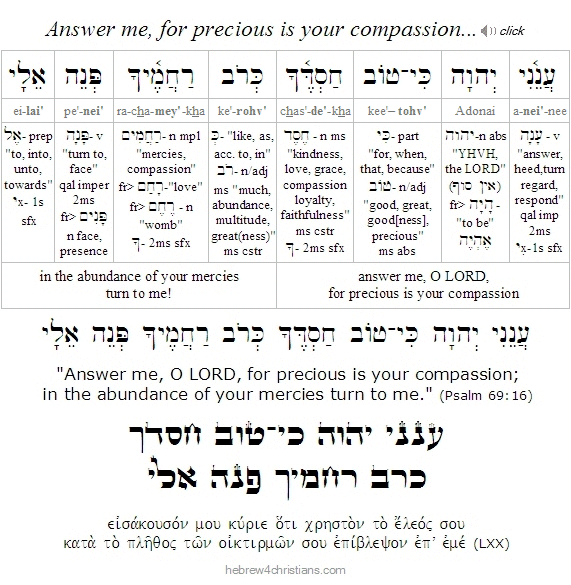
"But You, O GOD my Lord, do Thou for me for your own Name's sake; because your steadfast love is good, deliver me" (Psalm 109:21). "Do thou for me" is the confession that God alone has the power to help. Asking God to bring glory to His own Name -- to honor and magnify His Name -- is the theme of all true intercession.
Suffering has a way of focusing the heart and mind, reminding us that "today is the tomorrow of yesterday." Life is short, and our need is great to turn to the LORD and take hold His promises. We take comfort that God is for us the God of salvation: "Blessed be the Lord, who daily bears us up; God is for us our salvation. Selah. Our God is a God of salvation (יְשׁוּעָה), and to GOD, the Lord, belong deliverances from death" (Psalm 68:19-20).
השׁיבנו יהוה אליך ונשׁובה
חדשׁ ימינו כקדם
ha·shee·vei'·noo · Adonai · e·ley'·kha · ve·na·shoo'·vah
cha·deish · ya·mei'·noo · ke·ke'·dem

"Turn us back to yourself, O LORD, and we shall be turned.
renew our days as of old"
(Lam. 5:21)

All those who are "fathered by God" conquer the world, since God imparts to us the victory of faith by means of His powerful Spirit (1 John 5:4). Therefore the heart of faith steadfastly affirms, "In all these things [afflictions, tribulations, etc.] we are 'more than conquerors' (lit., "hyper-conquerors," i.e., ὑπερνικῶμενfromὑπέρ, "hyper" + νικάω, "to overcome") through Him that loved us (Rom. 8:37).
Surrendering your Destiny...
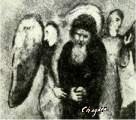
09.28.20 (Tishri 10, 5781) I once received an email from someone who questioned whether they were beyond the hope of redemption because they wrestled with depression and despair... If the life of a follower of the Messiah is to be marked by unspeakable joy, a heart overflowing with "living waters," and inner peace, doesn't inner pain, a sense of emptiness, and numbness of heart indicate the absence of genuine regeneration? My response to this honest question was that the struggle itself indicates the presence of real faith, and it is therefore likely that this person was going through a "dark night of the soul," that is, a time of testing and refinement... I counseled him that we are to trust God in the darkness and abandon everything to Him -- even our eternal destiny -- regardless of the ambiguity and sorrows of the present moment. We must offer up our heart to God and let whatever happens to us happen. By God's grace we are what we are (χάριτι δὲ θεοῦ εἰμι ὅ εἰμι). As Job in his great anguish of soul said: "Behold, even if he slays me, I will hope in him; I argue my ways before Him" (Job 13:15). In effect Job laid down his life to be slain and made appeal to God's justice and love, despite the mystery and agony of his suffering...
Job 13:15 Hebrew reading lesson (click):
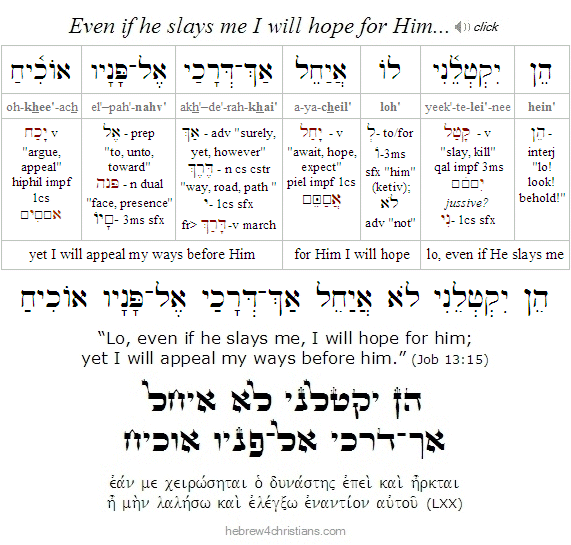 |
I once read a story about a Chassid who left his cold and hungry wife and child at home one snowy winter evening as he went off to the synagogue to pray. When he arrived back home he opened the door and heard an inner voice say, "you have lost your share in the world to come." Upon hearing this the Chassid bowed his head and said, "now that this is settled, may I finally begin to serve the Lord without any thought of future reward."
Shavuah Tov Audio Podcast:
Yom Kippur...
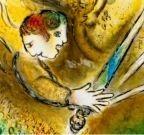
09.28.20 (Tishri 10, 5781) In this additional "High Holiday" audio presentation, I discuss Yom Kippur and its themes, particularly in reference to the atonement given in the Messiah Yeshua, as well as parashat Ha'azinu, the Torah portion we always read between Rosh Hashanah and Yom Kippur. I hope you will find it helpful.
Atonement by Faith...
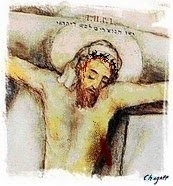
[ Yom Kippur, or the "Day of Atonement," begins tonight at sundown this year.... ]
09.27.20 (Tishri 9, 5781) The Bible has been described as a "book of blood and a bloody book." The recurrent theme of the sacrificed lamb reappears throughout, including the very first sacrifice in the garden to cover the sin of Adam and Eve (Gen. 3:21); the lamb sacrificed in place of Isaac during the ordeal of the Akedah (Gen. 22:13), the sacrifice of the Passover lamb on the eve of the Exodus (Exod. 12:5-8); and the tamid (daily) offering of the lamb at the Temple (Exod. 29:38; Num. 28:3; Ezek. 46:13) -- all of which prefigured the sacrificial death of Messiah as the "Lamb of God" (שֵׂה הָאֱלהִים) who takes away the sins of the world (John 1:29). Yeshua is the Substance of all that the sacrifices foreshadowed; he is the Goel (i.e., גּאֵל, Redeemer) from the alienation and exile caused by our sin (Gal. 3:13). All priase belongs to Him: "Worthy is the Lamb who was slain, to receive power and wealth and wisdom and might and honor and glory and blessing!" (Rev. 5:12).
The Torah makes it clear that blood (דָּם) is used as a means of consecration as well as a means of obtaining atonement (כַּפָּרָה) with God. Blood was used on the doorposts of the houses in Egypt to ward off judgment and was later used to ratify the covenant given at Sinai (Exod. 24:8). All the elements of Mishkan (Tabernacle) were likewise "separated" by its use: The altar, the various furnishings of the Temple, the vestments of the priests, and even the priests themselves were sanctified by blood (Exod. 29:20-21, Heb. 9:21). But ultimately blood was used to "make atonement" for the soul upon the altar. As the Torah (Lev. 17:11) plainly states: "For the life of the flesh is in the blood (כִּי נֶפֶשׁ הַבָּשָׂר בַּדָּם), and I have given it for you on the altar to atone (לְכַפֵּר) for your souls, for it is the blood that makes atonement by the life (כִּי־הַדָּם הוּא בַּנֶּפֶשׁ יְכַפֵּר)." The plain sense of Scripture teaches us that blood is intimately connected to the holiness of life through sacrificial death...
Click for a Hebrew lesson on Leviticus 17:11 (click):
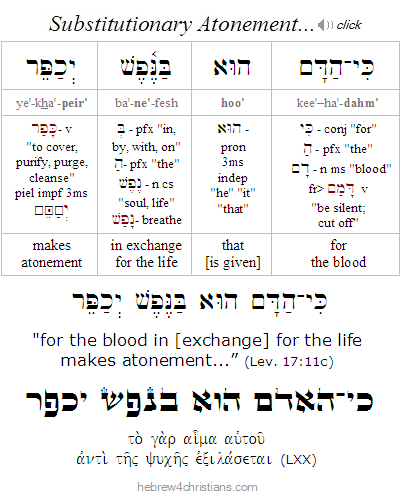 |
The first time the word "blood" occurs in the Scriptures concerns the death of Abel (הֶבֶל), the son of Adam and Eve who was murdered by his brother Cain. After Abel's blood was shed, the LORD confronted Cain and said, "What have you done? The voice of your brother's blood (קוֹל דְּמֵי אָחִיךָ) is crying to me from the ground" (Gen. 4:10). Since blood is the carrier of life, it bears the energy and vitality of life: it has its own spiritual "voice." Likewise, the blood of Yeshua (דְּמֵי יֵשׁוּעַ), the true Lamb of God who died upon the cross, speaks on our behalf, and reverses the power of death by creating a barrier that death can no longer cross, since the death of the sacrificial victim "exchanges" the merit and power of life. Unlike the blood of Abel that "cries out" for justice, the blood of Yeshua cries out for mercy (Heb. 12:24).
בָּרוּך אַתָּה יהוה
הַנּוֹתֵן הַכָּפָּרָה הַגְּדוֹלָה בְּיֵשׁוּעַ
ba-rookh · a-tah · Adonai
ha-no-tein · ha-ka-pa-rah · ha-ge-do-lah - be-ye-shoo'-a


"Blessed are You, LORD,
Giver of the great atonement in Yeshua."
Note: For more on this important topic, see "Parashat Vayikra: Why the Sacrifices?" and "The Life is in the Blood: Further Thoughts on Parashat Bo."
Trust from the Heart...

09.27.20 (Tishri 9, 5781) "Trust in the LORD with all your heart, and do not rely on your own understanding" (Prov. 3:5). Note the contrast between trusting and understanding in this familiar verse. Trust is a matter of heart, the decision to let go, whereas understanding is analytical, "objective," a matter of physical seeing. Human reason may help you discern the "what" of faith, but it is powerless to waken the soul, to breath life into heart, and to impart passion to seek God's Presence as your greatest need and your utmost good. That only comes through the sober awareness of your own sinful condition, the inner conviction that you are utterly undone and without hope apart from the intervention of God in your life, and the will to believe in the miracle...
בְּטַח אֶל־יְהוָה בְּכָל־לִבֶּךָ
וְאֶל־בִּינָתְךָ אַל־תִּשָּׁעֵן
be·tach · el-Adonai · be·khol · lee·be'·kha
ve·el-bee·na'·te·kha · al-teesh·sha·ein

"Trust in the LORD with all your heart
and do not rely on your own understanding"
(Prov. 3:5)
Hebrew Study Card

Click for a Hebrew reading lesson (click):
Most commandments do not test how we comprehend our faith as much as they test the surrender of our heart. The test of faith requires bittachon (בִּטָּחוֹן) - that is, abandoning our need to understand so that we can hold fast to God's promise and blessing... "Fear not, for I am with you..." (Isa. 41:10). That's what we need most, to trust that we are safe in God's love, and that's the ultimate message of our atonement in Messiah. We are atoned for by faith!
The Heart of Atonement...

[ Yom Kippur, or the "Day of Atonement," begins Sunday, Sept. 27th at sundown... ]
09.25.20 (Tishri 7, 5781) Most of our deepest anxieties come from the fear of death, whether we are conscious of this or not... Death represents fear of the unknown, fear of being abandoned, fear of being rejected, fear of being separated from others, and so on. I am so glad Yeshua gives us eternal life, which for me is not so much about immortality of the soul as it is being loved and accepted by God... That is what "at-one-ment" means, after all (John 17:22-23). Because God loves and accepts us, we trust Him to be present for us, even in the darkest of hours, on the other side of the veil, where he there "prepares a place for us" (John 14:2). As Yeshua said, "I tell you the solemn truth, the one who hears my message and believes the One who sent me has eternal life (חַיֵּי עוֹלָם) and will not be condemned, but has passed (i.e., μετά + βαίνω, lit., "crossed over" [עָבַר]) from death to life" (John 5:24). God's love "crosses over" from death to life and now forever sustains me.
The Torah (in parashat Acharei Mot) provides details about Yom Kippur, or the "Day of Atonement," a special service that gave ritual expression of God's love by making purification for our sins. As I've explained before, the word for love (i.e., ahavah: אהבה) equals the number thirteen (1+5+2+5=13), but when shared it is multiplied: 13 x 2 = 26, which is the same value for the Sacred Name (יהוה), i.e., (10+5+6+5=26). Likewise the Hebrew word for "life" is chayim (חַיִּים), is written in the plural to emphasize that life cannot be lived alone but must be shared. Notice that within the word chayim are embedded two consecutive Yods (יי), representing unity in plurality (Yod-Yod is an abbreviation for YHVH, also indicating the "deep Akedah" of Father and Son). God gave up His life so that we can be in relationship with Him, that is, so that we can be "at-one" with His heart for us. Whatever else it may mean, then, the Hebrew word for "atonement" (i.e., kapparah, "covering," "protection," "purification," "cleansing," "forgiveness," and so on) is about accepting God's heart for you - being unified in his love - and if you miss that, you've missed the point of the Torah's teaching.. Thank God we are "sealed" in the book of life by the love of Yeshua! Shabbat Shuvah Shalom...
Isa. 61:10 Hebrew Reading Lesson (click):
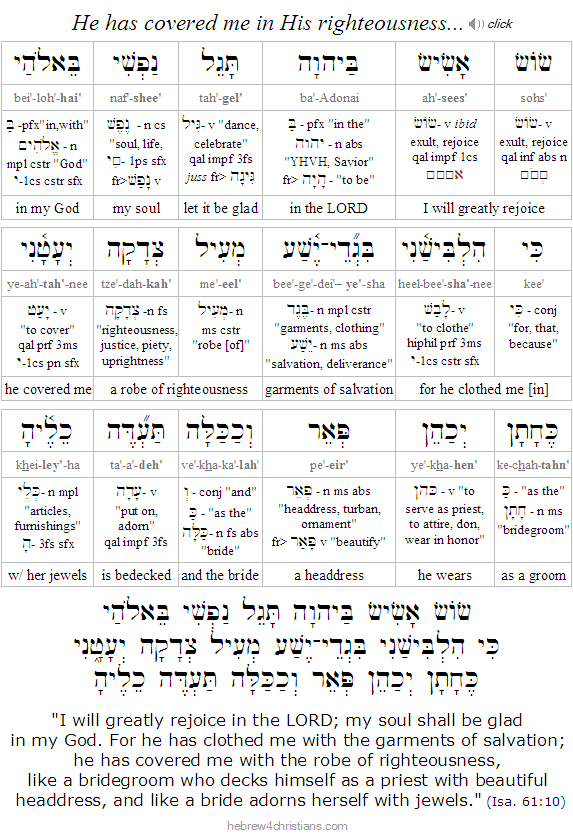 |
 |
Atonement and the New Covenant...

[ Understanding atonement is essential to understanding the cross of Messiah... ]
09.25.20 (Tishri 7, 5781) How are we to understand the apparent contradiction that Yom Kippur is to be observed as a "statute forever" (Lev. 16:29) while the New Testament emphatically states that Yeshua puts an end to animal sacrifice and now is our eternal atonement (see Heb. 9:12; 24-26)? To begin we must note that this contradiction only arises when we make the (false) assumption that the Sinai covenant could never be abrogated, which would imply that a truly new covenant is impossible. If we can only relate to God through the covenantal terms given at Sinai, in other words, then the Levitical priesthood (alone) serves to mediate us before God, and there would be no need for a covenant based on the better priesthood and promises of the Messiah (Heb. 8:6). Nevertheless, the new covenant was clearly foretold throughout the Torah, the writings, and the prophets, and the assumption that the Sinai covenant is "immutable" is therefore false. We can understand this by an analogy: If an employer makes a contract with an employee with certain provisions and conditional benefits that are subject to annual review, but later rescinds that contact and offers a new one with far better benefits, there is no contradiction involved. In our case a real contradiction would be, "you must observe Yom Kippur forever," and then - in the very same contract - later read, "you no longer need observe Yom Kippur forever."
Since the Torah says of the Yom Kippur ritual, "this shall be a statute forever (חֻקַּת עוֹלָם) for you, that atonement may be made for the people of Israel once in the year because of all their sins" (Lev. 16:34), it is urgent for us to explore what "forever" might mean in this case, especially in light of the atonement given in Yeshua. First, we note that the Hebrew word translated "forever" is olam (עוֹלָם), which is derived from a root verb alam (עָלַם) that means "to conceal" or "to hide." Olam may have its origins using spatial imagery, a distance so vast that it is unseen, beyond the horizon, and therefore it can also mean "world." When it is applied to the terms of the Sinai covenant (and the Tabernacle represents the "ritual expression" of that covenant), the word means perpetual, ongoing, etc., in that domain or "world." It is interesting to note that the Jewish sages never regarded "olam" as unchangeable, since in the world to come Torah from Zion (Isa. 2:3). For more on this important point, see the article "Olam HaTorah: The World of the Torah."
Second, we must remember that Torah (תּוֹרָה) is a "function word" that expresses our responsibility in light of the covenantal acts of God, and if you choose to relate to God by means of the Sinai covenant, you are legally liable to the terms and provisions of that contract (e.g., niddah laws, blood ritual laws, tithing laws, agricultural laws, etc.), and this includes being legally liable to the enumerated curses for disobedience. The covenant at Sinai is indeed eternal and never can change - it is brit olam, a perpetual covenant - but if you choose to abide by its terms, you are responsible for your side of the contract... The Book of Hebrews states: "When there is a change in the priesthood (הַכְּהוּנָּה), there is necessarily (ἀνάγκη) a change in the Torah as well" (Heb. 7:12). The Levitical priesthood expresses the Torah of the Covenant of Sinai (בְּרִית יְשָׁנָה), just as the greater priesthood of Yeshua expresses the Torah of the New Covenant (בְּרִית חֲדָשָׁה).
Third, Yeshua our Messiah came to deliver us from sin and to establish the new covenant with God, which both transcends the covenant given at Sinai and provides an entirely new way to be in relationship with God by the power of the Holy Spirit. The new covenant sets us free from the terms of Sinai (by the death of the Testator, Heb. 9:15) so that we might serve God in a new and better way (see Jer. 31:33; Rom. 7:1-6; Heb. 8:6; Rom. 9:31-32; Acts 13:39; Gal. 4:21-5:1). We "die" to the terms of the former contract to serve God in a new and powerful way (Rom. 7:1-4), with the inner intent of the law written upon our hearts (Jer. 31:31-33). This is the "deeper Torah" that goes back to the original covenant made in the Garden of Eden (for more on this, see "The Gospel in the Garden").
Fourth, Yeshua is the King, the Lawgiver of Torah, and its Substance: he did not come to destroy the Law and the Prophets, but to fulfill their message and meaning (Matt. 5:17-18; Rom. 10:4). As the King, he has the authority to annul contracts with his subjects, and he has the authority to implement new agreements based on his sovereign will... The Torah of Moses commanded, "Thou shalt not kill..." but the King of Torah (מלך התורה) went to the heart of the matter, explaining that murder was a symptom of the deeper sin of anger...
Finally, those who follow the law of Moses simply cannot keep the Day of Atonement as clearly commanded in the Book of Leviticus, nor have Jews been able to do so since 70 AD, after the destruction of the Second Temple as foretold by Yeshua (Matt. 24:2; Luke 19:41-4). Note that this was by divine design, since the way into the Holy of Holies (i.e., kodesh hakodashim: קדֶשׁ הַקֳּדָשִׁים) was not yet open for all as long as the "outer tent" still stood (i.e., the Levitical priesthood as the ritualistic expression of the covenant made at Sinai), since that was symbolic of "the present age," or the "dispensation that was passing away" (Heb. 8:13, 9:8-9; for more, see "The Parochet Rent in Two"). Despite the later invention of "Judaism without the Temple," the life is indeed "in the blood" (Lev. 17:11) and in Messiah we are given fulness of life! Only Yeshua gives us true atonement, and that's the true Torah of the LORD! The redemption obtained by animal sacrifices was merely provisional and symbolic, "for it is impossible for the blood of bulls and goats to take away sins" (Heb. 10:4). For eternal remedy something far greater was needed, namely, the sacrifice of God Himself. Consequently, when Yeshua came into the world, he said, "Sacrifices and offerings you have not desired, but a body have you prepared for me," and "'Behold, I have come to do your will, O God, as it is written of me in the scroll of the book" (Heb. 10:5,7). As the Book of Hebrew states: "We have an altar, whereof they have no right to eat who serve the Tabernacle" (i.e., the Levitical system of worship). We are cleansed from our sins and made eternally right with God because of the cross of Yeshua...
The bottom line is this. We have a greater High Priest who intercedes for us by means of his own shed blood within the true Holy of Holies, "made without hands," in the olam of reality. We do not mix the covenants of God, for this leads to double-mindedness and is regarded as spiritual adultery (Rom. 7:1-4). It is chillul HaShem - the desecration of the Name above all Names - to turn away from the meaning and message of the cross of Messiah.
Addendum: So Why Study Yom Kippur?
We study the Yom Kippur avodah and the various rituals of blood atonement to better understand the meaning of Yeshua's sacrificial death for us as God's High Priest of the New Covenant. Moreover, as I've explained elsewhere on this site, Yom Kippur prophetically pictures the "Day of the LORD" or the Day of Judgment in Acharit Ha-Yamim (the End of Days). The heavenly shofar blasts heard at Mount Sinai will be reissued from Zion for all the world to hear. First will be the gathering together of those who follow the Messiah (i.e., those declared tzaddikim because of the merit of Yeshua's sacrifice), and then God's war against Satan and the world system will begin, culminating in the long-awaited coronation of the King of King of Kings. After the judgment of the nations after the Great Tribulation, ethnic Israel will be fully restored to the LORD and their sins will be completely purged (Matt. 24). "All Israel will be saved" (Rom. 11:26). Yeshua will then physically return to Israel to establish His glorious millennial kingdom in Zion. Then all the promises given to ethnic Israel through the prophets will finally be fulfilled. Like all holidays, Yom Kippur centers on Yeshua our Messiah.
Behold the Goat of God...

[ Yom Kippur, or the "Day of Atonement," begins Sunday, Sept. 27th this year... ]
09.25.20 (Tishri 7, 5781) The original Passover sacrifice (korban Pesach) was not given to the Levitical priesthood as a sin offering, since it preceded Sinai and the giving of the laws concerning the sacrificial rites. In the same way, Yeshua's sacrifice was directed from Heaven itself by means of the prophetic office of Malki-Tzedek (מַלְכִּי־צֶדֶק) - a higher order of priesthood (Gen. 14:18; Psalm 110:4; Heb. 7). Yeshua both offered Himself up as the "Lamb of God" that causes the wrath of God to (eternally) pass over those who personally trust in Him, and He also offered himself as the "Goat of God" whose blood was sprinkled in the Holy of Holies to cleanse us from sin and give us (everlasting) atonement. (Other metaphors are also given in Scripture, of course. For example, Yeshua offered Himself as the Snake lifted up (John 3:14-15; cp. Num. 21:4-9), as a Red Cow (parah adumah), and so on).
Yeshua as the "Lamb of God" pictures personal redemption from slavery to Satan and freedom from the wrath of God. This is the greater Passover/Exodus connection. By means of Yeshua's shed blood and broken body, the wrath of God passes over us and we are set free to serve God.... Yeshua as the "Goat of God" pictures both personal cleansing (i.e., "propitiation" or "expiation" for our sins: the Greek word (ἱλαστήριον) is used in the LXX for the kapporet (Mercy Seat) in the Holy of Holies which was sprinkled with the blood of the sacrifice on Yom Kippur) as well as national teshuvah and cleansing for ethnic Israel at the end of the Great Tribulation period. At that time Yeshua will function as Israel's true High Priest whose sacrifice is applied for Israel's Atonement. This is the Yom Kippur connection. Moreover, since Yom Kippur points to the removal of the sin-laden goat (representing Satan), the Millennial reign of Messiah will be one unmolested by the powers of evil.

Just as Rosh Hashanah reveals the coming time of Judgment and the rapture of the kehillat Mashiach (Bride of Messiah), Yom Kippur prophetically pictures the Day of the LORD or the Day of Judgment in Acharit HaYamim [the last days]. After the judgment of the nations during the Great Tribulation, national Israel will be fully restored to the LORD and their sins will be purged (see Matthew 24). Indeed, our beloved Mashiach will one day return to Israel, cleanse her Temple, restore her to Himself, and set up His glorious kingdom. And that coming celebration is the Sukkot or "Tabernacles" connection, friend...
Note: For more on this see, "Yom Kippur and the Gospel" and "Behold, the Goat of God."
Darkness and Intercession....
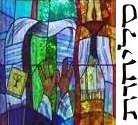
[ Yom Kippur, or the "Day of Atonement," begins Sunday, Sept. 27th this year... ]
09.25.20 (Tishri 7, 5781) The High Priest was required to perform the Yom Kippur avodah (service) alone, while wearing humble attire, divested of his glory, and in complete solitude: "No one may be in the tent of meeting from the time he enters to make atonement in the Holy Place until he comes out" (Lev. 16:17). The Hebrew text literally says, "no adam (אָדָם) shall be in the tent," which suggests that something more than the natural man is needed for divine intercession. And just as Moses alone approached God in the thick clouds at Sinai to receive the revelation of the Altar as mediator of the older covenant (Exod. 24:15), so Yeshua, the Mediator of the New Covenant, went through his severest agony on the cross as the darkness covered the earth (Luke 23:44; Matt. 27:45).
Lev. 17:11 Hebrew reading lesson (click):
Naming the Sacred...

09.25.20 (Tishri 7, 5781) I had mentioned that on Yom Kippur the High Priest would enter the Holy of Holies and there present the sacrificial blood upon the cover of Ark of the Covenant to make atonement for Israel. During this solemn ritual the priest would invoke the sacred name of the LORD (i.e., יהוה) while saying his prayers for the people. Since this was the only time the High Priest could enter the Holy of Holies and utter "shem ha'gadol," the great Name of God, Yom Kippur also came to known as the "Day of the Name" (יום השם).
Perhaps because the Yom Kippur ritual is so mysterious and exciting, the question naturally arises as to how the priest would pronounce the sacred name YHVH (יהוה). Is YHVH pronounced "Yahveh"? or "Yahweh"? or perhaps "Yehovah"? (the morpheme YAH is clearly attested). Consulting the original manuscripts does not settle the issue because they were written without vowels, and the scribes who later added the vowel points (i.e., nekudot) changed the pointing for YHVH to avoid saying it in vain. Christians sometimes feel a bit frustrated or anxious when they consider this, especially because various religious cults claim to have discovered the phonetics of God's "real" name and use it a sort of "shibboleth" or password for acceptance into their societies...
To seriously attempt to answer the question about God's name, however, requires thinking a bit about the philosophy of language, and in particular understanding that a name (of any kind) is a symbol intended to point to a reality. Every name (spoken, written, or otherwise represented) is a sign that is intended to signify something. Names "point" to things, and every name (or term) encapsulates a cluster of ideas that summarize, describe, and define what that thing is as opposed to other things (genus and difference). The Name for God, then, would point to or signify the Reality the name stands for, though in the case of God who is the Supreme Being, no one name can fully express the Reality signified since God is Infinite and beyond our full comprehension. That is why Yeshua has a name that no one knows but himself (see Rev. 19:12). Indeed the name YHVH (יהוה) is derived from the Hebrew verb hayah (היה), meaning "to be," which implies that the Reality signified transcends spatio-temporal categories and therefore is "ein sof" (אין סוף), beyond all reckoning and therefore ineffably mysterious (2 Chron. 6:18; Psalm 40:5; 145:3; Job 9:10, Rom. 11:33, etc.).
When Moses first encountered the Lord in the burning bush at Sinai, the Torah says "God" (i.e., Elohim: אלהים) called out to him and said, "I am the God of your father (אלהי אביך) - the God of Abraham (אלהי אברהם), the God of Isaac (אלהי יצחק), and the God of Jacob (Exod. 3:6), thereby rooting the knowledge of God in human history and the personal experience of revelation vouchsafed to the patriarchs. However, after God commissioned Moses to go to Pharaoh with the message "shelach et-ammi," "let my people go!" Moses hesitated and wondered how he should respond if the elders of Israel were to ask him what the name of God was. The LORD then answered ehyeh asher ehyeh (אהיה אשׁר אהיה), "I AM what I AM." "Say this to the people of Israel, 'I AM (אהיה) has sent me to you'" (Exod. 3:14).
In grammar there is a concept known as "apposition," meaning that two or more words or phrases may be grammatically parallel and share the same referent. For example, if someone wrote, "the first US president, George Washington, was born in 1732 in the Province of Virginia," the words "the first president" and "George Washington" logically refer to the same person, namely a man born in 1773 in the English colony of Virginia. Logically this is a matter of equivalence (if a=b then b=a; if a=b and b=c, then a=c, etc.). When God further said to Moses: "Say this to the people of Israel, 'The LORD, the God of your fathers, the God of Abraham, the God of Isaac, and the God of Jacob, has sent me to you.' (Exod. 3:15), he was equating the name YHVH (יהוה), the great I AM (אהיה), with God (אלהים), the Creator and Master of the Universe, who is known as the God of Abraham, Isaac, and Jacob -- and that these names are in apposition -- they are equivalent significations of the Divine Reality. Note that God concluded this instruction by saying: "This is my name forever (זה־שׁמי לעלם), and thus I am to be remembered throughout all generations."
What's really most interesting - and essential for us - is not how to say God's name but what God's name means. Another way to say this is that what is most important is not a label identifying "what" God is but an encounter revealing "who" he is. The Name ehyeh, while mysterious, esoteric, and wonderful, does not describe God's character or heart, and therefore it calls for further description using other categories and terms we can understand. Therefore when Moses interceded for forgiveness after the sin of the Golden Calf and was reassured of God's faithful love for Israel, the LORD invited him to go back up the mountain to restore the broken covenant and to learn the meaning of his Name: "And the LORD said, "I will make all my goodness pass before you and will proclaim before you my name 'The LORD' (Exod. 33:19). God then instructed Moses to carve two new tablets for the testimony and to present himself at the cleft of the rock on the top of the mountain. Then LORD descended in the cloud "and stood with him there, and proclaimed the name of the LORD" (Exod. 34:5): "The LORD, the LORD, God of mercy and grace, longsuffering and abounding in lovingkindness and truth, keeping compassion for thousands, carrying away iniquity and transgression and sin, but that will by no means clear the guilty; visiting the iniquity of the fathers upon the children, and upon the children's children, unto the third and to the fourth generation" (Exod. 34:6-7). Note well that this is a second and more complete revelation of the name YHVH given in the Torah. This passage of Scripture is so important that the Jewish sages have called it shelosh esreh middot rachamin, or the Thirteen Attributes of God's Mercy.
 |
In Jewish thought, the numerous names of God revealed in Scripture (Elohim, Shaddai, Adonai, the King of Israel, etc.) are thought to reveal different aspects or attributes of God's character and will to us. They function as "short hand" for descriptions of His essence - revelations of the hidden mystery and glory of the LORD. Since taking the name of the LORD "in vain" is one of the Ten Commandments, certain conventions are used to restrict the use of the Names of God. For example, it is common practice to refer to the LORD (יהוה) simply as "Hashem" (the Name) or to deliberately alter the sound or spelling of a divine name.
Click for a Hebrew reading lesson:
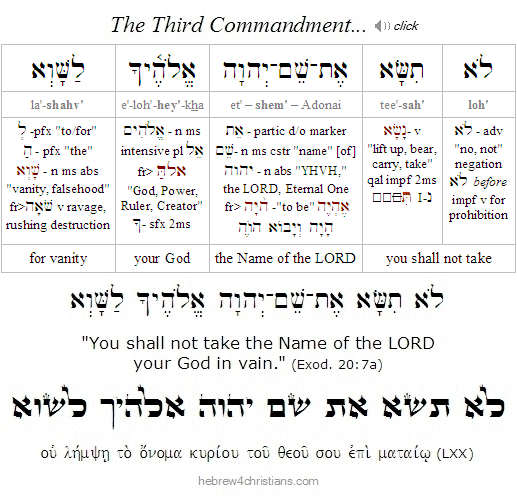 |
Some people seem to be preoccupied with finding out how to pronounce or utter the Sacred Name of the LORD (i.e., יהוה), though Jewish tradition maintains that the Divine Name is entirely ineffable and therefore intrinsically mysterious. Indeed, attaching a name to something "labels" it and claims authority over it (e.g., when David put his name over a conquered city). Since the LORD is utterly unique, without rival, the Creator and LORD who is answerable to no one, He cannot be named. The Jewish mystics say (surely as a form of hyperbole) that the proper Name of the LORD is all the letters of the Torah sounded at once -- without interruption. This is called the "304,805 letter Name of God." That is, string together all 304,805 letters of the Torah - from the first letter of Bereshit (Bet) through the last letter of Devarim (Lamed) - and "read" this as a single "Word." Of course the point here is that no one can do this. Indeed, the Angel of the LORD asks, "Why do you ask my name, seeing it is incomprehensible?" (Judges 13:18).
There are quite literally hundreds of names, titles, metaphors, similes, allegories, and allusions given in the Hebrew Scriptures. Though YHVH is the most frequently occurring Name for God, it is clearly a play on the verb "to be" (hayah). We do not "invoke" the Name like a magician might utter a "divine spell." God is near to us -- He's in the wind, in the heavens and earth, as close to you as your own heart (Deut. 30:14; Rom. 10:8). The really hard part is to love and obey the LORD -- not to learn how to say His incomprehensible Name. Indeed, what good would it be to know how to properly pronounce the Sacred Name of the LORD if you do not love and obey Him? If you want to call upon the Name of the LORD, seek first His kingdom and His righteousness (Matt. 6:33).
The Name of the LORD (שֵׁם יהוה) represents the LORD God of Israel's glory, reputation, character, and mighty deeds of salvation for His people. Knowing His Name means understanding His glory as the Savior of the world (מוֹשִׁיעַ הָעוֹלָם). Indeed, personally knowing the Name of the LORD means inwardly accepting that He has valiantly acted on your behalf by saving you from the bondage of your shame and sins through Yeshua, the revealed Word (i.e., Name) of God. In short, knowing who Yeshua is and what He has done for you is to know the Name of the LORD (Rom. 10:13; Phil. 2:10-11). You simply cannot know the "Name of the LORD" without knowing the Name of His Son (John 5:23; Prov. 30:4). Yeshua is the Name above all other names, and before Him every knee shall bow and tongue confess. There is no other name by means of which it is necessary for us to be saved (Acts 4:12).
The idea of "Name" means more than mere phonetics; it has to do with the deeds, acts, power, reputation, and glory of God. It has to do with meaning, and not just ordinary meaning, but the most sacred and extraordinary meaning of which the heart may ever know. Those who do not honor the Son do not honor the Father who sent Him (John 5:23).
Click for a Hebrew reading lesson:
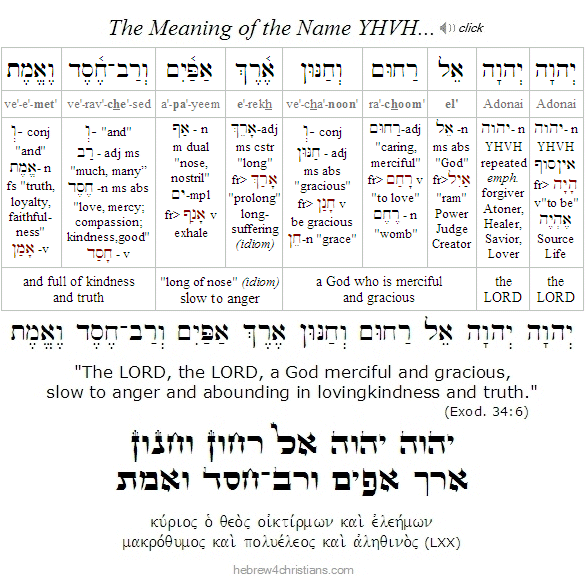 |
 |
Yom Kippur and the Name...

09.24.20 (Tishri 6, 5781) Yom Kippur was the only time when the High Priest could enter the Holy of Holies and call upon the great name YHVH (i.e., יהוה) to offer blood sacrifice for the sins of the people. This "life for a life" principle is the foundation of the sacrificial system and marked the great day of intercession made by the High Priest on behalf of Israel. For this reason it was also called the "Day of God's Mercy," or the "Day of the Name"(יום השם). This alludes to the revelation of the attributes of God's Compassion after the sin of the Golden Calf (see Exod. 34:6-7) -- a disclosure that foreshadowed the New Covenant. How much more, then, is Yom Kippur the "Day of Yeshua's Name" since He secured for all of humanity everlasting kapparah (atonement)? Yeshua the Messiah is Moshia ha'olam (מוֹשִׁיעַ הָעוֹלָם), the Savior of the world; He alone possesses the "Name above all other Names" (Phil. 2:9-10; Acts 4:12). It is altogether fitting, then, that God's "hidden Name" (i.e., shem ha-meforash: שֵׁם הַמְּפרָשׁ) was proclaimed before the kapporet (the cover of the Ark of the Covenant) in the Holy of Holies while atonement for our sins was made through the sacrificial blood.
This gives us a whole new perspective on Paul's words (Rom. 10:9): "if you confess with your mouth that Yeshua is LORD (יהוה) and believe in your heart that God raised Him from the dead (i.e., that his blood was shed and presented on your behalf upon the heavenly kapporet), then you will be saved (that is, you will be reconciled to God and made a partaker of the atoning work of Yeshua). Surely the Apostle Paul, a zealous rabbi who diligently studied Torah in Jerusalem under Rabbi Gamaliel (who was himself the grandson of the renowned Jewish sage Hillel the Elder), understood the theological implications when he stated that the prophecy: "And it shall come to pass that everyone who calls on the Name of the LORD (בְּשֵׁם יְהוָה) shall be saved" (Joel 2:32) applied directly to Yeshua (Rom. 10:9-13). As it is also written, "There is salvation in no one else, for there is no other Name under heaven given among men by which we must be saved" (Acts 4:12).
Click for a Hebrew reading lesson:
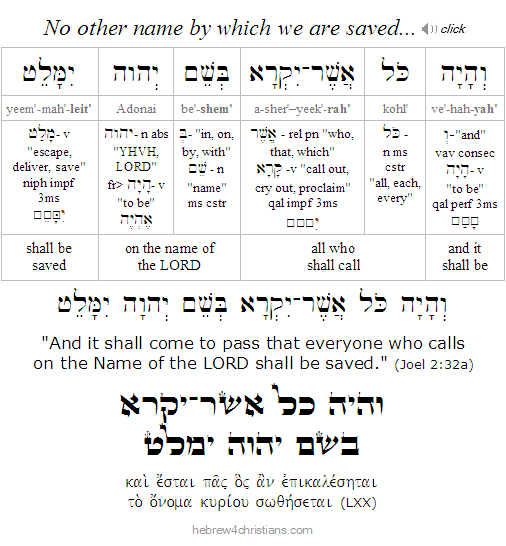 |
 |
Yom Kippur and Prophecy...

[ Yom Kippur begins an hour before sundown on Sunday, September 27th this year... ]
09.24.20 (Tishri 6, 5781) Some people might feel a certain amount of ambivalence about the holiday of Yom Kippur since it focuses on the purification of the sanctuary of the Temple, and this seems to have little to do with Yeshua and His sacrifice for our sins. After all, the Levitical system of worship is described in the New Covenant as "a shadow (σκιά) of the good things to come, instead of the true form (εἰκών) of these matters, and it can never, by the same sacrifices that are continually offered every year, make perfect those who draw near" (Heb. 10:1). Since the blood of bulls and goats cannot truly take away sins (Heb. 10:3), the sacrificial system was intended to foreshadow the coming work of Messiah, who was born to die, in accordance with God's will, and to offer his own body as a sacrifice for sin "once for all" (Heb. 10:5-10). "For by a single offering (μιᾷ γὰρ προσφορᾷ τετελείωκεν) he has perfected for all time those who are being sanctified" (Heb. 10:14).
Now while it is gloriously true that Yeshua functioned as our great High priest after the order of Malki-Tzedek by offering his blood upon the heavenly kapporet in the holy of holies "made without hands," there still is a prophetic component to this holiday that applies to ethnic Israel regarding the prophesied End of Days. After all, the realm of "shadows" still applies in the case of unbelieving Israel, who has yet to behold the unveiled glory that awaits her... Therefore the psalmist prophetically cries out, "Help us, O God of our salvation, for the glory of your Name; deliver us, and atone for our sins, for the sake of your Name" (Psalm 79:9), and this refers to the hour when Israel will call upon the LORD for salvation during the End of Days, otherwise called the great Day of the LORD. This event is prefigured in the blast of the "great shofar" which will be sounded to announce Yeshua as Israel's true Redeemer and King. Indeed, our the Messiah will one day return to Israel, cleanse her Temple, restore her to Himself, and set up His glorious kingdom.
 |
Since prophetically speaking Yom Kippur signifies ethic Israel's atonement secured through Yeshua's sacrificial avodah as Israel's true High Priest and King, there is still a sense of longing and affliction connected to this holiday that will not be removed until finally "all Israel is saved" (Rom. 11:26). So, on the one hand we celebrate Yom Kippur because it acknowledges Yeshua as our High Priest of the New Covenant, but on the other hand, we "have great sorrow and unceasing anguish in our hearts" for the redemption of the Jewish people and the atonement of their sins (Rom. 9:1-5; 10:1-4; 11:1-2, 11-15, 25-27). In the meantime, we are in a period of "mysterious grace" wherein we have opportunity to offer the terms of the New Covenant to people of every nation, tribe and tongue. After the "fullness of the Gentiles" is come in, however, God will turn His full attention to fulfilling His promises given to ethnic Israel. May that great Day of the LORD come soon, chaverim...
The judgment of God upon the USA, and indeed the world, has never been more apparent. For those with ears to hear: do teshuvah and pray. The time is drawing near!
 |
Essence of Yom Kippur...

[ This year the Yom Kippur fast begins an hour before sundown on Sunday, September 27th and lasts until an hour past sundown the following day.... ]
09.24.20 (Tishri 6, 5781) The earthy Tabernacle (i.e., Mishkan) and its furnishings were "copies" of the heavenly Temple and the Throne of God Himself. Moses was commanded to make the Sanctuary according to the "pattern" revealed at Sinai (Exod. 25:9). As it is written in our Scriptures, "For Messiah has entered, not into holy places made with hands, which are representations (ἀντίτυπος) of the true things, but into heaven itself, now to appear in the presence of God on our behalf" (Heb. 9:24). The centermost point of the earthly Tabernacle was the Ark of the Covenant (אֲרוֹן־הַקּדֶשׁ), a "three-in-one" box that contained God's Holy Word (i.e., the tablets of the Torah). As such, the Ark served as a symbol of kisei ha-kavod (כִּסֵּא הַכָּבוֹד), the Throne of Glory. The Ark stood entirely apart as the only furnishing placed in the "three-in-one" space called the Holy of Holies (קדֶשׁ הַקֳּדָשִׁים). Upon the cover of the Ark (i.e., the kapporet) were fashioned two cherubim (i.e., angel-like figures) that faced one another (Exod. 25:17-18). According to the Talmud (Succah 5b), each cherub had the face of a child - one boy and one girl - and their wings spread heavenward as their eyes gazed upon the cover (Exod. 25:20). This was the sacred place where the blood of purification was sprinkled during Yom Kippur, the Day of Atonement, and this is the Place (הַמָּקוֹם) that prefigured the offering of the blood of the Messiah, our eternal Mediator of the New Covenant. "For I will appear in the cloud over the kapporet" (Lev. 16:2; Exod. 25:22). As it is written, "I have blotted out as a dark cloud your transgressions, and as a cloud your sins; return to me (שׁוּבָה אֵלַי), for I have redeemed you (Isa. 44:22).
Click for a Hebrew reading lesson:
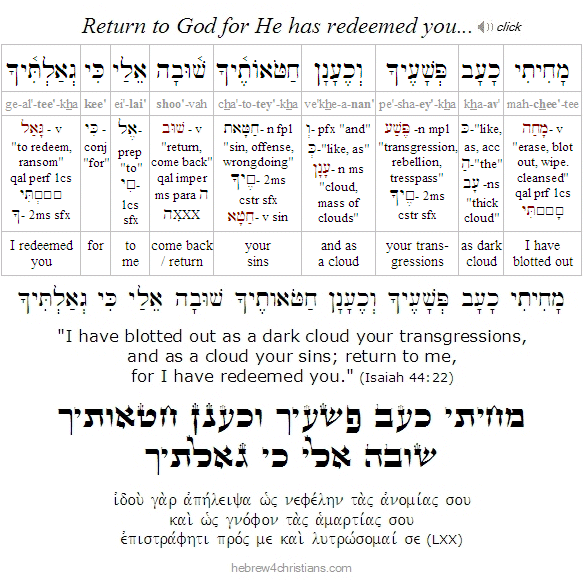 |
The central ritual of atonement given in the Torah is that of the anointed High Priest sprinkling sacrificial blood over the tablets of the law upon the kapporet (the "mercy seat") of the Ark of the Covenant - the Place where "Love and truth meet, where righteousness and peace kiss" (Psalm 85:10). It was from the midst of the surrounding cloud in the Holy of Holies that the Voice of the LORD was heard, just as it was in the midst of the surrounding cloud of darkness upon the cross that Yeshua cried out in intercession for our sins...
Note further that the High Priest was required to perform the Yom Kippur avodah (service) alone, while wearing humble attire, divested of his glory, and in complete solitude: "No one may be in the tent of meeting from the time he enters to make atonement in the Holy Place until he comes out" (Lev. 16:17). The Hebrew text literally says, "no adam (אָדָם) shall be in the tent," which suggests that something more than the natural man is needed for divine intercession. And just as Moses alone approached God in the thick clouds at Sinai to receive the revelation of the Altar as mediator of the older covenant (Exod. 24:15), so Yeshua, the Mediator of the New Covenant, went through his severest agony on the cross as the darkness covered the earth (Luke 23:44; Matt. 27:45).
"But when the Messiah appeared as Kohen Gadol (High Priest) of the good things that were to come, then, through the greater and more perfect tabernacle which is not man-made (that is, it is not of this created world), he entered the Most Holy Place (קדֶשׁ קָדָשִׁים) once and for all. And he entered not by means of the blood of goats and calves, but by means of his own blood, thus securing eternal redemption (גְּאוּלַּת עוֹלָם) for us.... Therefore he is the Mediator of a new covenant (המתווך של הברית החדשה), so that those who are called may receive the promised eternal inheritance (נַחֲלַת עוֹלָם), since a death has occurred that redeems them from the transgressions committed under the first covenant" (Hebrews 9:11-12,15).
Sowing and Reaping...

09.23.20 (Tishri 5, 5781) "Do not be deceived: God is not mocked, for whatever one sows, that will he also reap. The one who sows to his own flesh will from the flesh reap corruption, but the one who sows to the Spirit will from the Spirit reap eternal life" (Gal. 6:8). Here we see the importance of feeding the divine nature given to us in Messiah - to "sow" or "plant" truth within our hearts so that we will yield the "fruit of righteousness." However, feeding the lower nature, gratifying the desires of the flesh, disregarding the truth of eternity for the sake of temporal pleasure, and so on, leads to corruption and to death. Spirituality (רוּחניוּת), then, is of utmost importance to us, as we learn to "renew our minds" and yield ourselves to the truth of God (Gal. 5:16). We are engaged in the battle daily - an internal struggle to direct our hearts and to make the decision to be awake to the Lord's Presence or to surrender to our fallenness, fear, and despair. The Lord has promised us his very strength for the battle, but we must choose to believe in order to receive the blessing. Since God will surely help us as we seek to do His will (see 1 John 5:14), let us therefore draw near to the throne of grace with confidence, so that we may receive mercy and find grace to help in time of need (Heb. 4:16). God makes the way of escape (1 Cor. 10:13). The LORD God Almighty says to your heart: "Fear not, for I am with you; be not dismayed, for I am your God: I will strengthen you, yea, I will help you, yea, I will uphold you the right hand of my righteousness (Isa. 41:10).
Click for a Hebrew reading lesson:
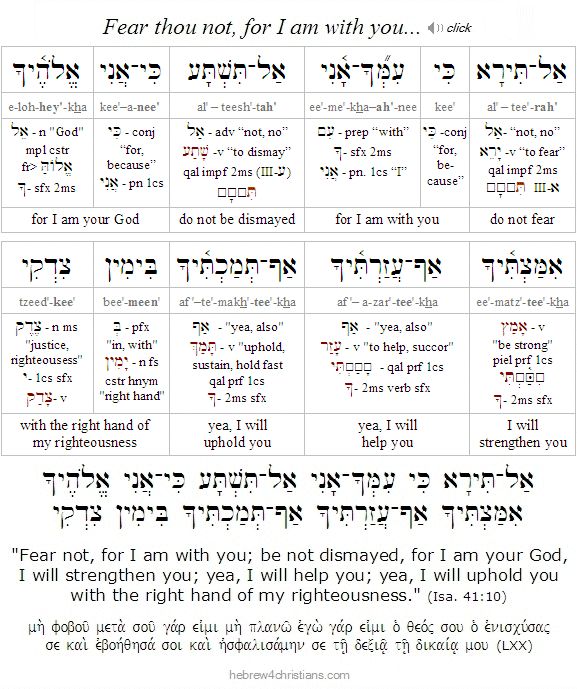 |
 |
Strength to the Faint...
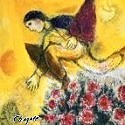
09.23.20 (Tishri 5, 5781) "He gives strength to the faint..." (Isa. 40:29a). Human pride willingly hears that God gives strength, but it objects that such strength is found at the end of being rendered powerless. Yet this is the paradox that scandalizes human reason: the LORD God gives strength to the weary, to the broken, and to the troubled, and he opposes the proud by hiding himself by means of their own self-sufficiency. Faith's word to the proud of heart is this: "If anyone imagines that he knows something, he does not yet know as he ought to know" (1 Cor. 8:2). We must be humble to ascertain spiritual truth, and that means confessing our frailty and need. The pattern is that God brings us to the place of no escape so that we may come to know his mercies. Though "my flesh and my heart may fail," nevertheless "God is the strength of my heart and my portion forever" (Psalm 73:26).
God's way of deliverance is entirely different than man's way. Man tries to suppress the flesh, to cover it up, to justify its failings, or to enlist its power in the battle against sin (i.e., religion), but God's way is to remove the flesh from the equation. The goal is not to make us stronger and stronger, but rather weaker and weaker, until the flesh is "crucified" and only the sufficiency of the Messiah remains. Then we can truly say, "I have been crucified with Messiah. It is no longer I who live, but the Messiah who lives in me. And the life I now live in the flesh I live by faith in the Son of God, who loved me and gave himself for me" (Gal 2:20). The word "Hebrew" (עִבְרִי) means one who has "crossed over" (עָבַר) to the other side, as our father Abraham did (Gen. 14:13). It is on the other side of the cross that we experience the very power that created the universe "out of nothing" (i.e., yesh me'ayin: יֵשׁ מֵאַיִן) and that raised Yeshua the Messiah from the dead.
Click for a Hebrew reading lesson:
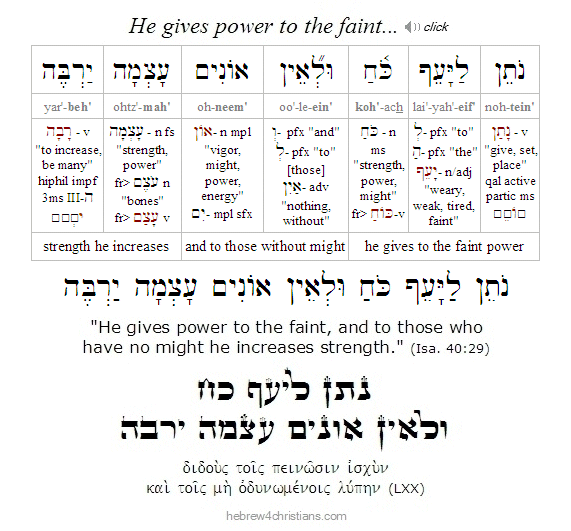 |
 |
Trusting God's Love for you...
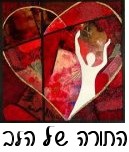
09.23.20 (Tishri 5, 5781) Though it is essential to have faith in God, and in particular, faith in the power of his salvation given in Yeshua the Savior, it is also important to believe that you are precious in God's eyes -- that you matter to his heart -- and that your life carries eternal weight before him. Faith in what God has done must therefore include faith in his personal love for you -- in his desire for you to know yourself as chosen, forgiven, and beloved. You must first believe that God loves you and regards you as worthy of His love; you must "accept that you are accepted." It is your faith that brings you near... After all, what does faith in God mean apart from trust that you truly belong to him and are welcome in his presence? God's love is the question, and your response - your teshuvah - is the answer.
The themes of the Book of Exodus, and indeed of the Bible itself, will mean little to you unless you identify with the journey of the people, and that implies that you reckon yourself as worth saving... You must see yourself as the recipient of divine affection and love. Indeed, without this as a first step, how will you make the rest of the journey? This is similar to the very First Commandment revealed at Sinai: "I AM the LORD your God, who brought you out of the land of Egypt..." Notice that the statement, "I AM the LORD your God" (אנכי יהוה אלהיך) was uttered in the second person singular, rather than in the plural. In other words, you (personally) must be willing to accept the love of the LORD into your heart, since the rest of the Torah is merely commentary to this step of faith. Therefore the Book of Exodus is called Shemot (שְׁמוֹת), "names," because it sees every person as worthy of God's redeeming love and revelation. "For God so loved the world..." (John 3:16).
Those who directly experienced God's deliverance in Egypt believed they were redeemable people. Before anything else they made a decision to receive hope within their hearts. The blood of the original Passover was a smeared as sign of their faith that God would accept them. We also must begin here. This is the start of the journey. We step out by faith, leaving behind the familiar - including the dark familiarity of our sin and shame - and venture out into the unknown. We venture out in hope, because we trust in the love and promises of God.
The story of divine deliverance is not the story of "other people"; it is not a story understood in the "third person." You must choose to belong. Again, your faith draws you near. That is why the sages teach: b'chol dor vador - in each and every generation an individual should look upon him or herself as if he or she (personally) had left Egypt. It's not enough to recall, in some abstract sense, the deliverance of the Jewish people in ancient Egypt, but each Jew is responsible to personally view Passover as a time to commemorate their own personal deliverance from the bondage of Pharaoh. The same must be said regarding Shavuot. Each person should consider himself as having personally received revelation at Sinai. The altar of the Mishkan was set up for you to draw near to God - you, not some people who lived long ago... This is why non-Jews who turn to the God of Israel by putting their trust in the Messiah are regarded equal members in the covenants and promises given to ethnic Israel. It is a brit milah (בְּרִית מִילָה) - literally, a "covenant of the word" - that makes us partakers of the covenantal blessings given to Abraham (Eph. 2:12-19; Gal. 3:7; Col. 2:11, etc.).
Click for a Hebrew reading lesson:
 |
 |
Facing the Fear of Death...
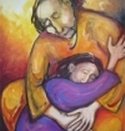
09.22.20 (Tishri 4, 5781) Some of us may fear death because we are unsure of God's heart for us... After all, life in this world is likened to a vapor or a passing shadow (Psalm 144:4). Nothing abides; good things here never last; and we labor under the unmentionable anxiety that death will separate us from everyone and everything we love. However, death is not the end for the us, for "love is stronger than death, passion fiercer than the grave; its flashes are flashes of fire, the very flame of the LORD" (Song 8:6).
"What will death be like?" they asked the Master. "It will be as if a veil is ripped apart and you will say in wonder, "So it was you all along!" (De Mello). Death is a most poignant homecoming, a place of joyful welcome, wherein all shall be well for ever. The righteous have an everlasting foundation in the faithful heart of God. Faith in the LORD believes that a single supreme, all-knowing, all-powerful and benevolent spiritual Power directs all things, and that Messiah is the beginning, middle, and end of all conscious meaning, truth, and substance, as it is written: כִּי הַכּל מִיָּדוֹ הַכּל בּוֹ וְהַכּל לוֹ הוּא, "For from him and through him and to him are all things" (Rom. 11:36). A life of faith in the one true God imparts the blessing of shalom (inner peace) and assures the heart that all shall be made well by the love of God. So then, "if we live, we live to the Lord, and if we die, we die to the Lord. So then, whether we live or whether we die, we belong to the Lord" (Rom. 14:8). For the believer in Messiah, death does not define us, and indeed, we trust that God will attend to us in the moment of our utmost extremity (John 5:24; 11:25-26). If we desire eternal life with all our hearts and remember our end before the Lord in heaven, we will be free of the fear of death.
Click for a Hebrew reading lesson:
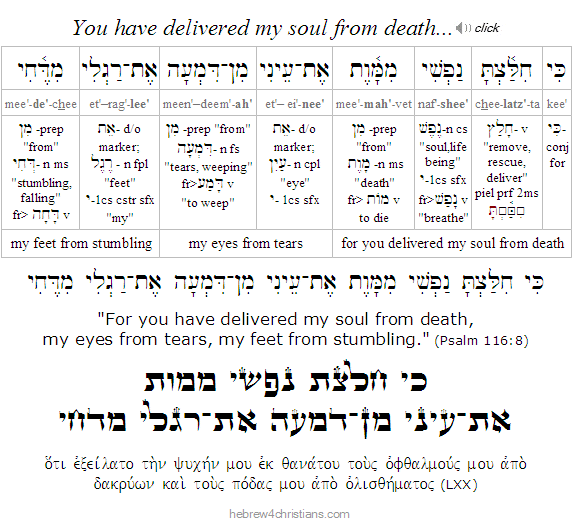 |
 |
God's Overmastering Power...
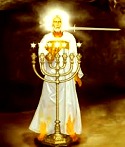
09.22.20 (Tishri 4, 5781) Though it might sometimes seem that evil has the upper hand in this fallen world, we must remember that the LORD God Almighty is in complete control and works all things together for our good - even overturning the schemes of the wicked for our ultimate benefit (Gen. 50:20; Psalm 57:2; Rom. 8:28). The devil thought he had won a great victory when Yeshua died upon the cross, but God utterly vanquished his evil intent by raising Messiah from the dead and exalting Him as the matchless Ruler over all principalities, powers, and kings of earth (Rev 1:5). Ein od milvado (אֵין עוֹד מִלְבַדּו) - there is no power apart from God. Everything is in His hands, and He alone is the keyholder of hell and death (Rev. 1:18). "Hallelujah! For the Lord our God, the Almighty One, reigns." Therefore the LORD asks your anxious heart: "Behold, I AM the LORD, the God of all flesh. Is anything too difficult for me?"
הנה אני יהוה אלהי כל־בשר
הממני יפלא כל־דבר
hee·nei · a·nee · Adonai · e·lo·hei · kol–ba·sar
ha·mee·me'·nee · yee·pa·lei · kol-da·var

"Behold, I am the LORD, the God of all flesh.
Is anything too difficult (or wonderful) for me?"
(Jer. 32:27)
Hebrew Study Card

Click for a Hebrew reading lesson:
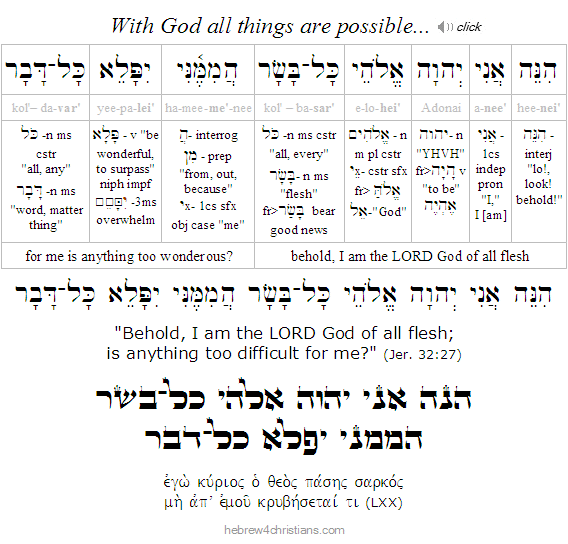
As it is written in the psalms: "For the LORD Most High (יְהוָה עֶלְיוֹן, lit., "the ascended LORD") is to be feared; for He is the great king over all the earth" (Psalm 47:2).
Waking Up in Time...

09.22.20 (Tishri 4, 5781) Our life in this world will end far sooner than we expect, and then what will become of us? I am not here thinking of the end of "the" world, but rather the end of your world - when you will die and face the light of eternity. Today, this moment, you are on the way, going someplace; your "latter days" are already come upon you... If you are not prepared today, how will you be better prepared tomorrow? Today is the day of salvation, the hour that matters most. Learn to die to the world now, to let go of what presently holds you captive, so that you are free to meet that which forever shall come. Don't put off genuine teshuvah: turn while there is still time. As Jim Elliot once said: "He is no fool who gives what he cannot keep, to gain what he cannot lose." And may God give us mercy to say from the heart: "For me to live is Messiah, and to die is gain" (Phil. 1:21).
Click for a Hebrew reading lesson:
Lord, teach us to pray...
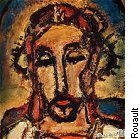
09.21.20 (Tishri 3, 5781) Yeshua told his followers, "You did not choose me, but I chose you and appointed you to go forth and bear fruit..." (John 15:16). Religious pride recoils at these words, thinking, "I don't want to be chosen by God; I want to be in control; I want to choose God first." The ego seeks some reason for revelation, some merit that commends the self to God. It's hidden assumption is, "thank you, God, that I am not like other men" (Luke 18:11). The choice of God is scandalous because it is based on God's love, not our own (1 John 4:19). We were spiritually reborn, not as the result of anything in the realm of nature, nor even through our personal decision, but solely on account of God's sovereign prerogative (John 1:13). The carnal ego is quick to suggest, however, that God "needs you" to do his will, or that you have something unique to offer heaven by your service, though it is idolatrous to elevate the self this way. "Not by might nor by power, but by my spirit, says the LORD of Hosts" (Zech. 4:6). We don't seek to please God so that we can be chosen; we are chosen so that we can please him... God's grace and love for us is always the starting point: "Lord, teach us to pray," that is, choose the words for us, the groaning of your Spirit, in accordance with your perfect will...
It is the fruit of his Spirit, not the fruit of our own that matters (Gal. 5:22-23). We are God's workmanship, created in the Messiah for good works, which God prepared beforehand that we should walk in them" (Eph. 2:10). We are able to live for God through the agency of His love and sustaining grace, all for the sake of the glory of His Name. "For from Him and through Him and to Him are all things. To Him be glory forever. Amen" (Rom. 11:36).
Click for a Hebrew reading lesson:
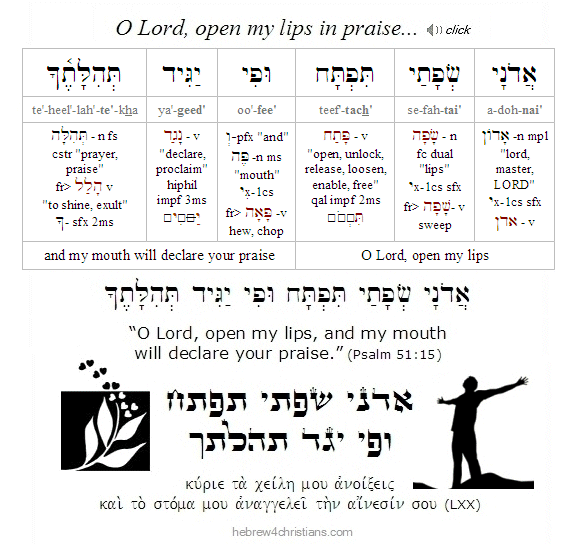 |
 |
Yom Kippur Mercies...
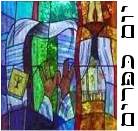
09.21.20 (Tishri 3, 5781) In Jewish tradition Rosh Hashanah is called Yom Ha-Din (יוֹם הַדִּין), the Day of Judgment, whereas Yom Kippur is called Yom Ha-Rachamim (יוֹם הָרַחֲמִים), or the Day of Mercies, which suggests that God is first revealed as our Creator and Judge before He is known as our merciful Savior. This is hinted in the two accounts of creation, where God is first revealed as Elohim (Gen. 1:1), but later is revealed as YHVH (יהוה) when He breathed life into man nishmat chayim, the breath of life (Gen. 2:4). It is somewhat odd, however, that during Rosh Hashanah we do not approach God as our Judge, beating our breast in sorrow during confession of sin, as we do on Yom Kippur. Some say the reason we celebrate, eating special foods, rejoicing, listening to the shofar, is because we rejoice in the kingship of God as His royal children, and only later do we appeal to Him as merciful Judge in light of His revelation as YHVH, our Savior, Redeemer, and Lord. As believers in Yeshua, we have all the more reason to rejoice on Rosh Hashanah, since at the cross Yeshua took upon Himself our judgment to give us everlasting mercy from God. !הַלְלוּ־יָהּ
חסד־ואמת נפגשׁו
צדק ושׁלום נשׁקו
che'·sed ve·e·met neef·ga'·shoo
tze'·dek ve·sha·lom na·sha'·koo

"Love and truth have met,
justice and peace have kissed."
(Psalm 85:10)
Download Study Card

Hebrew Reading Lesson:
Teshuvah of Brokenness...
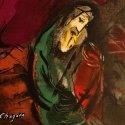
09.21.20 (Tishri 3, 5781) Regarding the call to do teshuvah the LORD appeals: "Come back to me with all your heart (בְּכָל־לְבַבְכֶם) - with fasting, with weeping, and with mourning - and rend your hearts and not your garments, and return to the LORD your God (וְשׁוּבוּ אֶל־יְהוָה אֱלהֵיכֶם), for he is gracious and merciful, slow to anger, and abounding in love..." (Joel 2:13). Genuine teshuvah (repentance) is not about the "outer layers" of life, but engages the deepest depths of heart; it is not expressed in religious practices or rituals but in personal brokenness and utter desperation... As King David said, "the sacrifices of God are a broken spirit (רוּחַ נִשְׁבָּרָה); a broken and contrite heart (לֵב־נִשְׁבָּר וְנִדְכֶּה), O God, you will not despise" (Psalm 51:17). As is written in our Haftarah portion for Shabbat Shuvah: "Return O Israel (שׁוּבָה יִשְׂרָאֵל), to the LORD your God, for you have stumbled because of your iniquity; take with you words and return to the LORD (וְשׁוּבוּ אֶל־יְהוָה) and say to him, 'Take away all iniquity; accept what is good, and we will pay with bulls the vows of our lips'" (Hos. 14:1-2).
Note that the appeal to the LORD as "gracious and merciful, slow to anger, and abounding in steadfast love" (חַנּוּן וְרַחוּם הוּא אֶרֶךְ אַפַּיִם וְרַב־חֶסֶד) recalls the meaning of YHVH (יהוה) revealed to Moses in his state of brokenness over the sin of the Golden Calf (Exod. 34:6-7).
Hebrew Reading Lesson:
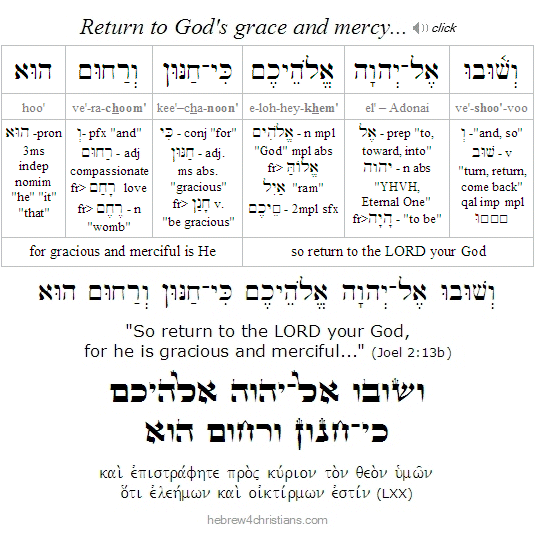 |
 |
The Days of Judgment...

09.21.20 (Tishri 3, 5781) According to Jewish tradition, on Rosh Hashanah the destiny of the righteous, the tzaddikim (צַדִּיקִים), are written in the Book of Life (סֵפֶר הַחַיִּים), and the destiny of the wicked, the resha'im (רְשָׁעִים), are written in the Book of Death (סֵפֶר הַמֵּתִים). Most people, however, won't be inscribed in either book, but are given ten days -- until Yom Kippur -- to repent before sealing their fate. If a person sincerely turns to God and willingly makes amends to those whom he has harmed, he may be given another year to live in the following (Jewish) year. On the other hand, if he does not repent, then the decree will be given that he will die during the coming year... In other words, though the books are "opened" on Rosh Hashanah, our deeds during the first ten days of the new year will determine whether we are written in the book of life or the book of death. The ten days between Rosh Hashanah and Yom Kippur are therefore accorded special sanctity and are called Aseret Yemei Teshuvah - the "Ten Days of Repentance." These are days that call for sincere personal repentance (i.e., תְּשׁוּבָה, "turning to God") so that the divine decree will be given for our good.... These days are also called Yamim Nora'im (ימים נוראים) - the "Days of Dread" - because they represent a time of judgement that affects the divine decree both for the coming year as well as in the world to come... However, as Abraham Heschel wrote, "No word is God's final word. Judgment, far from being absolute, is conditional. A change in man's conduct brings about a change in God's judgment" (The Prophets, 194). The Gates of Repentance (שערי התשובה) are always open before the LORD God our Savior.
 |
As Messianic believers, we affirm that Judgment Day (i.e., yom ha'din: יום הדין) has come and eternal justice was served through the sacrificial offering of Yeshua for our sins (2 Cor. 5:21). Yeshua is the complete fulfillment of the Akedah of Isaac. Our names are written in the Lamb's Book of Life, or Sefer HaChayim (Rev. 13:8). We do not believe that we are made acceptable in God's sight by means of "our own works of righteousness" (Titus 3:5-6), though of course that does not excuse us from being without such works (as "fruit" of the Holy Spirit in our lives). Indeed, professing Christians will stand before the Throne of Judgment to account for their lives (2 Cor. 5:10). "Every man's work shall be made manifest: for the day shall declare it, because it shall be revealed by fire; and the fire shall try every man's work of what sort it is" (1 Cor. 3:13). Life is an examination, a test, and every moment is irrepeatable. Every "careless" word we utter will be echoed on the Day of Judgment (see Matt. 12:36-37). Our future day of judgment is being decided today...
The climax of the Ten Days of Dread is the 25 hour fast called Yom Kippur, which begins an hour before sundown on Sunday, Sept. 27th and runs until an hour past sundown the following day. The sages state that "afflicting the soul" (Lev. 23:32), or fasting, is not undertaken to punish ourselves for our sins, but rather to help us focus entirely on our spiritual side. It is customary to light the holiday candles, recite Shehecheyanu, and eat a late afternoon meal with loved ones (called Seudat Mafseket, a meal of cessation) a couple hours before the fast begins. It is also traditional to wear white clothing as a symbol of purity during Yom Kippur religious services, and some married men wear a kittel, or white robe, as well. Because of the sanctity of the holiday, the tallit is worn for evening services as well. Dressing in this way is intended to make us appear pure, like the angels.
Yom Kippur is one of the most important holidays of the Jewish Year and holds tremendous prophetic significance regarding the Second Coming of Messiah, the restoration of national Israel, and the final judgment of the world. It is also a day that reveals the High-Priestly work of the Mashiach Yeshua as our Kohen Gadol (High Priest) after the order of Malki-Tzedek (Heb. 5:10, 6:20).
The biblical name for the Day of Atonement is Yom Kippurim (יוֹם הַכִּפֻּרִים), meaning "the day of covering(s), atonements, pardons, reconciling." Yom Kippur was the only time when the High Priest would enter the Holy of Holies and utter the Name of YHVH to offer blood sacrifice for the sins of the people. This "life for a life" principle is the foundation of the sacrificial system and marked the day of intercession made by the High Priest on behalf of Israel.
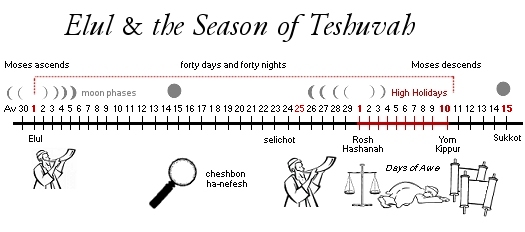 |
Yom Kippur used to be called "The Day of God's Mercy," or "The Day of God's Name." This alludes to the revelation of the Name YHVH (יהוה) and the attributes of God's Compassion after the sin of the Golden Calf (Exod. 34:6-7). How much more, then, is Yom Kippur the "Day of Yeshua's Name" since He secured for all of humanity everlasting kapparah (atonement)? Yeshua the Messiah is Moshia ha'olam (מוֹשִׁיעַ הָעוֹלָם), the Savior of the world; His indeed is the "Name above all other Names" (Phil. 2:9-10; Acts 4:12). It is altogether fitting, then, that His "hidden" Name was proclaimed before the kapporet (the cover of the Ark of the Covenant) in the Holy of Holies before the Father for the purification of our sin.
Shabbat Shuvah - שבת שובה
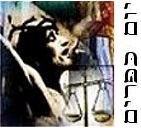
09.20.20 (Tishri 2, 5781) The Sabbath between Rosh Hashanah and Yom Kippur is called Shabbat Shuvah - "The Sabbath of Return." It is called "shuvah" because the Haftarah (Hosea 14:2) begins, Shuvah Yisrael ad Adonai Elohekha (שׁוּבָה יִשְׂרָאֵל עַד יְהוָה אֱלהֶיךָ): "Return, O Israel, unto the LORD your God!" Since this Sabbath occurs before Yom Kippur, it is customary to listen to a sermon from an honored Torah sage calling for teshuvah (repentance) at this time. "Seek the LORD while he may be found; call upon him while he is near. Let the wicked forsake his way, and the unrighteous man his thoughts; let him return to the LORD, that he may have compassion on him, and to our God, for he will abundantly pardon" (Isa. 55:6-7).
שׁובה ישׂראל עד יהוה אלהיך
כי כשׁלת בעונך
shoo·vah · yees·ra·el · ad · Adonai · e·lo·hey'·kha
kee · kha·shal'·ta · ba·a·vo·ne'·kha

"Return, O Israel, to the LORD your God,
for you have stumbled because of your iniquity."
(Hosea 14:2)

Download Study Card
Click for a Hebrew reading lesson:
The haftarah portion for Shabbat Shuvah is composed of selections from two books of Prophets: Hosea, and either Joel or Micah (depending on Ashkenazic or Sephardic custom). Ashkenaz read Hosea 14:2-10 and Joel 2:15-27; Sephardim read Hosea 14:2-10 and Micah 7:18-20. Other than the additional haftarah, the service on this Shabbat is not any different from a regular Shabbat, though the theme of teshuvah is of course central.
Ha'azinu - Yom Kippur Audio Podcast...
09.20.20 (Tishri 2, 5781) In this special "High Holiday" audio presentation, I discuss the holiday of Yom Kippur and its themes, particularly in reference to the atonement given in the Messiah Yeshua, as well as parashat Ha'azinu, the Torah portion we always read between Rosh Hashanah and Yom Kippur. The Ha'azinu is an amazing prophetic song ("shirah") written by Moses just before he died. Written nearly 1,500 years before the advent of Yeshua, Moses foresaw the climatic events of Israel's history -- its past, present, and most notably its future, including the future time of redemption and atonement at the End of the Age.
Ha'azinu - The Prophetic Song of Moses...
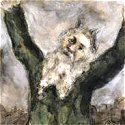
09.20.20 (Tishri 2, 5781) Shanah Tovah, friends! In last week's Torah portion (i.e., Vayeleich), Moses finished his long address to the people of Israel and commissioned Joshua to be his successor. The LORD then foretold that after Moses' death the Israelites would "whore after foreign gods" and break covenant with Him. In light of this, Moses was instructed to teach the Israelites a great prophetic song called the "Ha'azinu." This week's portion provides the words of this song, which foretells of Israel's history (past, present, and the future redemption) and that warns the people not to stray from the path that God had commanded. Structured in the form of an "oracle," the Ha'azinu contains Moses' final words of prophecy given to the Israelites before he ascended Mount Nebo to die.
The oracle begins by declaring the righteousness of God. Moses reminded the people of all that God had done for them and then foresaw all the great gifts they would enjoy as God's chosen nation in the promised land. However, instead of thanking God for all these gifts, Moses foresaw that the people would "grow fat" and forsake the LORD for various "no-gods." This would cause God's anger to burn, and Israel's apostasy would eventually lead to defeat at the hand of their enemies and to eventual exile. All the various curses listed earlier in the covenant would then come upon the people: "I will heap disasters upon them; I will spend my arrows on them; they shall be wasted with hunger, and devoured by plague and poisonous pestilence." Indeed, God would have entirely destroyed the Jewish people were it not for His reputation among the nations, lest they should say, "Our hand is triumphant, it was not the LORD who did all this."
Ultimately, however, God will vindicate his justice and mercy before heaven and earth by saving Israel from her enemies and atoning for all her sins. The song ends, "Cry out, O nations, with his people, for he will avenge his servants' blood; he will take vengeance against his enemies, and will atone for his land and his people."
After Moses recited the words of this song, he encouraged the people to take the words of his prophecy to heart and to teach them diligently to their children. "For it is no empty word for you, but your very life, and by this word you shall live long in the land." The portion ends with Moses ascending Mount Nebo so that he could see the Promised Land before he died.
Click for a Hebrew reading lesson:
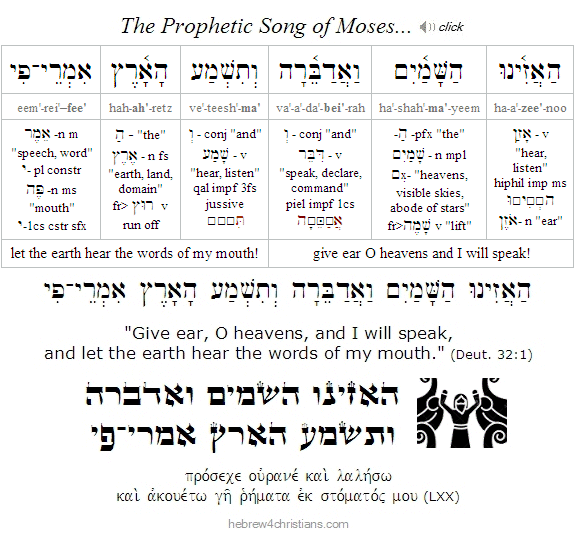 |
We read the Ha'azinu every year near the High Holidays, either just before or just after Yom Kippur. In the Sefer Torah (Torah Scroll), the prophetic song is written in a stylized two-column format with extra spaces. Each line of the shirah (song) is matched by a second, parallel unit (Talmud: Shabbat 103b).
The Ha'azinu reminds us that who we listen to ultimately decides our fate. It begins, "Give ear, O heavens (הַאֲזִינוּ הַשָּׁמַיִם), and I will speak, and let the earth hear (וְתִשְׁמַע הָאָרֶץ) the words of my mouth" (Deut. 32:1). The word ha'azinu (הַאֲזִינוּ) comes from verb azan (אָזַנ), as does the Hebrew word for "ear" (i.e., ozen: אזֶן). The Midrash Rabbah says that the ear (אזֶן) gives life to all the organs of the body. How so? By listening (שׁמע, shema) to the Torah. This idea is repeated in the New Testament: "Faith comes from listening to the Word of God" (Rom. 10:17). The Word of God (דְּבַר־אֱלהִים) is our very life, friends...
Shanah Tovah v'Shabbat Shalom!

09.18.20 (Elul 29, 5780) "God will circumcise your heart" (Deut. 30:6). Circumcision involves the removal of the "outer" to reveal the inner (and more sensitive) part. The metaphor suggests "heart surgery" where the heart would be "opened up" to love God without blockage or obstruction. This is connected with the New Covenant (Jer. 31:30-32) when the Torah would be "written upon the heart" and become part of the inner life of the soul. The purpose of this is "so that you may live," i.e., experience rebirth and new life.
A changed heart leads to surrender to God's love which is filled with great peace. As Hudson Taylor once wrote: "I am no longer anxious about anything, as I realize that He is able to carry out His will for me. It does not matter where He places me, or how. That is for Him to consider, not me, for in the easiest positions He will give me grace, and in the most difficult ones His grace is sufficient." May God help us surrender to His Presence... "The reason why many are still troubled, still seeking, still making little forward progress is because they haven't yet come to the end of themselves. We're still trying to give orders, and interfering with God's work within us" (A. Tozer).
When Yeshua says, "Come to me, all who labor and are heavy laden, and I will give you rest," he doesn't ask you to "do religion" or reform your character: He calls you where just where you are - in the midst of your heaviness - and invites you to experience his rest... His "yoke" is to learn of his heart, to experience his gentleness and humility, which leads to the blessing of shalom. Amen. May you draw near to him now, chaverim...
Click for a Hebrew reading lesson:
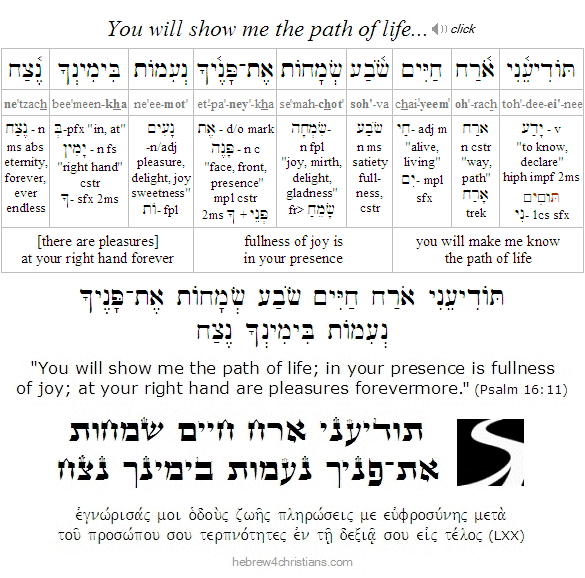 |
 |
Substance of Hope...

09.18.20 (Elul 29, 5780) It is written in our Scriptures: "Faith is the foundation (i.e., ὑπόστασις: the "substance," reality, being, etc.) of hope, the conviction of the unseen... Without faith it is impossible to please God, for whoever would draw near must believe that God exists and rewards (μισθαποδότης) those who seek him" (Heb. 11:1,6). Note that God is pleased when we seek his presence, that is, when we when we look past the ephemera and ambiguity of the phenomenal world for the truth about spiritual reality. For our part, faith depends on confession. We must say that we believe, and affirm it with all our heart (Rom. 10:9). As it says, "I will make Your faithfulness known with my mouth" (Psalm 89:2). When you encounter tribulation, or experience some crisis of faith, reaffirm aloud: "I believe in God's promise..." Physically expressing your faith is itself an act of faith, and this encourages your soul to trust in God's healing reward even in the present struggle or darkness...
 |
Turning of the Heart...

[ The following is related to the "Days of Awe" and the theme of teshuvah (repentance)... ]
09.18.20 (Elul 29, 5780) The following parable speaks of the season of teshuvah: A king's son was at a far distance from his father. Said his friends to him, "Return to your father." He said, "I can't: the way is too far. His father sent word to him and said, "Go as far as you are able, and I will come the rest of the way to you. Thus says the Holy One, blessed be He, to his faraway children: "Return to Me, and I will return to you" (Mal. 3:7).
Click for a Hebrew reading lesson:
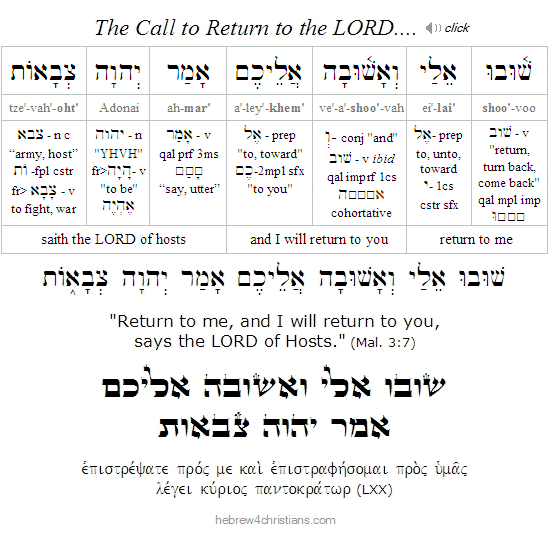 |
It is never too late to turn to God... there is always hope. The prophet Jeremiah spoke in the Name of the LORD: "Return, faithless Israel, declares the LORD. I will not look on you in anger, for I am kind (כִּי־חָסִיד אֲנִי), declares the LORD" (Jer. 3:12). When the people drew back in shame, however, God encouraged them by saying "Come back, O lost children; I will heal your faithlessness. "Behold, we come to you, for you are the LORD our God" (Jer. 3:22).
Click for a Hebrew reading lesson:
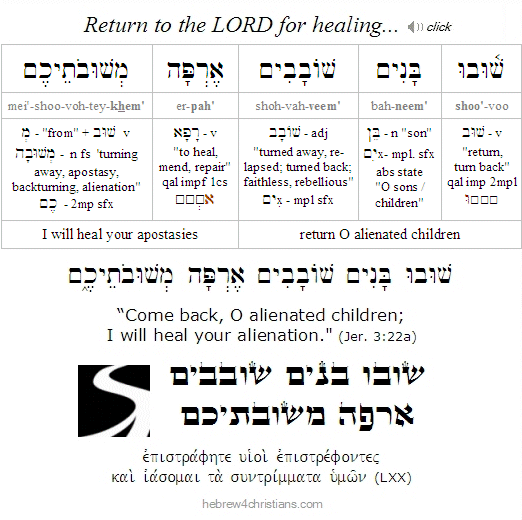 |
Yeshua illustrated the idea of teshuvah (i.e., תְּשׁוּבָה, "returning to God") by telling the story of the "prodigal son" (Luke 15:11-32). After squandering his father's inheritance, a wayward son decided to return home, full of shame and self-reproach. "But while he was still a long way off, his father saw him and was filled with compassion for him; he ran to his son, threw his arms around him and kissed him." The father then ordered a celebratory meal in honor of his lost son's homecoming. When his older brother objected, the father said, "We had to celebrate and be glad, because this brother of yours was dead and is alive again; he was lost and is found."
This parable reveals that teshuvah ultimately means returning (shuv) to the compassionate arms of your Heavenly Father... God sees you while you are still "a long way off" (Rom. 5:8). He runs to you with affection when you first begin to turn your heart toward Him. Indeed, God's compassion is so great that He willingly embraces the shame of your sins and then adorns you with "a fine robe, a ring, and sandals." Your Heavenly Father even slaughters the "fattened calf" (Yeshua) so that a meal that celebrates your life may be served....
Why did Yeshua come? He was like the father in the parable who was actively looking for his lost son... He came to "seek and save the lost" (Luke 19:10). Yeshua likened Himself to a shepherd who left his flock to search for one lost sheep, and after finding it, laid the sheep on his shoulders rejoicing (Luke 15:3-7). He also likened Himself to a woman who lost a coin but diligently searched for it. After she found it, she called together her friends and neighbors, saying, 'Rejoice with me, for I have found the lost coin!' (Luke 15:8-10).
Yeshua's first recorded words of public ministry were "Repent (shuv) and believe the gospel" (Mark 1:15). In Greek the word "repent" is metanao (μετανοέω), meaning "change your thinking," and the word "gospel" means "good news" (i.e., εὐαγγέλιον, from , εὖ- "good," and ἄγγελος, "message"). We could translate the verse as: "Turn around! Change your thinking and believe the message of God's good will toward you."
The Jews had known about repentance for a long time, of course. They understood what was required to "keep the law," and they even devised legal formulas for "making your defense" before the Almighty (i.e., the Kol Nidre service recited before Yom Kippur: "We exonerate ourselves for failing to keep our word..."). If Moses and the law could have saved us, we wouldn't need to be "declared righteous by God's grace through the redemption in Yeshua" (Rom. 3:24). We wouldn't need the Cross! All we'd need to do is work harder at repentance, perform additional mitzvot, earn merit before Heaven, and so on. But clearly Yeshua meant something other than this when He made the call to "repent."
The teshuvah of Yeshua is inextricably connected with the "good news" that He (alone) is God's answer to the problem of our sin. His message is always "change your thinking and believe the message of God's good will toward you." Yeshua was born to die as the divinely appointed Sin-bearer of the world (Heb. 10:5-7). He came to earth and emptied himself (κένωσις) of His regal glory and power in order to be the High Priest (הַכּהֵן הַגָּדוֹל) after the order of Malki-Tzedek (מַלְכִּי־צֶדֶק) and the Mediator of the New Covenant (Heb. 5:6; 9:15; Psalm 110:4; 1 Tim. 2:5). He came to Jerusalem (Moriah) for the explicit purpose of suffering, dying, and being raised from the dead (Matt. 16:21; Luke 9:22). Yeshua died not only for our forgiveness, but also to deliver us from "the law of sin and death," i.e., the power that sin holds in our lives. He died to so that we could become the very children of God (בְּנֵי אֱלהִים).
Yeshua never called us to follow the scribes and Pharisees, whom he called blind guides and hypocrites (Matt. 23:13-36). He did not want people to become slaves to rituals or religion (1 Cor. 7:23). No, he called people to follow Him: "Take up your cross and follow me." Turn your thinking around! Die to your religion, your world. Be comforted because there is good news from heaven! God's acceptance is given to those who trust in the righteousness of Yeshua in place of self-righteousness that may be gained by performing the "works of the law" (Gal. 2:16, Titus 3:5; John 1:17). Yeshua is "the goal of the Torah for righteouness" for all who believe (Rom. 10:4-13). Wow. Now that's a message that requires a profound "change of mind" for the religiously-minded to accept. Dying to the religious project of attaining self-righteousness is to admit the need for radical deliverance from the law itself.
Note: For more on this topic, see "Teshuvah of the Heart."
 |
Making Room for Wonder...

09.17.20 (Elul 28, 5780) Ultimately we must make the choice whether we will respect life or not (see Deut. 10:12). In this present world, God "hides" so that people may seek him (Isa. 45:15; Matt. 13:10-15). The voice of conscience may be suppressed and the revelation of nature ignored; moreover, some things are perceived only if they are looked for in the right way, and the Divine Presence is not apprehended apart from humility and reverence. We must "make room" for wonder; we must open the "eye of the heart" to see what is greater than our everyday vision. "It is good to look at the sky often, as this helps develop the awe of God." Indeed the word for fear, yirah (יִרְאָה), is connected with the word for seeing, ra'ah (רָאָה). When we really see life as it is, we will be filled with wonder over the glory of it all. Every bush will be aflame with the Presence of God and the ground we walk upon shall suddenly be perceived as holy (Exod. 3:2-5). Nothing will seem small, trivial, or insignificant. In this sense, "fear and trembling" (φόβοv καὶ τρόμοv) before the LORD is a description of the inner awareness of the sanctity of life itself (Psalm 2:11, Phil. 2:12).
The fear of God is paradoxical. Some verses emphasize the fear of the Lord (i.e., his power), while others emphasize his great love (i.e., his grace). We are drawn to God in adoration, appreciation, wonder, and love, and yet we are compelled to shrink back because of His overwhelming power, glory, holiness, and radiance. Therefore we see "the disciple whom Jesus loved" both leaning on his chest but also falling on his face in "dreadful adoration" (John 13:23; Rev. 1:17). Only when these heart attitudes are combined is the heart balanced. But the fear of the Lord is primary (see Psalm 110:10; Prov. 1:7, 9:10), and when we walk in it, we are released from the ordinary fears of men by apprehending a far surpassing power that overrules all things. Again, it is a paradox: if we fear lesser things we lose sight of the awe of God; but if we first revere God, we will lose sight of lesser fears.
Click for a Hebrew reading lesson:
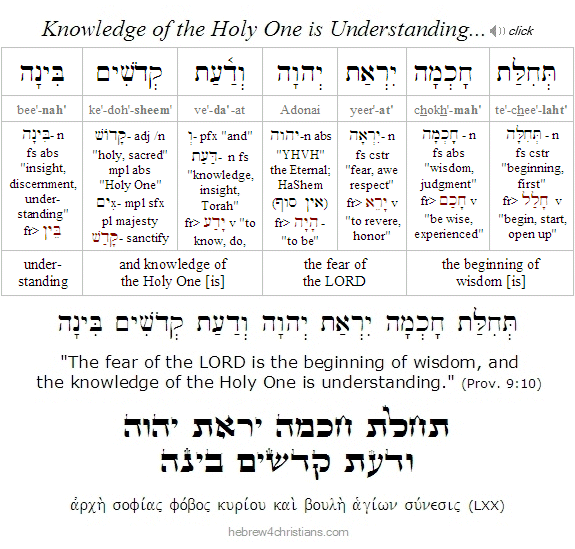 |
 |
Our Creator and Judge...

09.17.20 (Elul 28, 5780) During Rosh Hashanah we remember that God is our Creator and Judge, and both of these attributes refer to Yeshua our Lord and Savior. The New Testament identifies the Voice of the Creator as the all-powerful Word of God: בְּרֵאשִׁית הָיָה הַדָּבָר / "in the beginning was the Word" (John 1:1,14). Yeshua is the Source of all life in the universe: כָּל־הַמַּעֲשִׂים נִהְיוּ עַל־יָדוֹ / "All things were made by Him (John 1:3). The "Word made flesh" is the "image of the invisible God" and the "radiance of the glory of God and the exact imprint (χαρακτήρ, 'character') of his nature" (John 1:14, Col. 1:15). All of creation is being constantly upheld by the word of His power (Heb. 1:3): "All things were created by Him (i.e., Yeshua), and for Him" and in Him all things consist (συνεστηκεν, lit. "stick together") (Col. 1:16-17). Creation begins and ends with the redemptive love of God as manifested in the Person of Yeshua our Mashiach... He is the Center of Creation - it's beginning and end. As it is written: אָנכִי אָלֶף וְתָו רִאשׁוֹן וְאַחֲרוֹן ראשׁ וָסוֹף / "I am the 'Aleph' and the 'Tav,' the First and the Last, the Beginning and the End" (Rev. 22:13). Indeed, Yeshua is מֶלֶךְ מַלְכֵי הַמְּלָכִים / Melech Malchei Hamelachim: The "King of kings of kings." He is LORD of all possible worlds -- from the highest celestial glory to the dust of death upon a cross... יְהִי שֵׁם יהוה מְברָךְ / yehi shem Adonai mevorakh: "Let the Name of the LORD be blessed" forever (Psalm 113:2).
The greatest expression of God's word is found in the Presence of Yeshua. This is the Word of God that "tabernacles" with us, full of grace and truth (John 1:14). Yeshua is the "Living Torah," Immanuel (עִמָּנוּ אֵל), "God with us," who enters our world to rescue us from death. Our Scriptures state that "in these last days God has spoken to us by his Son, whom He appointed the Heir of all things, through whom also He created the worlds" (Heb 1:2). Note that the Greek construction for the phrase translated, "by his son" is ἐλάλησεν ἡμῖν ἐν υἱῷ, which literally means "he spoke to us in Son" -- that is, in the language or voice of the Son of God Himself... God speaks the language "of Son" from the midst of the fire revealed at Zion. "Therefore, since we are receiving a kingdom that cannot be shaken, let us be thankful, and so worship God acceptably with reverence and awe (μετὰ αἰδοῦς καὶ εὐλαβείας) - for our God is Esh Okhelah - a Consuming Fire" (Heb. 12:28-29).
Click for a Hebrew reading lesson:
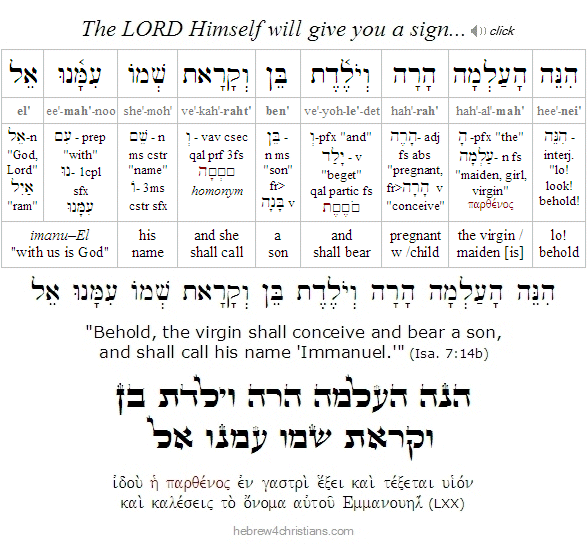 |
 |
Teshuvah of Messiah...

09.17.20 (Elul 28, 5780) "Repent, for the kingdom of heaven has drawn near" (Matt. 3:2). During this "season of teshuvah" (חודש תשובה) it is vital to understand exactly how we are to turn to God to find life. Some religious people understand "repentance" to mean focusing on themselves, lamenting their sins, and making resolutions to improve their behavior, though this is not the meaning of teshuvah ("repentance") as Yeshua taught, which is turning of the heart in trust of God's love and in the promise of newness of life (John 10:10,28). "It is no longer 'I' who live but Messiah who lives in me," which means we find life and righteousness in the LORD and not in ourselves -- neither in our resolutions to change, nor our religious rituals, nor even our acts of repentance (Titus 3:5). We are "crucified with" Messiah, and that means the self-life comes to an end (Col. 3:3). Regarding yourself as separated from God's acceptance will inevitably lead you to the "works of the law" and therefore to the "wheel of sin and death" -- and to despair.
Rightly understood, then, teshuvah cannot be separated from the salvation of the LORD (יְשׁוּעַת יְהוָה), nor can we disregard God's righteousness in the vain attempt to establish our own. Teshuvah receives the miracle of divine exchange: "For our sake he made Him to be sin who knew no sin, so that in Him we might become the righteousness of God" (2 Cor. 5:21). We do not "reject the grace of God" (Οὐκ ἀθετῶ τὴν χάριν τοῦ θεοῦ) by seeking justification apart from the truth and blessing of Messiah, for He is the one "who loves me and gave himself for me" (Gal. 2:20-21). The sickness of sin is lethal, and there is no remedy apart from turning to behold Yeshua, the "fiery serpent" lifted upon a stake, the One crucified for our deliverance (Num. 21:8; John 3:14; Gal. 3:13). The teshuvah of God is to turn away from yourself to behold the miracle of God's righteousness given for your sake, and therefore it is a matter of radical faith. "We had the sentence of death in ourselves, that we should not trust in ourselves, but in God who raises the dead" (2 Cor. 1:9). Amen, the verdict of the law condemns us, but God has given us a new covenant (בְּרִית חֲדָשָׁה) in Yeshua the Messiah, "not like the covenant that I made with the fathers on the day when I took them by the hand to bring them out of the land of Egypt" (Jer. 31:31-32), and by means of this new covenant the righteousness of God is given to the one who trusts in sacrificial death of Messiah given on their behalf. "Therefore, if anyone is in Messiah, he is briah chadashah (בְּרִיאָה חֲדָשָׁה), a new creation; the old has passed away; behold, the new has come" (2 Cor. 5:17).
We are told that we must "receive" the life of Yeshua into our hearts, and that is certainly true, but we must also receive his death as well... This is the meaning of "taking up your cross." It is the death of Yeshua in your place that releases you from the tochechah curse of the law (מִקִּלְלַת הַתּוֹרָה), that is, spiritual death, as it is says: "the Messiah has redeemed us from the curse of the law by becoming a curse for us, for it is written, "Cursed is everyone who is hanged on a tree" (Gal. 3:13).
The teshuvah of Yeshua is the miracle of new life; Messiah sets you free from the power of sin and death itself. The repentance of Yeshua is to trust in God's remedy for your sin: "This is the work of God, to believe in the One whom God sent" (John 6:29). "He saw that there was no man, and wondered that there was no one to intercede; then His own arm brought him salvation, and his righteousness upheld him" (Isa. 59:16). We must turn away from the idea that God demands anything from us other than trust in his love. "Truly, I say to you, unless you turn and become like children, you will never enter the kingdom of heaven" (Matt. 18:3). Stop trying to measure up to his standards. You simply cannot give more than you have the love to give, so you must begin by getting your heart needs met by accepting God's unconditional love. It's not about what you do for God, after all, but about what he does for you. That's the message of the gospel. Trust that you are rightly related to God because of the salvation of Yeshua, not because of your own efforts at self-improvement. "I tell you the solemn truth, the one who hears my message and believes the One who sent me has eternal life (חַיֵּי עוֹלָם) and will not be condemned, but has passed over (i.e., μετά + βαίνω, lit., "crossed over" [עָבַר]) from death to life" (John 5:24).
We must be careful not to worship an idol, that is, a false concept of God! It is possible to read the Bible, to go to church or synagogue, and yet worship a pagan god. How so? By not knowing the heart of the Father; by not honoring the One who passionately seeks our healing. We know the Father by the Son, that is, in "the language of Son" (Heb. 1:2; Luke 10:21-24). Our heavenly Father is eager to forgive and embrace all of his children. In Yeshua's famous parable of the "prodigal son," the father saw his child a "long way off" and ran to embrace and kiss him - no questions asked, no explanations needed about his past. When the son nevertheless began reciting his carefully prepared speech of repentance, the father barely listened, and in his overwhelming joy instructed his servants, 'Bring quickly the best robe, and put it on him, and put a ring on his hand, and shoes on his feet. And bring the fattened calf and kill it, and let us eat and celebrate. For this my son was dead, and is alive again; he was lost, and is found...' (Luke 15:20-25).
Click for a Hebrew reading lesson:
 |
 |
Weapon of Praise...

09.16.20 (Elul 27, 5780) Think counterculturally. Do not let your mind be conformed (lit., "squeezed into the mold") of this world, but be transformed (μεταμορφόω, i.e., metamorphosized like a caterpillar is changed into a butterfly) by the renewal of your mind (Rom. 12:2). The Greek word translated "renewal" is ἀνακαίνωσις, from ἀνά, meaning "up, into the midst," and καινός, meaning "newness." The idea here is that we are inwardly transfigured as we take hold of the truth of the new covenant and make it central to our lives. For this we must "put on the mind of Messiah" and repudiate the world's values and vain philosophies (1 Cor. 2:16). "When the devil is called the god of this world, it is not because he made it, but because people serve him with worldliness." The "god of this world" blinds the eyes of those who do not believe so they cannot see the truth of the gospel of Messiah (2 Cor. 4:4). The philosophy of this world is always based on lies, propaganda, fear, lust, pride, anger, appeals to vanity, and so on. We must use discernment and test the world's assumptions against the truth of the Scriptures.
The secret weapon of spiritual warfare is heartfelt praise offered up to God. When you are feeling oppressed or troubled, lift up your hands by using the powerful weapon of praise... Satan and the powers of darkness simply cannot stand before someone offering praise and thanks to the LORD for their personal deliverance. "As you call upon the LORD - the Blessed One who is worthy to be praised - so you shall be delivered from your enemies" (Psalm 18:3).
Click for a Hebrew reading lesson:
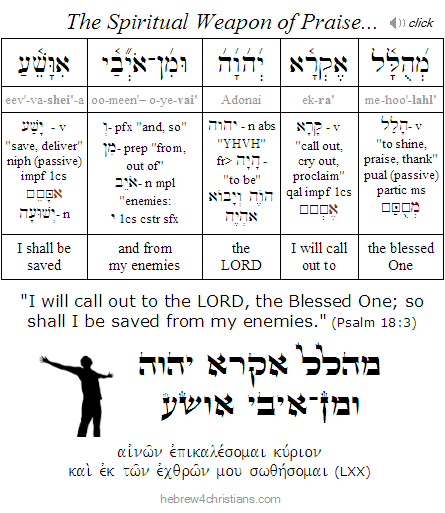 |
Download Study Card
Finding Real Treasure...
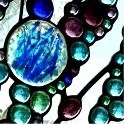
09.16.20 (Elul 27, 5780) Yeshua teaches us to earnestly seek for what really matters in life, to discover that which is best of all. He said, "The kingdom of heaven is like treasure hidden in a field, which a man found and covered up. Then in his joy he goes and sells all that he has and buys that field. Again, the kingdom of heaven is like a merchant in search of fine pearls, who, on finding one pearl of great value, went and sold all that he had and bought it" (Matt. 13:44-46). Here Yeshua illustrates that a relationship with God is the true source of joy and value in life, and that all other passions and desires are like "fools gold" when compared with its overwhelming worth... In this connection Soren Kierkegaard wrote: "If anyone thinks he is a Christian and yet is indifferent toward being that, then he really is not one at all. Indeed, what would we think of a person who gave assurances that he was in love and also that it was a matter of indifference to him?" (Works of Love). The Shema, the "first and greatest commandment," is to love God "bekhol levavkha" (בְּכָל־לְבָבְךָ) with all our hearts, and yet how is that love possible apart from the revelation of the passion of love itself? "We love because God first loves us" (1 John 4:19), and therefore teshuvah ("repentance") is a matter of being in love, celebrating God's heart for us, awakening to its wonder, and being thrilled and overjoyed at its reality. Isn't this the essence of the matter?
"Shimon ben Yonah, atah ohev oti?" – "Simon son of Jonah, do you love me?" (John 21:17). But how can we love the Lord apart from trusting his heart for us? "Come unto Me," Yeshua says, "live in Me and I will live in you" (John 15:1-5; Matt. 11:28-30). O Lord God our Savior, deliver us from apathy and indifference! Soften our hearts and awaken us to our great desire and need for you! Hashivenu, Adonai: turn us, O LORD, and we shall be turned; heal us, and we shall be healed... Help us to come to you and to know the breadth and length and height and depth of your great love for us (Eph. 3:18-19).
So for what do you hope, friend? What are your dreams? Your deepest desires? Where is your treasure? Yeshua cautioned those who sought their happiness in this world: "Do not store up for yourselves treasures on earth... be rich toward God" (Matt. 6:19-20; Luke 12:21). When we treasure God, our focus is directed toward the eternal reality, and our interest in this world is minimal. We trust God to meet our daily needs and surrender our future to His care. The only worry we face concerns our own deficiencies in our obligations to the Savior. Our duty is to love God in the truth - bekhol levavkha - with all our heart, having no thought of ourselves. Indeed, as I have mentioned before, self-denial means to quit thinking about yourself (from α-, "not," + ῥέω, "to speak") by focusing on God's love for you. As Simone Weil once said, "It is not my business to think about myself. My business is to think about God. It is for God to think about me." Amen; we are healed in His love for us.
מִי־לִי בַשָּׁמָיִם
וְעִמְּךָ לא־חָפַצְתִּי בָאָרֶץ
mee'-lee · va·shah·mah'·yeem
ve·ee·me·kha · loh-chah·fahtz'·tee · va·ah'·retz

"Whom have I in heaven but you?
And there is nothing on earth that I desire besides you."
(Psalm 73:25)

Hebrew Lesson
Psalm 73:25 Hebrew (click):
It is written in our Scriptures: "My child, if you receive my words and treasure up my commandments with you, making your ear attentive to wisdom and inclining your heart to understanding; yes, if you cry out for insight and raise your voice for understanding, if you seek it like silver and search for it as for hidden treasures, then you will understand the fear of the LORD (יראת יהוה) and find the knowledge of God (דעת אלהים). For the LORD gives wisdom; from his mouth come knowledge and understanding; he stores up sound wisdom for the upright; he is a shield to those who walk wholeheartedly before Him" (Prov. 2:1-7).
Hebrew Lesson
Proverbs 2:6 Hebrew (click):
The Spiritual Danger...
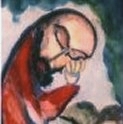
09.16.20 (Elul 27, 5780) In this world of constant flux, change, and invariable dissolution, is it realistic to expect perfection? Are not our expectations often romanticized notions of how we think things ought be rather than what they really are? Don't they often collide with the messy and unpredictable matters of life? The desire for elusive "perfection" leads to disillusionment and sorrow. Instead of gratefully accepting what we have, we ask "what if" or wonder about other possibilities that might bring us closer to our supposititious ideal.
The underlying assumption at work here is that everything should (or must) cohere with our desires and wishes. The doctrine that life should follow our own script not only leads to disappointment, however, but actually constitutes a form of idolatry. We must do teshuvah by revising our unrealistic expectations. Instead of seeking the "good life" in this dying world, we must turn to face reality by acknowledging the pervasive brokenness of the world. If we refuse to let go of our demand for personal happiness we will eventually be shattered and go on to blame God for our troubles. We may suspect that our suffering is a sign of God's disapproval or rejection; we may begin to question whether God will ever heal us, give us his blessing, and so on. We must remember that God's promises were never intended to give comfort to those who seek life and contentment in this world, or even to those who simply want a "happy ending" to a life of relative ease... No, the message of hope is delivered to those who have "ears to hear and eyes to see" - that is, to those who know they are dying, that life is beyond their control, and who understand their great need for divine intervention. Far from being a sign of God's abandonment, our suffering indicates God's near presence and the call to find eternal life in Yeshua our Savior...
משׁמרים הבלי־שׁוא
חסדם יעזבו
me·sha·me·reem · hav·lei-shav
chas·dahm · ya·a·zo'·voo

"Those who cling to lying vanities
abandon their own mercy." (Jonah 2:8)

Click to listen and learn the Hebrew text:
"There appear to be many people who chose to go crazy (or become alcoholics, addicts, criminals, suicides) rather than have to bear the pain and ambiguity of a life situation that they have decided that they cannot stand" (Sheldon Kopp). Like Jonah we first must be "swallowed up" in the consciousness that we are undone and without remedy apart from God's direct intervention and deliverance. עָקב הַלֵּב מִכּל וְאָנֻשׁ הוּא מִי יֵדָעֶנּו (Jer. 17:9). We start there - in the "belly of the fish" - and later are resurrected to go forth by God's mercy and grace. Likewise we first see ourselves as dying and go to the cross, finding pardon and given the power of the ruach HaKodesh to live unto God according to the truth.
Click for a Hebrew reading lesson:
Return to Sanity...
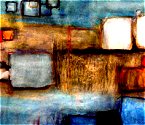
09.15.20 (Elul 26, 5780) "Hear, O heavens, and give ear, O earth: for the LORD hath spoken, I have nourished and brought up children, and they have rebelled against me.... Ah, sinful nation, a people laden with iniquity, offspring of evildoers, children who deal corruptly! They have forsaken the LORD, they have despised the Holy One of Israel, they are utterly estranged. Why will you still be struck down? Why will you continue to rebel? The whole head is sick, and the whole heart faint. From the sole of the foot even to the head, there is no soundness in it, but bruises and sores and raw wounds... Your country lies desolate; your cities are burned with fire; in your very presence foreigners devour your land; it is desolate, as overthrown by foreigners...." (Isa. 1:2-7).
Jeremiah the prophet cried out on behalf of God: "Hear this, O foolish and senseless people, who have eyes, but see not, who have ears, but hear not. Do you not fear me? declares the LORD. Do you not tremble before me? Therefore "hear, O earth; behold, I am bringing disaster upon this people, the fruit of their devices, because they have not paid attention to my words; and as for my Torah, they have rejected it" (Jer. 5:21-25).
Repentance is a return to sanity which begins with the resolution to question your presuppositions and to change your thinking... There are three requirements for genuine repentance, that is, for turning to God in the truth, namely: 1) seeing eyes; 2) hearing ears; and 3) an understanding heart, ready to be healed (see Isa. 6:10). God alone does the miracle but it is nevertheless our responsibility to believe that the miracle is personally for us. Repentance is the first step of salvation, as Messiah said: "Repent and believe in the good news" (Mark 1:15), and apart from repentance man has no real existence. As Yeshua said, "Truly, truly, I say to you, unless one is born again he cannot see the kingdom of God" (John 3:3). Repentance is the expression of trust in God's love, and by means of it we affirm: "I am ready to exist as a person of worth." Come alive, friends!
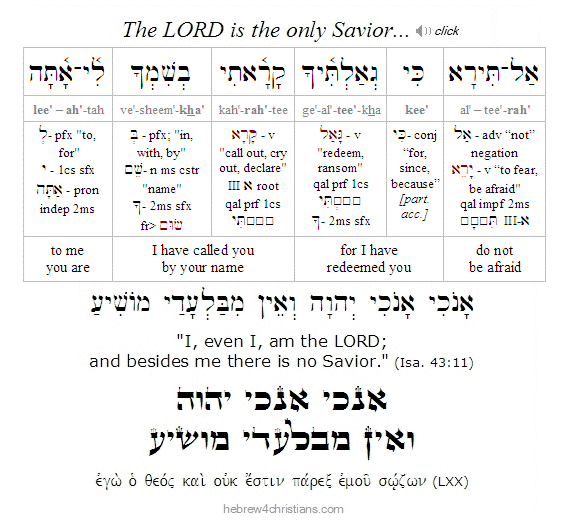 |
 |
Turning as a Child...
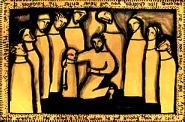
09.15.20 (Elul 26, 5780) There is no teshuvah (repentance) apart from humility (Matt. 5:5). The disciples of Yeshua came asking, "Who is the greatest in the kingdom of heaven?" And calling to him a child, he put him in the midst of them and said, "Truly, I say to you, unless you turn (shuv) and become like children (להְיוֹת כַּיְלָדִים), you will never enter the kingdom of heaven" (Matt. 18:2-3). Said the Kotzer Rebbe, "It is proper to weep during the High Holy Days in order to show that despite all our seeming wisdom and learning, we are as helpless as little children who weep for what they desire." "I thank you, Father, Lord of heaven and earth, that you have hidden these things from the wise and understanding and revealed them to little children; yes, Father, for such was your gracious will" (Matt 11:25-26).
Click for a Hebrew reading lesson:
Rosh Hashanah Seder...

09.15.20 (Elul 26, 5780) Though there are technically four "New Year Days" on the Jewish calendar, two are most widely recognized: the New Year of spring (i.e., Nisan 1 and the time of Passover) and the new year of fall (i.e., Tishri 1, the time of the High Holidays). The New Year celebration of the fall begins before sundown, just before the start of Tishri 1 (this year, Friday, September 18th). The main event consists of a special simcha (festive) meal, somewhat similar to a Friday evening Shabbat meal, with the addition of some special food, blessings, and listening to the shofar blast. The celebration begins with the lighting of candles (symbolizing the transition from profane to sacred time) and the special blessing thanking God for enabling us to reach this season (i.e., the Shehecheyanu).

After starting the celebration, ritual "appetizers" called simanim (סִימָנִים) are often served. These are symbolic foods used as an occasion to offer first blessings for the New Year. Traditionally we eat round challah to remind us that life is a circle (a cycle of seasons) and also to remind us of the Kingship (Crown) of God; we taste apples dipped in honey as a token of our wish for a sweet year, and so on. We also eat some specialized foods just for Rosh Hashanah. For example, we eat leeks, called karsi in Aramaic, as a play on the Hebrew word karat - to cut down - i.e., "may our enemies be cut down." We also eat pomegranates to remind us of the sweetness of the Torah and to remember God's commandments, and so on. Doing all this adds fun to the occasion and helps us sanctify the main meal. After finishing dinner, we are ready for the climatic event of the evening: the sounding of the shofar!
To make it easier for you to participate, I have created an "Easy Rosh Hashanah Seder Guide" that includes step-by-step procedures for holding your own Rosh Hashanah home celebration. The Seder Guide includes English transliterations along with the basic Hebrew blessings, so now everyone can join in! Celebrating Rosh Hashanah is both joyous and spiritually significant, especially from a prophetic perspective. I hope you find this helpful, chaverim. L'Shanah tovah u'metuka b'Yeshua - "to a good and sweet year in Yeshua!"
Note: Regarding observing the holidays, always remember that what most important is not rituals based on tradition, nor even getting the date and time exactly right, but understanding the prophetic significance of the holiday and learning more about how it reveals the glory of Yeshua. It does the soul no good -- and the LORD God surely isn't impressed -- if you're 100% kosher and keep all the holidays down to the exact minute but have a hard heart that is proud or that doesn't understand God's desire to save a lost and dying world.
Wounded Healers...
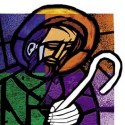
09.14.20 (Elul 25, 5780) No one escapes suffering in this life, and therefore it is senseless to pretend to hide or deny our troubles. We are likened to "jars of clay," fragile and easily broken vessels that hold the truth of salvation; we are mere dust held together by the sustaining power and glory of God. Our frailty is intended to reveal God's sufficiency and strength: "But we have this treasure in jars of clay, to show that the surpassing power belongs to God and not to us" (2 Cor. 4:7). In light of this, the only meaningful question is how our woundedness and vulnerability may be used to strengthen others (2 Cor. 1:4). The "surpassing power belongs to God and not to us" means that God keeps us continually dependent upon himself; we have nothing at our own command; God alone is our strength.
Click for a Hebrew reading lesson:
 |
I wonder how often, when I pray from my heart, yearning in my sorrowful unknowing, reaching for utterance in my emptiness, that God sees past my momentary struggle to behold who I really am - despite myself - by means of his grace. What are words but disguised groans, sighs, and lament? And when there's nothing left to say -- silence -- being in the presence of God, quietly surrendered to everything, to my own inner contradictions, to my hopes and to my fears, to my delights and my disappointments, when all is abandoned - I forget myself in peace because everything I am or ever will be is laid out, nothing hidden, before Him. I am no longer fighting, struggling, angling, reasoning, or desiring anything other than just to be there, just as I am, a broken soul in need of my heavenly Father's love...
Blessing of Self-Forgetfulness...

09.14.20 (Elul 25, 5780) Surely the self is the prison that binds the soul... And he said to all, "If anyone would come after me, he must deny himself (ἀρνησάσθω ἑαυτὸν), take up his cross daily, and follow me. For whoever would save his life will lose it, but whoever loses his life for my sake will save it" (Luke 9:23-24). Note that the Greek verb translated "deny" in this verse means to forget yourself, or to quit thinking about yourself (from α-, "not," +ῥέω, "to speak"). Rather than simply abstaining from your carnal desires, then, denying yourself really means joyful self-forgetfulness. You are set free from the clamor of the self because your heart is focused on something so much greater and wonderful....
In light of this, we must soberly assess how much of our suffering is caused because the self, or the ego, simply refuses to let go and die? How much pain is produced because we "remember" ourselves, we think of ourselves first, we put our fear of loss or our desire for comfort above everything else? Is not such selfishness the essence of sin? Yeshua tells us to take up the cross and die daily because that which is dead no longer suffers from ambivalence and selfish inner conflict... There are no "half-measures" in this approach to life. If we truly take up the cross and die to ourselves, our struggle with the flesh would be over. All spiritual truth leads us to this place, to the constant practice of dying to the flesh. The pain we sometimes feel is from the flesh that still clings to this life.
When you live each day as if it might be your last, the fear of the future fades away and you are free to live at peace in the moment. Therefore Yeshua taught us: "Don't be anxious about tomorrow, for tomorrow has its own troubles. Live one day at a time" (Matt. 6:34). Kierkegaard comments: "If there is no next day for you, then all earthly care is annihilated. When the next day comes, it loses its enchantment and its disquieting insecurity. If there is no next day for you, then either you are dying or you are one who by dying to temporality has grasped the Eternal, either one who is actually dying or one who is really living."
We need courage to let go and trust. "Do you fear that He may not be able to supply from Himself that help which He may have taken away on a human level? And why does He take human help away, except to supply you with Himself?" (Francois Fenelon). God has to remove all that we rely upon other than Himself so that we understand that He alone is all we need. As Kierkegaard also wrote, "It is terrifying when God takes out the instruments for the surgery for which no human being has the strength: to take away a person's human zest for life, to slay him – in order that he can live as one who has died to the world and to the flesh. It cannot be otherwise, for in no other way can a human being love God..." May it please the LORD to help us deny ourselves and take up the cross daily... Amen.
Click for a Hebrew reading lesson:
 |
Torah for Rosh Hashanah...
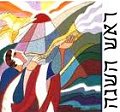
[ The holiday of Rosh Hashanah (Teruah) begins Friday September 18th at sundown... ]
09.13.20 (Elul 24, 5780) Shalom Chaverim. The weekly Torah reading is suspended for Rosh Hashanah this year since the holiday falls on the Sabbath (the last time this happened was back in 2020). However we will read some passages in honor of the holiday: The Torah portion for the first day of Rosh Hashanah is about the birth of Isaac (Gen. 21:1-34), and the portion for the second day is on the Akedah, or the binding of Isaac (Gen. 22:1-22:24), both of which foreshadow Yeshua as the great Lamb of God. We also will take time to reflect on God's Kingship, the Day of Judgment of to come, and heed the call of the shofar to usher in the Messianic Kingdom at the end of days. As with all the Torah holidays, Rosh Hashanah (i.e., Yom Teruah) centers on Yeshua our Messiah, the Great Lamb of God and the true Judge over all. Shavuah tov, and happy holidays, friends.
The Prophetic Calendar...
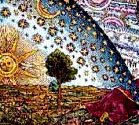
[ The godless world scoffs at the idea of judgment from heaven, but that is precisely the judgment itself - to be consigned to the tyranny of your own desires, to be "given over" to your own will... ]
09.13.20 (Elul 24, 5780) The spring festivals (i.e., Passover, Firstfruits, and Shavuot) have been perfectly fulfilled in the first coming of Yeshua as Mashiach ben Yosef, and the fall festivals (Teruah, Yom Kippur, and Sukkot) will be fulfilled in His second coming as Mashiach ben David. Since the first advent fulfilled all of the spring mo'edim to the smallest of details, we believe that His second advent portends similar fulfillment as revealed in the fall mo'edim.
After the summer of harvest (John 4:35), the very first fall festival on the Jewish calendar is Yom Teruah (יוֹם תְּרוּעָה), which is a picture of the "catching away" of kallat Mashiach (the Bride of Messiah) for the time of Sheva Berachot (the seven "days" of blessing that follows the traditional marriage ceremony). Then will come the Great Tribulation and Yom Adonai - the Day of the LORD (יוֹם יְהוָה). The heavenly shofar blasts heard at Sinai will be reissued from Zion. First will be the gathering together of those who follow the Messiah (i.e., those declared tzaddikim because they trust in the merit of Yeshua's sacrifice), and then God's war against Satan and the world system will begin, culminating in the long-awaited coronation of the King of King of Kings - Melech Malchei Ha-Melachim (מֶלֶךְ מַלְכֵי הַמְּלָכִים).
Rosh Hashanah (or better, Yom Teruah) is therefore a sacred time that has prophetic significance for the Messianic believer, since it commemorates both the creation of the mankind by Adonai as well as the "calling up" of the new creation at the behest of Yeshua, when the sound of the heavenly shofar inaugurates the anticipated End of Days (1 Cor. 15:51-54; 1 Thess. 4:15-18). Indeed, "teruah" (תְּרוּעָה) is a "calling up" signal for those who belong to Messiah, sounded during the opening of the "Gate to the Wedding" of the great Lamb of God. It also prefigures the coming Day of the LORD and Great Tribulation period that marks God's judgment on an unbelieving world...
In this connection note that Kierkegaard foresaw the apostasy of our age when he wrote: "A fire broke out backstage in a theater. The clown came out to warn the public; they thought it was a joke and applauded. He repeated it; the acclaim was even greater. .. that's just how the world will come to an end: to general applause from wits who believe it's a joke."
Click for a Hebrew reading lesson:
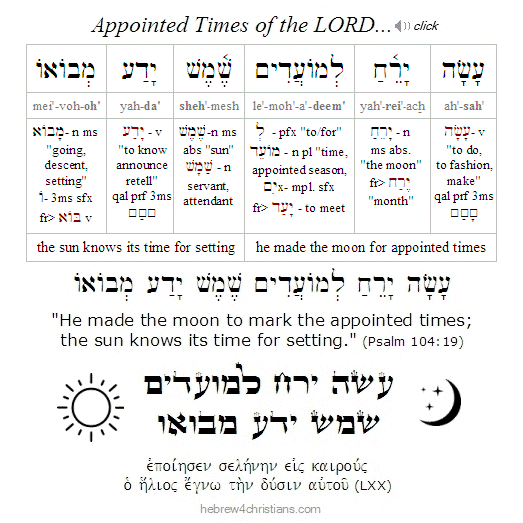 |
Note: For more on this fundamental topic, see "Introduction to the Jewish Calendar."
End to our Exile...
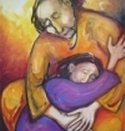
09.11.20 (Elul 22, 5780) In our Torah for this week (i.e., Nitzavim), we read: "The LORD your God will return as you return, and will have mercy upon you, turning to gather you back..." (Deut 30:3). This has both a present and prophetic application. First, in the present hour, if you turn to God, he will show you compassion, and he will "gather back" all those distant and fragmented parts of yourself into shalom and wholeness. He will restore your lost days; he will bring you out of exile and give you comfort in Yeshua. He makes all things new. "Draw near, therefore to God, and he will draw near to you" (James 4:8).
Second, the LORD will return to earth as the Jewish people return from their captivity, and he will restore Zion during the time of the final redemption. The LORD will turn captivity into mercy; he will turn in his compassion to his people. As it is written: "I will be found by you, declares the LORD... and I will bring you back..." (Jer. 29:14).
 |
The language of the Torah here is emphatic: "even if your exile is at the farthest edge of heaven (בִּקְצֵה הַשָּׁמָיִם), from there the LORD your God will gather you..." (Deut. 30:4). Note that this prophecy is written in the singular and therefore pertains to each individual exile. God will "gather you," that is, he bring you back to make you whole. Even if your exile (singular) is to the uttermost, the LORD will take you and deliver you, as it is written, "He is able to save to the uttermost (σῴζειν εἰς τὸ παντελὲς) those who draw near to God through him, since he always lives to make intercession for them" (Heb. 7:25). We are close to the end now, waiting for our Lord to come take us home, in whatever way he chooses.
As a child of God you are destined for unimaginable beauty and glory... "All things work together for your ultimate good"; there is a future and hope reserved for you. Nothing can thwart God's overmastering providence and purposes for your blessing in Yeshua our Lord. Amen, one day soon you will forget all your miseries and be engulfed in great joy!
Click for a Hebrew reading lesson:
"Remember not the former things, nor consider the things of old. Behold, I am doing a new thing; now it springs forth, do you not perceive it?" (Isa. 43:18-19).
Our Daily Teshuvah...

[ The following is related to the High Holidays and the "Season of Repentance"... ]
09.11.20 (Elul 22, 5780) Teshuvah ("repentance") is described as "turning" to God, though practically speaking it is a repeated turning, that is, a turning to God in the moment of ambiguity, pain, distress... It is in the midst of the ego's clamor, before the parade of worldly desire or pressure, in the crucible of "everydayness" that we must "come to ourselves" and find true wonder. In that sense, teshuvah is a sort of focus, a direction, a seeking, and a center of life, the place of constant repair for the inner breach we constantly feel.
The question may be asked, however, whether you really want God - the Living God - to be intimately present in your life. "Repentance means unlearning all the self-conceit and self-will that we have been training ourselves into... It means killing part of yourself, undergoing a kind of death" (C.S. Lewis). Indeed, "nothing is more certain: coming close to God brings certain catastrophe [to the ego]. Everyone whose life does not bring relative catastrophe has never even once turned as a single individual to God; it is just as impossible as it is to touch the conductors of a generator without getting a shock" (Soren Kierkegaard).
Repent one day before you die... "In eternity you will not be asked how large a fortune you are leaving behind - the survivors ask about that. Nor will you be asked about how many battles you won, about how sagacious you were, how powerful your influence - that, after all, becomes your reputation for posterity. No, eternity will not ask about what worldly goods remain behind you, but about what riches you have gathered in heaven. It will ask you about how often you have conquered your own thought, about what control you have exercised over yourself or whether you have been a slave, about how often you have mastered yourself in self-denial or whether you have never done so" (Kierkegaard).
Just as God humbled Israel with manna in the desert, so He humbles us. "Give us this day our daily bread and deliver us..." The purpose of affliction is ultimately good and healing: God humbles us with manna, the "bread of affliction, so "that he might make you know that man does not live by bread alone, but man lives by every word that comes from the mouth of the LORD" (Deut. 8:3). In other words, God uses tzuris to lead us to do teshuvah and accept the truth. We often pray that our problems be taken away, but God sometimes ordains these very problems so that we will turn and draw near to Him... We are being weaned from this present age to be made ready for heavenly glory, for things unimaginably wonderful, soon to be revealed to you. Chazak – stay strong in the Lord, friends.
Click for a Hebrew reading lesson:
 |
Divine Absence and Teshuvah...

09.11.20 (Elul 22, 5780) From our Torah reading this week (i.e., Vayeilech) the LORD foretold Moses' death and the people's subsequent apostasy from the faith: "This people will rise and whore after the foreign gods among them in the land that they are entering, and they will forsake me and break my covenant that I have made with them" (Deut. 31:16). The Lord then continued: "And then my anger will be kindled against them in that day, and I will forsake them and hide my face from them, and they will be devoured.... And I will surely hide my face in that day because of all the evil that they have done, because they have turned to other gods" (Deut. 31:17-18).
The phrase hester panim (הֶסְתֵר פָּנִים) means "hiding of the face." It is often used when discussing the Book of Esther, where God's Name isn't mentioned even once, yet the hidden Presence is realized in the outcome of the story. In this sense of the term, hester panim is somewhat like the sun on an overcast day: Just because you don't see it doesn't mean it isn't there. God's providential care for us is at work at all times, whether we perceive it or not.
Unlike the happier thought that hester panim refers to God's hidden providence for good, in some cases hester panim refers to the terrifying prospect of the withdrawal of the Divine Presence itself. God "hides His face" from us because our own desire for evil blinds us to the truth of His Presence. Hester panim therefore is not only "absence of Divine Presence," but "presence of Divine Absence." In other words, sin and selfishness causes the Divine Presence to remove from us, but that is precisely because we remove ourselves from Him. "I will hide... because you have turned..." The distance is therefore reciprocal: Selfishness turns God away from us and turns us away from God.
In difficult moments, many people cynically ask, "Where's God?" and yet they have no intention of turning from sin to seek the Divine Presence. They are quick to judge the Divine Absence as an excuse for the return to selfishness. This "hardening of the heart" leads to ever-increasing spiritual darkness and confusion... Finally the line is crossed and they become unable to turn away, unable not to sin (non posse non peccare). They are consigned to a frightful state: "God gave them up to a debased mind (αδοκιμον νουν) to do what ought not to be done" (Rom. 1:28).
People tend to blame God for the Divine Absence yet forget that God "hides His face" from those who elevate selfish desire over all other things... "Whoring after other gods" is nothing more than perverse self-exaltation, stubborn self-worship, and the incessant return to yourself as the object of ultimate concern in life.... This profound despair form is truly the "sickness unto death."
These are not happy thoughts, chaverim. In some tragic cases, the disease "reaches term" and the person actually dies. The "hiding of face" is then forever sealed. Since we have hidden our face from Him, God has hidden His face from us. God forbid that this should be anyone's ultimate spiritual destiny....
Is there a redemptive side to all of this? Yes of course. In some cases God "turns away" from us in order to afflict us and understand our need to return to Him, as it is written: "It was good for me that I was afflicted, that I might learn Your statues" (Psalm 119:71). The sense of "Divine Absence" can be a gift that helps us seek the Divine Presence: "Draw near to God, and he will draw near to you" (James 4:8). The "dark night of the soul" can be a means of leading us to godly sorrow that leads to life (2 Cor. 7:10).
In keeping with the Days of Awe and the call to do teshuvah shelmah (a complete repentance), then, let us "wait for the LORD, who is hiding his face from the house of Jacob, and hope in him" (Isa. 8:17). Wishing you teshuvah shlemah be'ahavat Yeshua - "A complete turning in the love of Jesus." Amen.
Click for a Hebrew reading lesson:
 |
Teshuvah of Seeking...
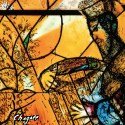
09.11.20 (Elul 22, 5780) In this week's Torah portion (i.e., parashat Vayeilech), Moses announced his impending death and transferred the leadership of the Jewish nation to Joshua (יְהוֹשֻׁעַ), a type of Messiah who would bring Israel into the promised land. Moses continued his speech, and foresaw that despite his appeals the people would turn away from the covenant, which would cause God's face to turn away: "And hiding I will hide My face on that day, because of all the evil they have committed" (Deut. 31:18). The sages note this verse is grammatically unusual because of the double use of the word "hide" (i.e., הַסְתֵּר אַסְתִּיר פָּנַי). God hides the fact that He is in hiding... If you do not know that God is "hiding," you will not seek for Him; and if you feel within your heart that God is hiding, you are invited to return to Him, as King David said, "For you have said to my heart, 'Seek my face;' and my heart has said to You, 'Your face, O LORD, will I seek.'
לְךָ אָמַר לִבִּי בַּקְּשׁוּ פָנָי
אֶת־פָּנֶיךָ יְהוָה אֲבַקֵּשׁ
le·kha · a·mar · lee·bee · ba·ke·shoo · fa·nai
et-pa·ney'·kha · Adonai · a·va·keish

For you have said to my heart, 'Seek my face;'
and my heart has said, 'Your face, O LORD, will I seek.'
(Psalm 27:8)
Click to listen and learn the Hebrew text:
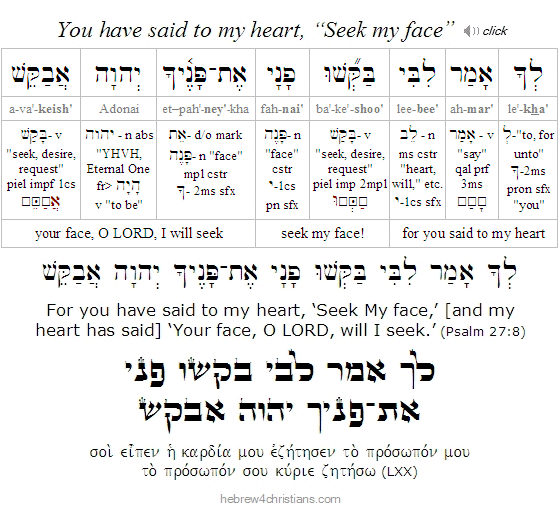
In this connection we note that Yeshua often spoke in the form of a parable (παραβολή) to "code" his meaning, to make it accessible only to those who were genuinely willing to make comparisons, to reason analogically, and so on (Isa. 1:18; 1 Cor. 2:13). He used "indirection," allusion, allegory, and "figures of speech" (παροιμία, lit. "[speech] beyond the usual way"), in order to provoke people to explore and ask the hard questions about life... "Truly, you are a God who hides himself, O God of Israel, the Savior" (Isa. 45:15).
"For God so loved the world" that He disguised himself as a bondservant to die in shame upon a cross; "God so loved the world" that he became entirely unesteemed -- "despised and rejected of men, a man of sorrows, acquainted with grief" (Isa. 53:3). Yet even Moses foresaw the stupor of the people in relation to the truth of God (Deut. 29:4). Regarding the "hiding of face," in His sovereign judgment God decreed: "They know not, nor do they discern, for he has smeared their eyes so that they cannot see, and their hearts, so that they cannot understand" (Isa. 44:18). God "gave them over to their stubborn hearts, to follow their own devices" (Psalm 81:12; Rom. 1:24); they went "backward and not forward" (Jer. 7:24). This was not a blindness induced by the "god of this world" as much as it was a darkness induced by the flesh and its apathy toward God. The mind became dull and sleepy because it ceased to believe in the miracle - and to realize that God's truth is always something extraordinary, spectacular, and wonderful...
 |
Teshuvah's Confession...

09.11.20 (Elul 22, 5780) From our Torah portion this week we read: "The word is very near you; it is in your mouth and in your heart, so that you can do it" (Deut. 30: 14). What "word" is this other than the confession of faith in the LORD? Faith is the key, since it responds to God's voice and receives the message of hope within the heart... Faith is a matter of the will: of choosing to receive the blessing, accepting that you are accepted, and trusting God's passion for your life. "Consider Abraham; he believed God and it was credited to him as righteousness" (Gal. 3:6). Faith itself is the obedience of Torah, the necessary precondition for all that follows. "I am the LORD your God" (אָנכִי יְהוָה אֱלהֶיךָ) is the very First Commandment. When we turn to the LORD, we esteem him as truthful, just, wise, compassionate, and worthy of our trust. "Let us then with confidence (μετὰ παρρησίας) draw near to the throne of grace (כִּסֵּא הֶחָסֶד), that we may receive mercy and find grace to help in time of need" (Heb. 4:16). Faith is teshuvah's confession of the reality of love...
The students of the maggid of Zlotchov once asked him, "In the Torah we read that our father Abraham kept all the laws (Gen. 26:5), but how could this be, since they had not yet been given to him?" The maggid replied, "All that is needed is to love God. If you are about to do something and you think it might lessen your love, then you know it's a sin; but if you think it will increase your love, then you know it's in keeping with God's will. That's what Abraham did." Amen. Faith is the confession of God's love. Abraham was justified by faith because he trusted in God's love more than anything else, and that is the essence of Torah. "Now abide faith, hope, love, these three, but the greatest of these is love" (1 Cor. 13:13).
Click for a Hebrew reading lesson:
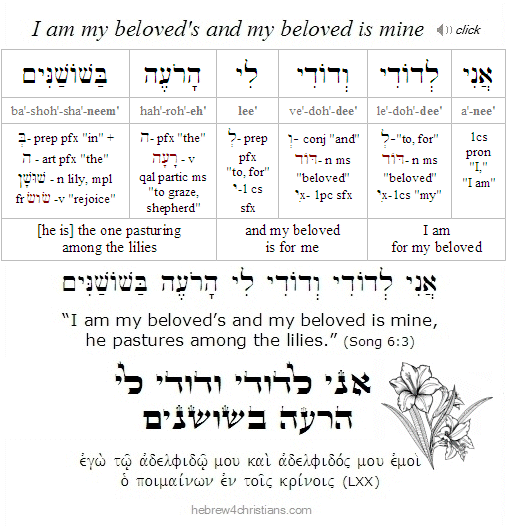 |
 |
The Wisdom of Teshuvah...

09.11.20 (Elul 22, 5780) It is written in Kohelet: הֶחָכָם עֵינָיו בְּראשׁוֹ - "the wise person's eyes are in his head," וְהַכְּסִיל בַּחשֶׁךְ הוֹלֵךְ- "but the foolish person walks in darkness" (Eccl. 2:14). The sages here comment that the wise one always looks to the Divine Presence, taking heed to "know what is above: a seeing eye, a listening ear, and all your deeds being inscribed in a book" (Avot 2:1). The wise person keeps God in his thoughts and the light of Truth illuminates his understanding. This is the way of teshuvah – turning our affections and thoughts heavenward at all times. Our Torah portion this week (Nitzavim) says, "You are standing this day before the Lord your God" (Deut. 29:10), and therefore may we know before Whom we stand and may we be filled with the light of divine truth. Amen.
זָרַח בַּחשֶׁךְ אוֹר לַיְשָׁרִים
חַנּוּן וְרַחוּם וְצַדִּיק
za·rach · ba·cho·shekh · ohr · lai·sha·reem
cha·noon · ve·ra·choom · ve·tza·deek

"Light dawns in the darkness for the upright;
He is gracious, merciful, and righteous." (Psalm 112:4)
Hebrew Study Card

Click to listen and learn the Hebrew text:
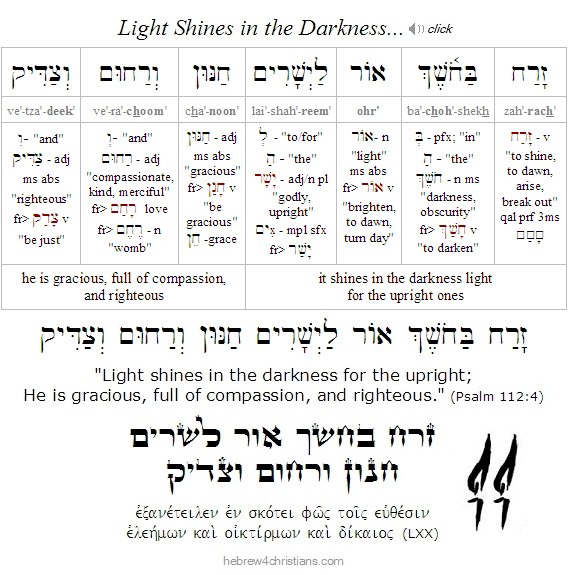
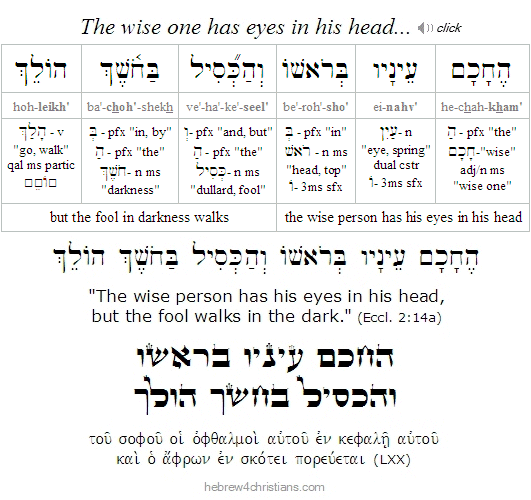
The Book of Life...
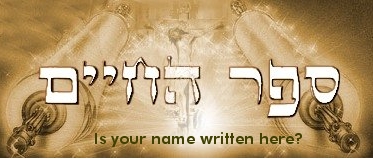
09.11.20 (Elul 22, 5780) The Scriptures teach that every word we speak and every choice we make are infallibly recorded in "heavenly scrolls," and one day these scrolls will be opened as a testimony about what we did with our lives (Dan. 7:10; Matt. 12:36-37; 1 Cor. 3:13, 4:5). "And I saw the dead, both the great and the small, standing before the throne, and books were opened. Then another book (סֵפֶר אַחֵר) was opened, which is called the Book of Life (סֵפֶר הַחַיִּים). And the dead were judged by what was written in the books, according to what they had done" (Rev. 20:12).
In this vision of the great day of judgment to come, notice that there was "another book" opened during the judgment called the "Book of Life," and later we learn that only those whose names were found written in this book would be granted access to the glories of the heavenly Jerusalem (Rev. 21:27). But what is this book and how can our names be inscribed in it so that we can partake of the future glory?
The Lamb's Book of Life (סֵפֶר הַחַיִּים אֲשֶׁר לַשֶּׂה) refers to "the record" (i.e., the words and deeds) of Yeshua our Messiah, the true Lamb of God, and therefore the book represents the final attestation - or "sworn testimony" - of the worthiness of God's own righteousness and salvation. In the great plan of God's salvation for the world, Yeshua was "born to die" as our atoning sacrifice for sin (Heb. 10:7-5). "God made the one who did not know sin to be sin for us, so that in him (ἐν αὐτῷ) we would become the righteousness of God" (2 Cor. 5:21). But note that we must be "in him," that is, fully identified with Yeshua so that his sacrificial death becomes counted as our own... Our identification in him means that our sin is "imputed" to his suffering and death upon the cross, just as his righteousness is "imputed" to us through the vindication of his resurrection. This is the essence of the "korban principle" of "life-for-life" - the innocent sacrificed for the guilty - that was the foundation of the sacrificial system of the Temple. By faith, the substitutionary death of Yeshua is "for you."
"Those who feared the LORD spoke with one another. The LORD paid attention and heard them, and a book of remembrance was written before him of those who feared the LORD and esteemed his name. "They shall be mine, says the LORD of hosts, in the day when I make up my treasured possession, and I will spare them as a man spares his son who serves him. Then once more you shall see the distinction between the righteous and the wicked, between one who serves God and one who does not serve him" (Mal. 3:16-18).
Click for a Hebrew reading lesson:
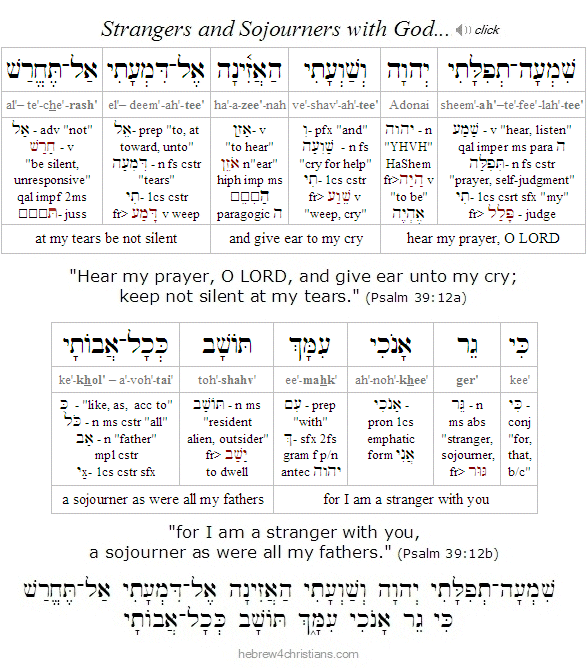 |
Hebrew Study Card Download
Note: For more see, "The Book of Life: Finding your name in the pages of redemption."
Celebrate God's Love...
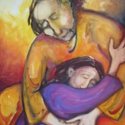
09.10.20 (Elul 21, 5780) Yeshua said the kingdom of heaven could be likened to a king who gave a wedding feast for his beloved son. Those who were invited made one excuse after another why they could not attend, so the disappointed king then instructed his servants to "go out quickly to the streets and lanes of the city, and bring in the poor and crippled and blind and lame... and compel everyone you find to come in, so my house may be filled." God loves people and implores them to personally join in the celebration of his love, to partake of the marriage feast of Lamb (Rev. 19:7). But note that this means that we are to bring all the lame, broken, and fearful parts of ourselves to the banqueting table of God's love... The courage to "come to the table" only comes from a sense of being welcomed and accepted, that is, by trusting that you are truly made safe by God's love....
Perhaps we are afraid of God's love for us because we've experienced rejection or abandonment in our lives. We may silently wonder, "What if God lets me down and I get hurt again?" We prefer the "comfort" of our fears to the risk of letting go and trusting in God's love for us, just as we are... This fear shows up in a lot of ways, for instance, by thinking we have to be "religious," or by attempting to "heal ourselves" before we can accept God's love. On the other hand, we might entertain a sense of false humility that considers our sin to be too much for God to bear, and thereby excuse ourselves from the celebration.... In every case the problem is the need to control. We want to define the terms of love before we will let go and trust. We are offended at the idea of divine grace because we want to esteem ourselves as worthy of God's love based on who we are, rather than on who God is... The message of God's love, however, is scandalous, precisely because it gives wholeheartedly to those who are undeserving and unworthy, to the tax collectors, the sinners, the crippled and blind and lame... Thank God for "Jesus, the friend of sinners..."
Click for a Hebrew reading lesson:
 |
Theology and the Greek Mindset...

09.10.20 (Elul 21, 5780) The problem with attempting to understand the "Greek mindset" is twofold: 1) it is so all-pervasive that it lies below the threshold of our daily assumptions, and 2) ironically, the very attempt to define it is a function of the Greek mindset itself....
To begin to understand some of this, we need to go back to ancient Greece and appreciate its tremendous influence in western intellectual history. The modern university, for example, was modeled after the ideals of Plato's Academy in which (it was hoped) the entire "universe" would be explained within its halls. For Plato (428-348 BCE), this meant apprehending unchanging universals (εἶδος, forms, ideas) that were believed to be revealed to the rational intellect through a process of "dialectical abstraction." The everyday world of particulars is always in a state of flux. Inferences regarding its objects are really just opinions based on sensations. The "real world" is the supra-sensible realm of ideals, and inferences regarding these objects constitute true and abiding knowledge (ἐπιστήμη). The highest of all ideals is that of "the Good," the transcendent source of all value in the universe.
Most of western thought -- including ideas about language and logic, natural science, mathematics, ethics, jurisprudence, politics, aesthetics, theology, and so on, draws from this tradition, and much has been subconsciously adopted into the educational technologies of the west for thousands of years. So enormous has been the influence of Plato that Alfred North Whitehead once remarked that "the safest general characterization of the European philosophical tradition is that it consists of a series of footnotes to Plato" (Process and Reality). And since the early Roman church was led by orators and others schooled in classical Greek thought (i.e., Hellenism), many of the basic assumptions of the Greeks were implicitly integrated into the earliest forms of Christian theology.
For more on this topic, see the article "Theology and the Greek Mindset."
 |
Teshuvah of the Mind...
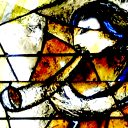
09.10.20 (Elul 21, 5780) In another article I mentioned that the central theme of the High Holiday season is teshuvah (תְּשׁוּבָה), a word often translated as "repentance," though it's more accurately understood as turning (shuv) to God in response to His call. Indeed, teshuvah can mean both these things: turning and answering... A related Hebrew word is nacham (נָחַם), which literally means to "sigh" as a way of expressing regret or sorrow, usually in response to something in the past. Sometimes nacham is used to express the idea of comfort, in the sense of consolation for something lost. The ancient Greek translation of the Bible (i.e., LXX and NT) generally used the word strepho (στρέφω) for the word shuv, and the word metanoia (μετάνοια) for nacham.
In the New Testament, the Greek word metanoia (and its related verb, metanao) is the most commonly used word to express the idea of "repentance." The compound word is formed from 'μετα' (after, with) and 'νοεω' (to think) and generally means "changing your mind" (in the noun form) or "thinking differently" (in the verb form). Since it can represent an "afterthought" expressed emotionally as sorrow or regret, metanoia is similar to the idea of nacham (נָחַם) in the Hebrew Scriptures. The Greek word strepho (στρέφω), like the Hebrew word shuv (שׁוּב), means to "return" to God in a more practical sense, that is, by performing acts of contrition. In either case, however, a change of direction is implied, and that change ultimately begins with how we think and what we regard as truth.
In this connection it is interesting to compare the Shema as it appears in the Hebrew text with the Greek versions given in the New Testament, because the Greek text adds the word "mind" (or understanding) in the recitation: i.e., "Hear, O Israel: The Lord our God, the Lord is one. And you shall love the Lord your God with all your heart and with all your soul and with all your mind and with all your strength." (Mark 12:29-30). Notice that the original Hebrew text does not include reference to the mind, though the word me'od ("muchness") was translated as "power" (δυνάμεώς) in the LXX, and this might have been interpreted to mean the power of the mind. Even so, the Greek New Testament uses the word "strength" (ἰσχύς) for me'od, so the question of how the word "mind" appeared in the recitation of the Shema is still a bit puzzling. (You can view the textual differences here, if you like.) At any rate, it is significant that the word "mind" or "understanding" (i.e., διάνοια, from διά, "through" + νοῦς, "mind"), appears in the text (as well as in Matt. 22:37 and Luke 10:27), especially when we remember that the word metanoia means "changing your thinking" or "changing your mind."
Yeshua's earthly ministry began with the message, "The time is fulfilled, and the kingdom of God is at hand; repent (μετανοεῖτε) and believe (πιστεύετε) in the gospel" (Mark 1:15). These two verbs (repent, believe) are in the imperative mood. We are commanded to repent, to "change our thinking" and to believe the message of the gospel. As I've said before, trusting in Yeshua is the most important mitzvah of the Scriptures. This implies, among other things, that there is a moral imperative to accept the truth and reject error in the realm of the spiritual. God holds us responsible for what we think and believe (Acts 17:30-31).
Click for a Hebrew reading lesson:
 |
If God holds us responsible to repent and believe the truth of the gospel, He must have made it possible for us to do so ("ought" implies "can"). And indeed, God has created us in His image and likeness so that we are able to discern spiritual truth. He created us with a logical sense (rationality) as well as a moral sense (conscience) so that we can apprehend order and find meaning in the universe He created. All our knowledge presupposes this. Whenever we experience anything through our senses, for example, we use logic to categorize and generalize from the particular to the general, and whenever we make deductions in our thinking (comparing terms, making inferences, and so on), we likewise rely on logic. We have an innate intellectual and moral "compass" that points us to God.
Since we all necessarily must think in order to live, we should value clear thinking. This should be obvious enough, though people often make various errors and misjudgments because they devalue the effort required to carefully think through a question. As William James once said, "A great many people think they are thinking when they are merely rearranging their prejudices." When it comes to questions about the gospel, however, God regards such carelessness to be blameworthy. Again, the LORD holds us accountable for what we think and believe, especially when it comes to the reality and mission of His Son.
The truth about God is always available to human beings, if they are willing to look for it. The Divine Light that was created before the sun and the stars represents God's immanent presence that "lights up" all of creation - including our minds (Gen. 1:3). As Paul stated, "the invisible things of Him from the creation of the world are clearly seen so that people are without excuse" (Rom. 1:19-20). The heavens are constantly attesting to the reality of God's handiwork (Psalm 19:1). All of creation "shouts out" that there is a God. Even small children understand this.
The witness of God's truth is foundational to all of our thinking as well. If you regress far enough in a chain of reasoning, you will always encounter first principles, intuitions, axioms, and "apprehensions" of the laws of thought. This is how language works, or rather, how our mind necessarily discovers truth about reality. For example, the law of contradiction (or identity) is not discovered in experience, but is brought to experience by the operation of the mind. All reasoning is ultimately grounded on foundational first principles that are regarded as self-evident and that are known through the light of the mind itself. Even the pagan Greeks understood this. For instance, Aristotle said that both deduction and induction ultimately were based on the "intuitive grasp" of first principles of thinking itself:
 |
It's important to realize that no one "invented" the rules of logic (such as the law of identity, the law of contradiction, valid rules of inference, etc.); no, these are self-evident and presupposed in all forms of intelligible thinking about anything at all. In other words, God created the mind so that true thinking is possible. If you are reading these words, you are presently using logic. You are identifying and combining letters, interpreting their meaning, making connections and comparisons, and therefore making inferences. There is no way to argue that logic is "artificial" or culturally relative. No one can consistently use logic to argue against its universal validity. The revelation (not the invention) of logical first principles is part of God's "signature," if you will, of how the mind is wired to correspond to reality. Reason discovers order in the universe but does not create it ex nihilo. If you deny this, you have opted out of the realm of thought altogether and entered the realm of the absurd.
Likewise we have intuitive awareness regarding the existence of moral truth (i.e., the standard of justice and moral law), aesthetic truth (i.e., ideals of beauty, goodness, worth, and love), metaphysical truth (i.e., cause and effect relationships), and so on. Even scientific truth is based on principles that transcend the discipline of science itself (for example, the assumption that knowledge is "good" and should be obtained is not an empirical statement). The human mind naturally uses these sorts of categories in its thinking all the time, but each of these are ultimately derived from the rational mind of God Himself.
So God made us so that we could discern truth about reality. The mind functions according to logical laws because it is made in the image and likeness of God Himself... God Himself is the ground of all logic, since He created reality and structured the world to be knowable according to its laws. As it is written: "In the beginning was the word/logic (ὁ λόγος), and the λόγος was with God, and the λόγος was God" (John 1:1). God created a world that exhibits order and great beauty. And since human beings were created b'tzelem Elohim, in the image of God, our thoughts (and the words used to formulate our thoughts) as well as our actions are likewise intended to exhibit order and beauty. "For the fruit of light (καρπὸς τοῦ πνεύματος) is found in all that is good and right and true" (Eph. 5:9). Therefore "whatever is true... think on these things" (Phil. 4:8).
The Source of all truth is God. He is the Master of the Universe, the Lord of all possible outcomes and worlds. The heavens declare His glory (outer world) and human beings are made b'tzelem Elohim - in His image (inner world). We are all accountable to Him for our lives, and the irresistible testimony of logic reveals His design and order of reality...
The immanence of the divine Light helps us make sense of Yeshua, who is the "Light of the world" that "enlightens every man who comes into the world" (John 1:9; 8:12). Yeshua said, "the Spirit of Truth ... will bear witness about me" (John 15:26). And again, "For this purpose I was born and for this purpose I have come into the world-- to bear witness to the truth (ἀλήθεια). Everyone who is of the truth listens to my voice" (John 18:37). Heaven and earth might pass away, but the words of Yeshua will never pass away (Matt. 24:35). The life of Yeshua embodies the truth of God (John 14:6).
Again, we are responsible to walk in the Spirit of truth and to reject what is false (1 John 4:6). This implies that we have a moral and spiritual duty to think clearly and not abuse our minds (Phil. 4:8; Rom. 12:2). God Himself helps us to do this: "I will ask the Father, and he will give you another Helper (παράκλητος, someone "called to one's side"), to be with you forever, even the Spirit of Truth (רוּחַ הָאֱמֶת), whom the world cannot receive, because it neither sees him nor knows him" (John 14:16-17). God gives us the Spirit of Truth so that we can know the truth about His salvation and to "discern what is the will of God, what is good, acceptable, and perfect" (Rom. 12:2). Truth is connected to memory - both in our personal histories as well as the history of God's redemptive actions performed on our behalf. Hence we are constantly commanded to remember what God has done for us. Similarly, the Spirit of Truth brings to remembrance the words of Yeshua to our hearts (John 14:26).
Followers of Yeshua are commanded to love the truth and to think clearly about their faith. The ministry of reconciliation itself is defined as "the word of truth, by the power of God, through weapons of righteousness" (2 Cor. 6:7). Indeed, the word of truth (τὸν λόγον τῆς ἀληθείας) is a synonym for the "gospel of salvation" itself (Eph. 1:13; Col. 1:5; James 1:18). We are saved by Yeshua, who is the "way, the truth, and the life" (John 14:6). God commands all people to believe this truth (Acts 17:30-31; 1 Tim. 2:4). People perish because "they refuse to love the truth and so be saved" (2 Thess. 2:10-12). Therefore we see that the issue of truth is central to salvation itself....
Click for a Hebrew reading lesson:
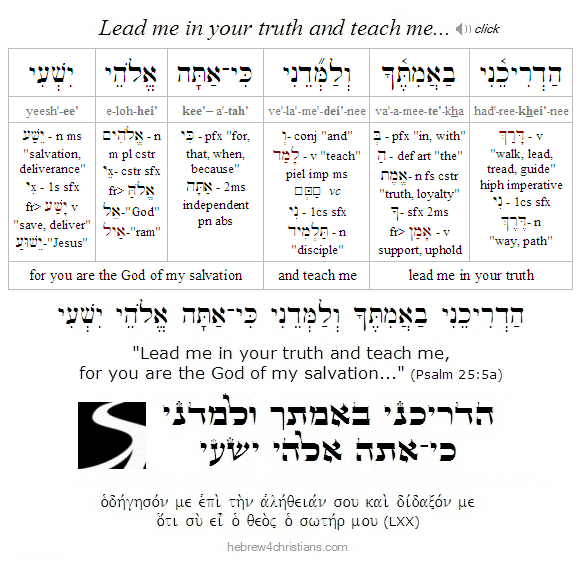 |
Note: For more on this topic, see: "Teshuvah of the Mind: Being Transformed by Truth."
The Strength of Praise...
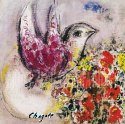
09.10.20 (Elul 21, 5780) If you are having a tough day today, or if you feel oppressed, lonely, or heavy of heart, let me encourage you to praise God anyway... Offering thanks to the LORD is a powerful weapon for announcing God's triumph over the darkness of the present hour (2 Cor. 10:4). Indeed, the Lord is "enthroned" by the praises (תְּהִלּוֹת) of His people (Psalm 22:3). Therefore give voice to your hope and confidently affirm: "Behold, God is my salvation (i.e., my yeshua, my "Jesus"); I will trust, and will not be afraid; for the LORD God is my strength and my song, and he has become my salvation" (Isa. 12:2).
Click for a Hebrew reading lesson:
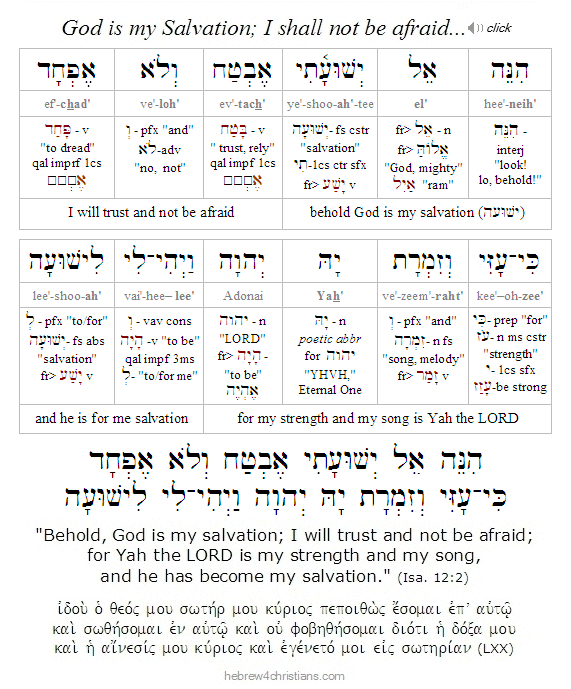 |
Therefore "do not be grieved (even over yourself), for the joy of the LORD is your strength" (Neh. 8:10). Affirming the love, goodness, faithfulness, compassion, and salvation of God is a powerful way to defeat the enemy of our souls, who regularly seeks to discourage us. King David constantly asked God to help him in his spiritual struggles. "Though I walk in the midst of trouble (בְּקֶרֶב צָרָה), you preserve my life; you stretch out your hand against the wrath of my enemies, and your right hand delivers me" (Psalm 138:7). "For the enemy has pursued my soul; he has crushed my life to the ground; he has made me sit in darkness like those long dead. Therefore my spirit faints within me; my heart within me is appalled" (Psalm 143:2-3). Though we must fight through the stubborn darkness and yet endure ourselves, "the LORD is near to the brokenhearted and saves the crushed in spirit (Psalm 34:18). Indeed, the Lord God is far greater than your heart's sin and will one day entirely deliver you of sin's effect and influence. Amen, and let it be, LORD...
Behold the goodness and kindness of our God! Where it is written: "Know Him in all your ways" (Prov. 3:6), this of course includes the way of your struggles and the way of your transgressions... Acknowledge these ways before Him, too, and trust that God will help you overcome fear and depart from your sin (Prov. 28:13). As it is said, "Because he is devoted to Me I will deliver him; I will keep him safe, for he knows My Name. When he calls to Me, I will answer him; I will be with him in trouble; I will rescue him and honor him. With long life I will satisfy him and show him My salvation" (Psalm 91:14-16).
Click for a Hebrew reading lesson:
 |
Gratitude and Healing...
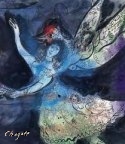
09.10.20 (Elul 21, 5780) It is good to praise and trust in the LORD despite our afflictions, and indeed, suffering itself presents an invitation to come before God in prayer (James 5:13). Suffering offers us a nisayon (נִסָּיוֹן), a test, for our hearts to be exercised in ways otherwise rendered impossible should the path of our lives be attended without real struggle...
In this connection I am reminded of a quote from Sadhu Sundar Singh, "Should pain and suffering, sorrow, and grief, rise up like clouds and overshadow for a time the Sun of Righteousness and hide Him from your view, do not be dismayed, for in the end this cloud of woe will descend in showers of blessing on your head, and the Sun of Righteousness rise upon you to set no more for ever" (Wisdom of the Sadhu).
It's been said that both the devil and God want your soul, but their approaches are diametrically opposite to one another.... God offers you a bitter cup that, after it has been duly tasted, will be turned sweet, whereas the devil offers you an artificially sweetened cup that, after it has been duly tasted, will be found bitter to the last of its dregs... When you accept your suffering as ordained by God - by the LORD of Glory who could easily deliver you from all trace of its presence in but the twinkling of an eye – your heartache is sanctified, and your praise becomes more dear to Him. Only the wise and loving LORD knows how bitter waters may be made sweet; only the great Refiner of our souls knows how to bring eternal beauty up from ashes... So heal me, O LORD (even if that means suffering and pain for my life), and I shall be healed; save me, O LORD (do whatever it takes to bring me to the end of myself), and I shall be saved – for you are my praise.
If you are afflicted, troubled, or in any kind of pain, you have a great opportunity to glorify your Father in Heaven by offering Him your praise.... Praising God is the appropriate response to all of reality; the affirmation of God's glory transforms everything. "Is anyone among you feeling bad? Let him pray. Is anyone feeling good? Let him sing praise" (James 5:13). Remember that regardless of how you presently feel, your emotional life is centered in the Presence of God... As George Mueller once affirmed, "Be assured – if you walk with Him and look to Him, and expect help from Him, He will never fail you."
Click for a Hebrew reading lesson:
 |
Confession and Healing...
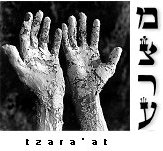
09.10.20 (Elul 21, 5780) It is written in our Torah: "When a person (i.e., adam: אָדָם) has on the skin of his body a swelling (שְׂאֵת) or a scab (סַפַּחַת) or a bright spot (בְּהֶרֶת)... he shall be brought to the priest" (Lev. 13:2). Here the sages note three common afflictions that befall the "children of Adam": swelling (arrogance), scabs (worldly vanity, from a word that means to join togther), and bright spots (representing the light of carnal reasoning to understand the ways of God). When we see only the affliction, we must go to the priest – to one who helps mediate the Divine Presence – to see how deep the affliction is... Symbolically, since we are all priests to one another (see Exod. 19:6; 1 Pet. 2:5,9; Rev. 1:6), we share our afflictions with one another, allowing ourselves to be seen, and to confess our need for healing. We are only as sick as the secrets we keep, and therefore we are encouraged to share our struggles with one another: "Therefore, disclose (ἐξομολογέω, lit. 'confess out') your sins to one another and pray (εὔχομαι) for one another, that you may be healed..." (James 5:16).
Followers of Yeshua are intended by God to be healers (Luke 9:1). The most common word for healing in the New Testament is therapeuo (θεραπεύω), a word that means to serve, to care for, and to restore to health. Unlike some ministers who draw crowds to demonstrate the power of miraculous "faith healing," true spiritual healers take the time to listen to others, to hear their inward pain, and to extend compassion and grace to them. They help open the inner eyes of the heart by extending hope and a new vision about what is real... Indeed, lasting healing focuses less on being cured than on finding hope that will never die.
The Torah connects disease (i.e., tza'arat) with evil speech and thinking. Healing comes through doing teshuvah, that is, by confessing our sin and turning to God for forgiveness, as it says: "He forgives all your iniquities, he heals all your diseases" (Psalm 103:3).
Click for a Hebrew reading lesson:
 |
Teruah and the Resurrection...

09.09.20 (Elul 20, 5780) Rosh Hashanah literally means the "head of the year," and it traditionally marks the anniversary of the creation of mankind. The sages note that where it is written, "When you take a census of the children of Israel" (Exod. 30:12), the Hebrew reads, "When you lift up the heads (כִּי תִשָּׂא אֶת־ראשׁ) of the children of Israel," which implies that each person should be encouraged to understand that they "count" in the eyes of Heaven. The sages also note that the word "Israel" (יִשְׂרָאֵל) contains the letters that form the phrase li rosh (לִי ראשׁ), "there is to me a head," that is, a soul created in the image of God.
During Rosh Hashanah we affirm our faith that the LORD our God is the great King over all the earth (מֶלֶךְ גָּדוֹל עַל־כָּל־הָאָרֶץ). The Hebrew word "king" is melekh (מֶלֶךְ), the value of which is 90, the same as the Hebrew letter Tzadi (צ), meaning "Righteous One." Indeed some of the sages say that the word "amen" (אמן) is an acronym for the phrase El Melekh Ne'eman (אֵל מֶלְךְ נֶאֱמָן) - "God is a Righteous King." The LORD is a God of faithfulness and without iniquity, just and upright is he (Deut. 32:4). The LORD God, the Righteous One has "ascended with a shout, the LORD with the sound of a shofar" (Psalm 47:5). This refers to the ascension and glorification of our Savior Yeshua, who ascended in triumph over sin and death our behalf. As is written: "Sing praises unto our King, sing praises!" (Psalm 47:6). L'Chayim b'Yeshua Adoneinu- to Life in Yeshua our Lord, friends!
Click for a Hebrew reading lesson:
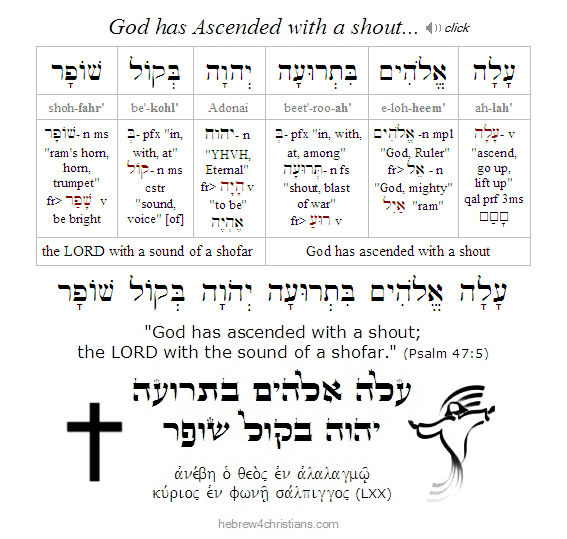 |
 |
Is Rosh Hashanah Biblical?

09.09.20 (Elul 20, 5780) Though the term "Rosh Hashanah" does not occur in the Torah, the start of the 7th month (i.e., Tishri 1) is set apart by special shofar blowing (see Lev. 23:24-25, Num. 29:1-2). Furthermore, the Torah calls the end of the harvest year (in the fall) the "end of the year" (see Exod. 23:6), which indicates the symmetry of the calendar: the fall festivals "mirror" the spring festivals and correspond to one another. Just as there is a "new year" in the spring, on the new moon of Nisan, so there is in the fall, on the new moon of Tishri, the seventh month... That is why we make a "teruah" shout of thanks to God in anticipation of the fulfillment of God's redemptive purposes during the End of Days.
"The Holy One said, 'on Rosh Hashanah recite before me verses of Majesty (i.e., malchuyot: מלכותיות), Remembrance (i.e., zichronot: זיכרונות), and Shofar blasts (i.e., shofrot: שפרות): Majesty so that you confess Me your King; Remembrance so that the remembrance [of the Akedah] should rise up before Me. And through what? Through the Shofar.' (Rosh Hashanah 16a, 34b)
But what about the idea of focusing on repentance during this time of year? Well, undergoing self-examination and teshuvah are clearly commanded by God throughout the Scriptures, including the New Testament writings (see Lam. 3:40; Haggai 1:5; Psalm 119:59; Matt. 7:3-5, Gal. 6:3-4, 1 Cor. 11:28, 2 Cor. 13:5, James 5:16, 1 John 1:8-9, etc.). Setting aside 40 days each year to call us to turn to God is a healing custom, especially if it's done in light of truth of the gospel message. After all, Christians will stand before the Throne of Judgment (kisei ha-din) to give account for their lives to God (see 2 Cor. 5:10). As it is written: "Every man's work shall be made manifest: for the day shall declare it, because it shall be revealed by fire; and the fire shall try every man's work of what sort it is" (1 Cor. 3:13). The foundation of every true work of God comes from trusting in the finished work of Yeshua the Messiah, and the work of our faith will be tested and judged.
Click for a Hebrew reading lesson:
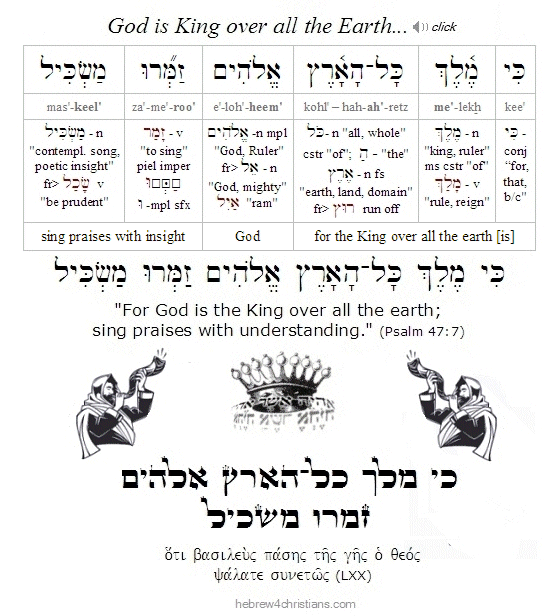 |
For more on this subject, see Is Rosh Hashanah Biblical?
The Blessing of Struggle...

[ The following is related to the month of Elul and the "Season of Repentance"... ]
09.09.20 (Elul 20, 5780) Recently I mentioned that we are part of a seemingly endless journey of falling down and getting back up once again. It is this struggle, this "good fight of faith," that eventually ennobles the heart and establishes character... The hidden blessing of our repeated failure, then, is that we attain genuine humility as we rely on God for the miracle of deliverance. When we draw near to God in confession of our weakness, we may discover that our struggle disguises unacknowledged need within. For example, we might wrestle with lust, but this may come from refusing to trust others or from a sense of loneliness and sadness... "Hurt people hurt people," which means that often our sins come from a place of inner pain of abandonment. When we confess the truth we are enabled to draw close to God - the God of Truth - to discover his mercy. Those things you believe make you unlovable are the very means by which God manifests the glory of His compassion and love for you. "It is not judgment that breaks the heart, but mercy and love."
This is why during the month of Elul and the High Holidays we recite prayers for forgiveness (i.e., selichot) in the plural, listing all the sins from "A" to "Z" that we (collectively) have committed. We use plural pronouns out of a sense of compassion... We are one body. When some part of the body is sick, the whole body is sick; when one of us sins, he hurts all the flock (1 Cor. 12:26). Therefore the traditional selichot prayer mentions all the possible sins in the order of the Hebrew alphabet: Ashamnu, "we have sinned," begins with the letter Aleph; Bagadnu, "we have been false," begins with Bet; Gazalnu, "we have robbed," begins with Gimmel, and so on... Just as Yeshua taught us, "Avinu She'bashamayim" - our Father, forgive us of our sins, so "all Israel is responsible one for another." "Compassion" means that others' sins and failures don't make them different from us, but rather more like ourselves. It is "feeling with" the heart for the sake of the other in empathy....
Click for a Hebrew reading lesson:
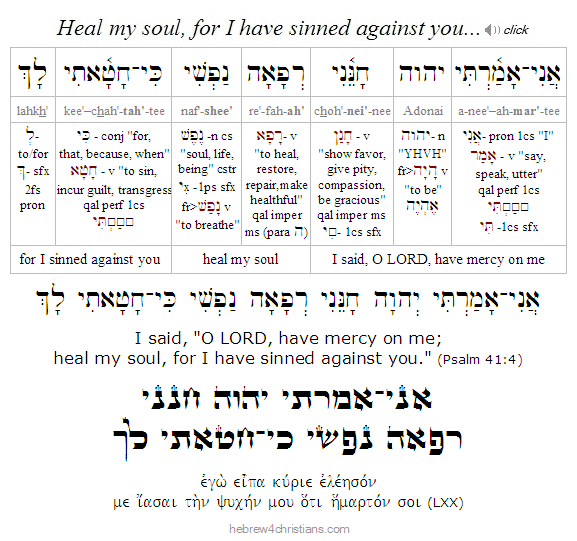 |
The Rabbi of Lelov said to his Hasidim: "A man cannot be redeemed until he recognizes the flaws in his soul and tries to mend them. A nation cannot be redeemed until it recognizes the flaws in its soul and tries to mend them. Whoever permits no recognition of his flaws, be it man or nation, permits no redemption. We can be redeemed to the extent to which we recognize ourselves. When Jacob's sons said to Joseph, "We are upright men," he answered: "That is why I spoke to you saying, 'You are spies.'" But later, when they confessed the truth with their lips and with their hearts, and said to one another, 'We are verily guilty concerning our brother,' the first gleam of their redemption dawned. Overcome by compassion, Joseph turned aside and wept." - Martin Buber (Tales of the Hasidim)
Ultimate Concerns...
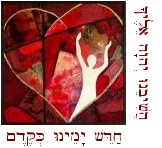
09.09.20 (Elul 20, 5780) It is written in our Torah: "Take care, lest you forget the covenant of the LORD your God, which he made with you, and make a carved image, the form of anything that the LORD your God has forbidden you... 'You shall not make for yourself a carved image (לא־תַעֲשֶׂה־לְךָ פֶסֶל) or any likeness of anything that is in heaven above, or that is on the earth beneath, or that is in the water under the earth" (Deut. 4:23; 5:8). Literally this refers to the ancient practice of bowing before "mediating forces" of God, often symbolized by art and ritual, as a token of veneration or as a means of finding "acceptance" within a group. We are not to imitate such customs of the pagan world around us; on the contrary, we testify of the One True God and repudiate the need for intermediaries between God and man... On a different level, "bowing before an idol" means passively yielding to the world and its ideals rather than submitting to the truth. When we seek to fit in, to feel like we belong, and follow the trends and passions of the crowd, we express idolatry of heart. Most intimately, an idol is a source of desire, happiness, and security apart from the LORD. Your "god" is whatever your heart admires, follows and loves... If you have "other gods" before the LORD, then something is wrong, since we were created by God to find life in Him alone. "Surely you don't think the Scripture speaks vainly when it says: the spirit which He sent to live in us wants us for himself alone?" (James 4:5) "Grace will save a man... but it will not save him and his idol" (Tozer). Therefore, my dear friends, flee from idolatry (1 Cor. 10:14).
The purpose or "goal" of life is to learn to be loved by God, to accept our place within his heart, and to "live, move, and have our being" rightly related to Divine Truth revealed in Messiah. The first lesson, then, is to know who we are and how much we are loved. Learning this is often a struggle, however. We are easily distracted. We forget why we are here. Because of this we must constantly remind ourselves of our true identity, of our high calling, and the reason for our lives... Much of our trouble comes from "disordered love," by elevating what is finite to the status of the infinite. Indeed idolatry is the substitution of not-god (לא־אֵל) for the sacred, absolutizing the present and worshiping the temporal. We find lasting inner peace only after we surrender to God's will for our lives...
Often we are slow to realize our desperate need and God therefore allows us to revisit the various "waste places" of our own lusts and fears until we have become sick of ourselves -- sick "to the bones." We have to be willing "to give up our sickness." Usually that means that we must experience repeated failures until we have "learned from the heart" that the LORD alone is our Healer and Deliverer (2 Cor. 7:10). Ironically it is only after we have abandoned teshuvah in our strength that we are enabled to truly turn.
God knows that we are unable to overcome our inner corruption - that we are unable to help ourselves - apart from his miraculous intervention, and therefore he creates a new heart and puts a new spirit within us (Ezek. 36:26). In this way the Lord makes us direct witnesses of his transforming power and glory... Our changed lives are made testimonies sent out to impart hope, to raise the dead of heart, and to bind up the bruised of spirit.
Click for a Hebrew reading lesson:
People are "hard-wired" to value and desire what they esteem as good. It's not a question of whether we worship, but what... What is your ultimate concern? What are you looking to for life?
Dangers of False Humility...
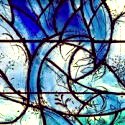
[ The following is related to the month of Elul and the "Season of Repentance"... ]
09.09.20 (Elul 20, 5780) Isaac of Thebes was visiting a community when he saw a brother sin. Isaac condemned him in his heart. Later, when he returned to his room for the night, he discovered an angel barring the doorway. "God has sent me to ask you where he is to put the fallen brother whom you have condemned." Isaac was immediately contrite: If God did not judge the sinner, how could he? (Sayings of the Desert Fathers)
If you call yourself a sinner, be sure you understand the implications... If you say, "I know that I am the problem, that my heart is foolish, that I am hotheaded, and that my troubles are my own doing," then examine your anger and disappointment with others in your life... The genuineness of your humility may be revealed by how you handle disappointment, frustration, being disregarded, and so on. If you say that you are "just a poor sinner saved by grace," then test whether you really believe this is true....
There's an old native American story about a young boy who died of a snake bite. The poison took away his life, and his grieving parents carried his body to the holy man and laid it before him. And the three of them sat around the body sadly for a long, long time. The father finally rose from his grieving, went over to his child, stretched out his hands over the feet of the child and said, "In all my life I have not worked for my family as I should have." And the poison left the feet of the child. Then the mother arose and said, "In all my life I have not loved my family as I should." And the poison left the heart of the child. And the holy man stretched out his hands over the head of the dead boy saying, "In all my life I have not believed the words I have spoken." And the poison left the head of the child. The child then rose up, and the parents and the holy man rose up, and the village greatly rejoiced that day.
Rosh Hashanah and the Lamb...
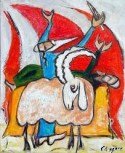
[ The Jewish holidays were always meant for followers of the one born "The King of the Jews." ]
09.08.20 (Elul 19, 5780) In the Torah we find that the word "love" (i.e., ahavah) first appears regarding Abraham's passion for his son: "Take your son, your only son Isaac, whom you love (אֲשֶׁר־אָהַבְתָּ), and go to the land of Moriah, and offer him there as a burnt offering on one of the mountains of which I shall tell you" (Gen. 22:2). After journeying to the place, Abraham told his child that God would provide a lamb (אֱלהִים יִרְאֶה־לּוֹ הַשֶּׂה), and then bound Isaac, laid him upon an altar, and raised his knife to slay him (Gen. 22:8-10). At the very last moment, the Angel of the Lord called out: "Abraham! Abraham! Do not lay your hand on the lad or do anything to him, for now I know that you fear God, seeing you have not withheld your son, your only son (בֵּן יָחִיד), from me" (Gen. 22:11-12). Abraham then "lifted up his eyes" and saw a ram "caught in a thicket" which he offered in place of his son. Abraham then named the place Adonai-Yireh (יהוה יִרְאֶה), "the LORD who provides" (Gen. 22:14). The sacrifice of the lamb for Isaac portrayed the coming sacrifice of Yeshua, the great "Lamb of God" (שֵׂה הָאֱלהִים) who would be offered in exchange for the trusting sinner (John 1:29). Indeed the story of how God provided the lamb at Moriah (and later during the Passover in Egypt) foreshadowed the greater redemption given in Messiah at the "Passover cross," and may be understood as the "Gospel according to Moses" (Luke 24:27; John 5:46). Therefore, Rosh Hashanah, or the Day of Judgment (יוֹם הַדִּין), is all about our Messiah, and the sound of the shofar reminds us of the Lamb of God who was offered in our place...
Click for a Hebrew reading lesson:
 |
An Ever-Present Mercy...
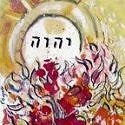
09.08.20 (Elul 19, 5780) Since Rosh Hashanah is known as the "Day of Judgment" (i.e., yom ha'din: יום הדין), it is customary to offer additional prayers of supplication (selichot) before the advent of the holiday. These prayers appeal to God's compassion and often include the recitation of "shelosh esrei middot rachamim," that is, the thirteen attributes of God's mercy (Exod. 34:6-7). The thirteen attributes reveal the inner meaning of God's Name YHVH (יהוה) disclosed to Moses after the people had committed the dreadful sin of the worshiping the golden calf (עגל זהב) at Sinai. God is not only our Judge and Lawgiver (Elohim), but our Savior and our Healer (Moshia). In his great mercy He restores what we have broken; He overcomes our judgment by means of his abounding love given to us in Yeshua (Psalm 85:10). We therefore appeal to YHVH as the Source of Compassion, the "breath of life" (נִשְׁמַת חַיִּים) that was imparted to Adam on the day he was first created (Gen. 2:7).
The Torah teaches that the Name of the LORD (יהוה) means both ehyeh (אֶהְיֶה) "Presence" and rachum ve'chanun (רַחוּם וְחַנּוּן), "Mercy and Grace" (Exod. 3:14; 34:6-7). Yeshua said, "I go to prepare a place for you," which means that his presence and love are waiting for you in whatever lies ahead (Rom. 8:35-39). We live and move and have our being in God's love. To worry is "practicing the absence" of God instead of practicing His Presence... Trust the word of the Holy Spirit: "For I know the plans I have for you, declares the LORD, plans for healing peace and not for evil, to give you a future and a hope (Jer. 29:11).
Click for a Hebrew reading lesson:
 |
This is the Day...

09.07.20 (Elul 18, 5780) God's Name is "I-AM-with-you-always," imanu-El (עִמָּנוּ אֵל) - always in the midst of you, your heart, your Center... The LORD is named this way because he is never without his own, and we are who we are in relation to his presence in our lives. Yeshua is not simply the Lord of the past or the Lord of the future, but the Lord of this moment, this "here" and this "now." He is the same yesterday, today, and forever - the breath of life, our sustaining hope, the Shepherd of our souls... Whatever else may come of this day, this is the day that the LORD has made, and we can find peace in God's Presence.
זֶה־הַיּוֹם עָשָׂה יְהוָה
נָגִילָה וְנִשְׂמְחָה בוֹ
zeh-hai·yohm · ah·sah · Adonai
nah·gee'·lah · ve·nees·me·chah · voh

"This is the day that the LORD has made;
let us rejoice and be glad in it."
(Psalm 118:24)

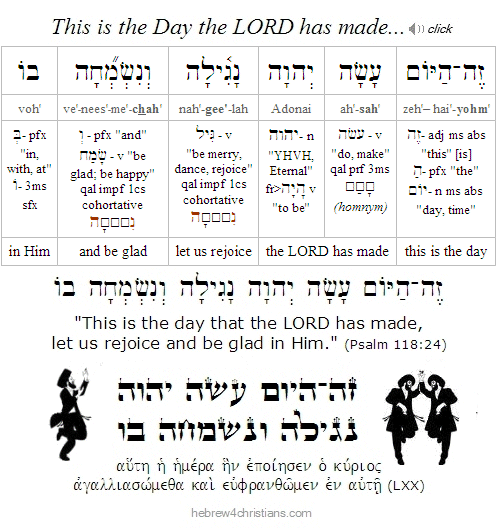
Personal Note: I have been feeling sick for the last couple of days. Your prayers for me are sincerely appreciated, chaverim. Thank you.
Seeking and Finding...

09.07.20 (Elul 18, 5780) "Seek the LORD while he may be found, call upon him while he is near: Let the wicked forsake his way, and the unrighteous man his thoughts: and let him return unto the LORD, and he will have mercy upon him; and to our God, for he will abundantly pardon" (Isa. 55:6-7). But how will we seek if we do not believe? And how will God be found unless God makes it possible for us to find Him? Hashivenu. We first believe the invitation to return is for us, and the moment we believe we draw near, which is to say God reveals himself to the heart of faith. If you feel devoid of God's presence, heed David's words to "set the LORD" before you (Psalm 16:8). Ask God for help to truly know Him and have confidence that he will indeed heal you. No prayer offered according to his heart will ever go unanswered (1 John 5:14-15). "The greatest honor we can give to the Almighty is to live gladly because of the knowledge of his love" (Julian Norwich). As Yeshua promised: "Whoever has my commandments and keeps them, he it is who loves me. And he who loves me will be loved by my Father, and I will love him and manifest myself to him" (John 14:21). Note that the Greek word translated "manifest" means to "shine inside" (i.e., ἐμφανίζω, from ἐν, "in" and φαίνω, "shine"), indicating that the revelation would be inward light of the Presence of Messiah himself (Χριστὸς ἐν ὑμῖν, ἡ ἐλπὶς τῆς δόξης, Col. 1:27). God calls you so that you might find him to be the greatest love of your life, and as you receive that love, as you embrace it as your own, the love of Messiah will become inwardly visible to you. This comes from a place of surrender and acceptance. As Paul Tillich said, "Sometimes in a moment of weakness light breaks into darkness, and it is as though a voice says, 'You are accepted; you are accepted... Do not seek for anything; do not perform anything; do not intend anything. Simply accept the fact that you are accepted.' If that happens to you, then you experience grace, and everything will be transformed." Ultimately teshuvah is about salvation and transformation - beauty from ashes - and the love of God...
דִּרְשׁוּ יְהוָה בְּהִמָּצְאו
קְרָאֻהוּ בִּהְיוֹתוֹ קָרוֹב
deer·shoo · Adonai · be·hee·matz·oh
ke·rah·oo'·hoo · bee·yoh·toh · ka·rohv

"Seek the LORD while he may be found;
call upon him while he is near."
(Isa. 55:6)

Hebrew Study Card
Today is the day of salvation, yet how many are the days of your life? How many opportunities for you to make up your mind? "How long will you go limping between two opinions?" Therefore choose this day whom you will serve. Salvation is as close as your own mouth and heart (Deut. 30:11-14; cp. Rom. 10:8-13). Make the first step; open your heart, and the LORD will then help you make the wholehearted decision to "seek the LORD while He may be found; call upon Him while He is near." Amen.
Click for a Hebrew reading lesson:
Shavuah Tov Podcast:
Parashat Vayeilech...
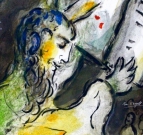
09.06.20 (Elul 17, 5780) In the "Shavuah Tov" audio broadcast for parashat Vayeilech I take some to discuss both the Jewish High Holidays -- and how they relate to us as followers of Yeshua the Messiah -- as well as themes from the weekly Torah portion. I hope you will find it helpful. L'Shanah Tovah u'Metukah b'Yeshua Meshicheinu, chaverim! - "to a good and sweet year in our Messiah Yeshua, friends." I hope you will find it helpful.
Shavuah Tov Podcast:
Parashat Nitzavim..
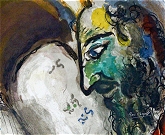
09.06.20 (Elul 17, 5780) Our Torah reading for this week, parashat Nitzavim, is always read on the Shabbat immediately before the solemn holiday of Rosh Hashanah, and therefore it is one of the last portions read before the new Jewish year begins (see Exod. 23:16). In many synagogues, the opening and concluding paragraphs of parashat Nitzavim are also read during the Yom Kippur morning service. In addition to an overview of the Torah reading, in this audio podcast I discuss the fall holidays of the Torah's calendar, particularly the significance of Rosh Hashanah for followers of Yeshua the Messiah. I hope you find it helpful.
Parashat Nitzavim-Vayeilech...
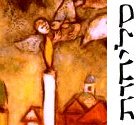
[ This week we have a "double portion" of Torah: parashat Nitzavim ("You are standing") and parashat Vayeilech ("and he went"). ]
09.06.20 (Elul 17, 5780) Parashat Nitzavim (with Vayeilech on leap years) is always read on the Shabbat before Rosh Hashanah and therefore it is the last portion read for the current Jewish year. The portion begins: "You are standing here today, all of you, before the LORD your God (אַתֶּם נִצָּבִים הַיּוֹם כֻּלְּכֶם לִפְנֵי יְהוָה אֱלהֵיכֶם) ... so that you may enter into the sworn covenant of the LORD your God ... that he may establish you today as his people, and that he may be your God, as he promised you, and as he swore to your fathers, to Abraham, to Isaac, and to Jacob" (Deut. 29:10-13). After this Moses went on to review Israel's history and prophetic future -- i.e., the great prophecy of the worldwide Exile and Return of the Jewish people -- and then he solemnly appealed for us to turn to the LORD for life: "I call heaven and earth to witness against you today, that I have set before you life and death, blessing and curse. Therefore choose life, that you and your offspring may live (Deut. 30:19).
Click for a Hebrew reading lesson:
The way of return (teshuvah) is always a matter of the heart and will: bacharta ba'chayim: "Choose Life!" "For this commandment (of teshuvah) is not hidden from you, and it is not far away. It is not in heaven...nor across the sea.... Rather, the matter is very near you - in your mouth and your heart - to do it" (Deut. 30:11-14; cp. Rom. 10:8-13). In the end of days (acharit hayamin), the LORD will remove the "partial hardening" of the Jewish people so that they will turn to Him with all their heart and soul (Deut. 30:6, Rom. 11:25-26).
But why this seemingly topsy-turvy process of teshuvah? Why do the Jewish people have to go through this long period of suffering, tribulation, and scattering, only to be finally regathered one day in the future? Moses himself gives us the answer (as does the Apostle Paul in the Book of Romans): "The secret things (ha-nistarot) belong to the LORD our God (הַנִּסְתָּרת לַיהוָה אֱלהֵינוּ), but the things that are revealed (ha-niglot) belong to us and to our children forever, that we may do all the words of this law" (Deut. 29:29). Part of the "secret things" concerns the mystery the suffering of the Jewish people, since it is clear that God particularly afflicts those whom he loves through testing, and indeed part of the meaning of being am segulah (a "select people") implies dealing with God - by means of blessing or by curse (Heb. 10:31). In the end, however, God's plan for Israel will decisively demonstrate His wisdom, power, and glory, so much so that that Paul commented on ethnic Israel's future by exclaiming, "Oh, the depth of the riches and wisdom and knowledge of God! How unsearchable are his judgments and how inscrutable his ways" (Rom. 11:33).
Now more than ever, chaverim. We must not put our trust in man or in this moribund world system (κοσμος). We are undoubtedly living close to the "end of days." God's judgment has begun in earnest. It is time for us to choose whether we will be shaken or if we will walk in the trust of the LORD God of Israel. Choose this day whom you will serve..
Nitzavim-Vayeilech Resources:
Terrible Burden of Bitterness...

09.04.20 (Elul 15, 5780) Do any of you struggle with bitterness and chronic grief from being hurt in life? It is hard to forgive when we have been betrayed or seriously wounded by others... Perhaps you were abandoned as a child or suffered terrible betrayal from a friend or spouse. How do we get past the heartache? How can we move past the pain? There are no easy answers, and deliverance from evil comes at different stages for different people, but bitterness is essentially rooted in unforgiveness, and harboring it means losing sight of how much God loves you -- despite your own betrayals and sins against others. Refusing to forgive enslaves you resentment, pain, and despair. Forgiveness is not optional for a follower of Messiah: Your forgiveness of others is your own forgiveness (Matt. 6:15). Give up your demands for justice (Elohim) and appeal to God as Savior (YHVH). Instead of focusing on what harm others have done to you, examine your own heart, confess your own hardheartedness, and learn to be thankful for the grace you hope to partake in Yeshua. "Forgive one another, as God in Messiah forgave you" (Eph. 4:32); "for while we were still his enemies, he died for us" (Rom. 5:8). The devil offers you the cup of wormwood -- a cup of bitterness -- as he tempts you to be offended over all manner of things (both real and imagined). Repudiate his dark appeal. Turn to hope. Ask God for the mercy of a new heart that can let go of the terrible burden of bitterness and that can experience the blessing of shalom. Amen.
הִנֵּה לְשָׁלוֹם מַר־לִי מָר
וְאַתָּה חָשַׁקְתָּ נַפְשִׁי מִשַּׁחַת בְּלִי
כִּי הִשְׁלַכְתָּ אַחֲרֵי גֵוְךָ כָּל־חֲטָאָי
hee·nei · le·sha·lom · mar-lee · mar
ve·a·tah · cha·shak'·ta · naf·shee · mee·sha'·chat · be·lee
kee · heesh·lakh'·ta · a·cha·rei · gev·kha · kol-cha·ta·ai

"Behold, it was for my healing that I had great bitterness;
but You in love have delivered my life from the pit of destruction,
for you have cast all my sins behind your back."
(Isa. 38:17)

Click to listen and learn the Hebrew text:
Note that in this verse the term "pit of destruction" (מִשַּׁחַת בְּלִי) might better be understood as the "pit of wearing out," that is, the pit of nothingness, consumption, vanity, or worthlessness (i.e., belial: בְּלִיַּעַל). The idea is that the LORD loves us "from the pit of nothingness." The word "loved" used here (i.e., chashak: חָשַׁק) means to be attached in devotion or affection, to embrace in kindness... God's great love is like that – it descends into the pit of shame and draws us out from it, just as Yeshua went down to the pit for that purpose – to deliver those trapped in throes of death (Psalm 88:4-6; Zech. 9:11, 12; Heb. 13:20, 2 Cor. 5:12, etc.).
The Shofar and Teshuvah...
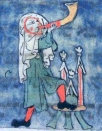
09.04.20 (Elul 15, 5780) The shofar (ram's horn) is often used as an instrument of spiritual warfare, though it is primarily used to rouse the soul to face reality... Maimonides writes: "There is a hidden message we are supposed to infer by listening to the shofar. It suggests to say: 'Sleeping ones! Awaken from your sleep! Slumbering ones! Awaken from your slumber! Examine your deeds. Remember your Creator and do teshuvah." This idea was earlier stated in the New Testament writings: "Awake, O sleeper, and arise from the dead, and Messiah will shine on you" (Eph. 5:13-14). This theme of "awakening from sleep" is used elsewhere in the Scriptures (e.g., John 11:11, Rom. 13:11, 1 Thess. 5:6, Dan. 12:1-2, Psalm 78:65, etc.). The sound of the shofar calls us to return to the LORD and seek His face. And since finding God is our greatest joy, King David rightly wrote: "Happy is the people who know the teruah [i.e. the shofar blast]" (Psalm 89:16).
Indeed, the word shofar (שׁוֹפָר) comes from a root (שָׁפַר) that means to "amend" or "reform," alluding to the beautification of our ways as we turn to God in teshuvah. "In this month (i.e., the seventh month of Tishrei) you shall amend (shapperu) your deeds. The Holy One, blessed be He, said to Israel: 'If you will amend (shippartem) your deeds I shall become unto you like a horn (shofar). As the horn takes in the breath at one end and sends out at the other, so will I rise from the Throne of Judgment and sit upon the Throne of Mercy and will impart for you the Attribute of Justice (Elohim) into the Attribute of Mercy (YHVH).' (Vayikra Rabbah: 29:6)
Click for a Hebrew reading lesson:
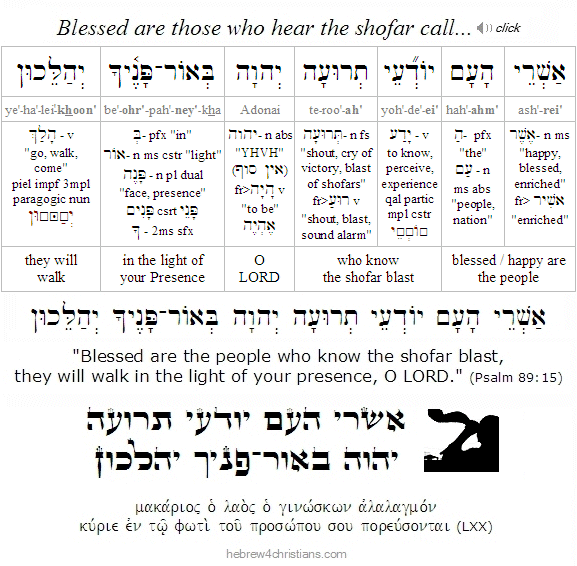 |
Note: For more on this subject see: "The Significance of the Shofar."
Repentance and Paradox...
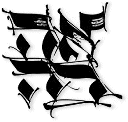
[ The following is related to the month of Elul and the "Season of Repentance"... ]
09.04.20 (Elul 15, 5780) To be a human being is a paradox, caught between the realms of the infinite and nothingness; a union of endless possibility yet terminating limitation. Man desires to live forever but is conscious that one day he will die. He is an incongruity - a mix of flesh and spirit, saint and sinner, good and evil, angel and animal... A spirituality that demands for us to be always happy, always "up," is therefore dishonest, since the truth is grounded in what is real, and that includes both the miserable and the tragic as well as the joyful and sublime. It's not that there is no difference between good and evil within the heart, but both are part of who we really are. It is the bittersweet struggle, the process of walking as "saintly sinners," "holy fools," "dying immortals," and so on, that defines us. We must embrace our brokenness, in order to become whole; there is no healing without true confession of our need. Therefore we come to the paradoxical cross - the place of utter pain, separation, and death - to find healing, acceptance and life.
Please note this is not to deny that we are to walk by the Spirit and reckon ourselves dead to sin in the Messiah (Rom. 6:11); however, far from being a sign of a lack of spirituality, personal struggle is a sign of its presence.... Only those who are conscious of the tragic, who are haunted by the disparity between what "is" and what "ought" to be; only those who are divided within themselves, torn by inner tension and conflict - those aware that they are both in this world but not of it - sojourners, a long long way from home, homesick for the heavenly city, who inwardly ache and yearn to be fully redeemed - only these, it may be said, are consciously spiritual. After all, the worldling, the self-confident and self-possessed, rarely desire deliverance from themselves and are often content to rationalize the state of their soul; the spiritual person, on the other hand, senses a profound incompletion, a lack, a fracture that runs straight through the core of reality, a breach that needs to be healed...
I would utterly die of despair over myself were it not for the truth that it is not about who I am that is as important as about who He is...
There is great joy, of course, and we are indeed to "rejoice in the Lord always," but there is also real pain in our lives, and I'd rather be in the company of those mourning the mess they have made of their lives than with someone who thinks they've got it all together... "We are treated as impostors, and yet are true; as unknown, and yet well known; as dying, and behold, we live; as punished, and yet not killed; as sorrowful, yet always rejoicing; as poor, yet making many rich; as having nothing, yet possessing everything" (2 Cor. 6:8-10).
Click for a Hebrew reading lesson:
 |
Personal Note: I want to express my heartfelt appreciation to each of you who stand with this ministry and encourage me to continue... You are in my prayers, and may it please the LORD our God to draw you ever closer to Him through the grace we have in Yeshua our glorious Savior. Amen.
|













































































